Maen Abdelrahim, MD, PhD, PharmB
Chief, GI Medical Oncology, Professor of Medicine, Weill Cornell Medicine, Medical Director, Cockrell Center for Advanced Therapeutics (CCAT) – Phase I program, Houston Methodist Cancer Center and Institute of Academic Medicine, Houston, TX
Salwan Al Mutar MD, MS
Assistant Professor of Medicine, Division of Hematology and Oncology, Gastrointestinal Medical Oncology, Co-Director of the Pancreatic Cancer Program, Harold C. Simmons Comprehensive Cancer Center, UT Southwestern,
Dallas, TX
Bach Ardalan, MD
Professor, Sylvester Comprehensive Cancer Center, University of Miami Health System, Miami, FL
Olivia Aranha, MD, PhD
Associate Professor of Medicine, Division of Medical Oncology, GI Oncology Department of Medicine, Alvin J. Siteman Cancer Center, Washington University School of Medicine St. Louis, MO
Lowell B. Anthony, MD, FACP
Professor, Chief, Division of Medical Oncology, Co-director, Radiopharmaceutical Therapy Program, University of Kentucky, Lexington, KY
Susan Bates
Professor of Medicine, Columbia University Medical Center, New York, NY
Michael Cecchini
Associate Professor of Medicine, Yale School of Medicine, New Haven, CT
Chandrikha Chandrasekharan, MBBS
Clinical Associate Professor, Department of Cancer Medicine, Division of GI Medical Oncology, The University of Texas MD Anderson Cancer Center, Houston, TX
Aman Chauhan, MD
Associate Professor of Clinical Medicine, Department of Medicine, Division of Medical Oncology, University of Miami Miller School of Medicine, Program Leader, Neuroendocrine Tumors, Co-Director, Theranostics Program, Sylvester Comprehensive Cancer Center,
Miami, FL
Saurin Chokshi, MD
Section Chief – Clinical Practice, Assistant Professor, The University of Tennessee Health Science Center, Division of Hematology & Oncology, Memphis, TN
Steven Corsello, MD
Assistant Professor of Medicine and, by courtesy, of Chemical & Systems Biology, Josephine Q. Berry Faculty Scholar in Cancer Research, Faculty Fellow, Sarafan ChEM-H, Member, Stanford Cancer Institute, Stanford School of Medicine, Stanford, CA
Andrew Coveler, MD
Director, Pancreatic Cancer Specialty Clinic, Associate Professor, Clinical Research Division, Fred Hutchinson Cancer Center, Associate Professor, Division of Hematology and Oncology, University of Washington School of Medicine, Seattle, WA
Oxana V. Crysler, MD
Clinical Assistant Professor, Rogel Cancer Center, Ann Arbor, MI
Nevena Damjanov, MD
Section Chief Hematology/Oncology, VA Medical Cente,r Director of Gastrointestinal Oncology, Abramson Cancer Center at Penn Presbyterian Medical Center, Professor of Clinical Medicine, University of Pennsylvania, Philadelphia, PA
Haley Ellis, MD
Instructor in Medicine, Harvard Medical School, Boston, MA
Antonio Tito Fojo, MD
Professor of Medicine at CUMC, Columbia University Medical Center, New York, NY
Pierre M. Gholam, MD, AGAF, FAASLD Professor of Medicine, Case Western Reserve University School of Medicine, Medical Director, Liver Center of Excellence, University Hospitals of Cleveland, Distinguished Attending Physician, UH Cleveland Medical Center, Director, Hepatobiliary Multidisciplinary Disease Team, UH Seidman Cancer Center, Cleveland, OH
Sepideh Gholami, MD, MAS
Associate Professor, Institute of Cancer Research, Feinstein Institutes for Medical Research, Surgical Director, Northwell Cancer Institute Liver Multidisciplinary Clinic, Director, Translational Research in Surgical Oncology, Northwell Health/Cold Spring Harbor Laboratory,
New Hyde Park, NY
Michael K. Gibson, MD, PhD, FACP
Associate Professor Medicine, Adjunct Associate Professor, Juntendo University Medical Center, Director of Translational Research for Esophagogastric Cancer, Associate to the Research Director for Head and Neck Oncology, Co-Chair, VICC Scientific Review Committee, Chair, Heme/Onc Subcommittee, Pharmacy, Therapeutics and Diagnostics Committee, VUMC, Vanderbilt-Ingram Cancer Center/Vanderbilt University Medical Center, Nashville, TN
Lipika Goyal, MD
Associate Professor, Stanford University, Stanford, CALipika Goyal, MD Associate Professor, Stanford University, Stanford, CA
S. Daniel Haldar, MD
Assistant Professor, Department of Gastrointestinal (GI) Medical Oncology, The University of Texas MD Anderson Cancer Center, Houston, TX
Thomas Holden, MD
Clinical Assistant Professor, Medicine – Oncology, Stanford Health Care, Palo Alto, CA
David H. Ilson, MD, PhD
Professor, Department of Medicine, Cornell University Medical College, New York, New York, Attending Physician, Department of Medicine, Gastrointestinal Oncology Service Memorial Hospital, Memorial Sloan Kettering Cancer Center, New York, NY
Aparna Kalyan, MD
Associate Professor of Medicine, Division of Hematology and Oncology, Northwestern University, Feinberg School of Medicine, Chicago, IL
Anthony El-Khoueiry, MD
Associate Professor of Clinical Medicine, Keck School of Medicine of the University of Southern California, Los Angeles, CA
Scott Kopetz, MD, PhD, FACP
Professor, Department of Gastrointestinal (GI) Medical Oncology, Division of Cancer Medicine, The University of Texas MD Anderson Cancer Center, Houston, TX
Jenny J. Li, MD
Assistant Professor, Department of GI Medical Oncology, The University of Texas MD Anderson Cancer Center, Houston, TX
Kian H. Lim, MD, PhD
Professor of Medicine, Director, Gastrointestinal Oncology, Division of Oncology, Department of Internal Medicine, Washington University School of Medicine in St. Louis, St. Louis, MO
Caio Max Sao Pedro Rocha Lima, MD, MS
M. Robert Cooper Professor in Medical Oncology, Co-Leader G.I.Oncology and Co-Leader Phase I Program, Wake Forest School of Medicine, Medical Center Boulevard, Winston-Salem, NC
Jonathan Loree, BMSc, MD, MS, FRCPC Associate Professor of Medicine, Division of Medical Oncology, University of British Columbia, Vancouver, BC Canada
Devalingam Mahalingam, MB, BCH,
BAO, PHD
Director, Clinical Trials Office - Lurie Cancer Center, Director, Developmental Therapeutics (DT) and DT Fellowship Program, Professor of Medicine, Division of Hematology/Oncology, Dept. of Medicine, Northwestern University Feinberg School of Medicine, Robert H. Lurie Comprehensive Cancer Center of Northwestern University, Northwestern Medicine, Chicago, IL
Shishir K. Maithel, MD, FACS, FSSO
William T. Bovie Professor of Surgery, Editor-in-Chief, Surgical Oncology Insight, Chief, Division of Surgical Oncology, Chief Surgical Oncology Officer, Lurie Comprehensive Cancer Center, Northwestern University, Feinberg School of Medicine, Atlanta, GA
Midhun Malla, MD
Associate Professor, Medicine - Hematology & Oncology, The University of Alabama at Birmingham, Birmingham, AL
Gulam A. Manji, MD
Associate Professor of Medicine, Columbia University Medical Center, New York, NY
Patrick W. McGarrah, MD
Medical Oncologist, Associate Professor of Oncology, Mayo Clinic, Rochester, MN
Rutika J. Mehta, MB, BS, MD, MPH
Associate Professor in Medicine, Attending Physician, Weill Cornell Medicine, NewYork-Presbyterian Hospital, NewYork, NY
Maria Pia Morelli, MD, PhD
Assistant Professor, Department of Gastrointestinal (GI) Medical Oncology, Division of Cancer Medicine, The University of Texas MD Anderson Cancer Center, Houston, TX
Ryan H. Moy, MD, PhD
Assistant Professor of Medicine, Columbia University College of Physicians & Surgeons, Assistant Attending, New York-Presbyterian/Columbia University Medical Center, New York, NY
Reetu Mukherji, MD
Assistant Professor, MedStar Georgetown University Hospital, Gastrointestinal Medical Oncologist, Lombardi Comprehensive Cancer Center, Georgetown University Medical Center, Washington, DC
Mandar Deepak Muzumdar, MD
Associate Professor of Genetics and of
Internal Medicine, Yale School of Medicine, New Haven, CT
Alana Nguyen, MD PhD
Assistant Professor, Division of Hematology and Oncology, Weill Cornell Medicine/NewYork-Presbyterian Hospital, NewYork, NY
Anne M. Noonan, MBBCh
Associate Professor, Department of Internal Medicine, The Ohio State University, Columbus, OH
Paul E. Oberstein, MD
Director, Gastrointestinal Medical Oncology Program, NYU Langone Health, New York, NY
Shubham Pant, MD, MBBS
Professor, Department of Gastrointestinal (GI) Medical Oncology, Division of Cancer Medicine, The University of Texas MD Anderson Cancer Center, Houston, TX
Wungki Park, MD, MS
Assistant Profession of Medicine, Weill Cornell Medical College, Assistant Attending Physician, Memorial Sloan Kettering Cancer Center, New York, NY
Madhukar S. Patel, MD, MBA, ScM
Dedman Family Scholar in Clinical Care, Surgical Director, Liver Transplantation, Division of Surgical Transplantation, UT Southwestern Medical Center, Dallas, TX
Shruti Patel, MD
Clinical Assistant Professor, Department: Medicine - Med/Oncology, Stanford Health Care, Palo Alto, CA
Kimberly Perez, MD
Co-Director, Clinical Research, Division of Gastrointestinal Oncology, Senior Physician, Assistant Professor of Medicine, Harvard Medical School, Boston, MA
Anjana Pillai, MD
Professor of Medicine, Professor of Surgery, University of Chicago Medicine, Chicago, IL
Michael Pishvaian, MD
Associate Professor of Oncology, Johns Hopkins University School of Medicine, Washington, DC
Kanwal Raghav, MD, MBBS
Associate Professor, Gastrointestinal Medical Oncology Center, Medical Director (CMD), Ambulatory Treatment Centers, The University of Texas MD Anderson Cancer Center, Houston, TX
Matthew Reilley, MD
Associate Professor of Medicine Director UVA Phase 1 Program Director GI Medical Oncology Research Division of Hematology/Oncology University of Virginia School of Medicine Charlottesville, VA
Wasif M. Saif, MD
Leader Phase I MDT & Director Eisenberg Center for Translational Therapeutics, Co-Leader and Co-Director Gastrointestinal Oncology MDT, Karmanos Cancer Institute, Professor, Department of Oncology, Wayne State University School of Medicine, Karmanos Cancer Institute, Detroit, MI
Mohamed Salem, MD
Associate Professor of Medicine, Division of Gastrointestinal Medical Oncology, Levine Cancer Institute, Atrium Health, Charlotte, NC
Nilay S. Sethi, MD, PhD
Assistant Professor of Medicine, Harvard Medical School, Gastrointestinal Medical Oncologist, Dana-Farber Cancer Institute, Boston, MA
Manish A. Shah, MD
Director, Gastrointestinal Oncology Program, Weill Cornell Medicine, Chief, Solid Tumor Service, Co-Director, Center for Advanced Digestive Disease, New York-Presbyterian,
New York, NY
Shagufta Shaheen, MD
Clinical Assistant Professor, Associate Division Chief for Equity, Diversity, and Inclusion, Department of Medicine, Division of Oncology, Stanford University School of Medicine,
Stanford, CA
Amit Singal, MD, MS
Professor, Department of Internal Medicine, Division of Digestive and Liver Diseases, University of Texas Southwestern Medical Center, Dallas, TX
Brandon G. Smaglo, MD
Associate Professor, Department of Gastrointestinal (GI), Medical Oncology, Division of Cancer Medicine, The University of Texas MD Anderson Cancer Center, Houston, TX
Stacey Stein, MD
Associate Professor of Medicine, CINJ Rutgers University, Systems Medical Oncology Leader for Hepatobiliary Cancers, RWJBarnabas Health, New Brunswick, NJ
Weijing Sun, MD, FACP
The Sprint Professor of Medical Oncology, Director, Division of Medical Oncology, University of Kansas School of Medicine, Associate Director, University of Kansas Cancer Center, Westwood, KS
Mohamedtaki A. Tejani, MD
Medical Director - Gastrointestinal (GI) Oncology Program, AdventHealth Cancer Institute, Orlando, FL
Jennifer Wu, MD
Director, Bellevue Cancer Center, Section Chief, Hematology Oncology, Bellevue Medical Center, Clinical Associate Professor of Medicine, Non-Tenured, Department of Medicine, New York University Grossman School of Medicine,
New York, NY
Linda Wu, MD
Assistant Professor of Medicine, Division of Hematology and Oncology, Columbia University Irving Medical Center, New York, NY
Dan Zhao, MD, PhD
Assistant Professor, Department of Gastrointestinal Medical Oncology, Division of Cancer Medicine, The University of Texas, MD Anderson Cancer Center, Houston, TX
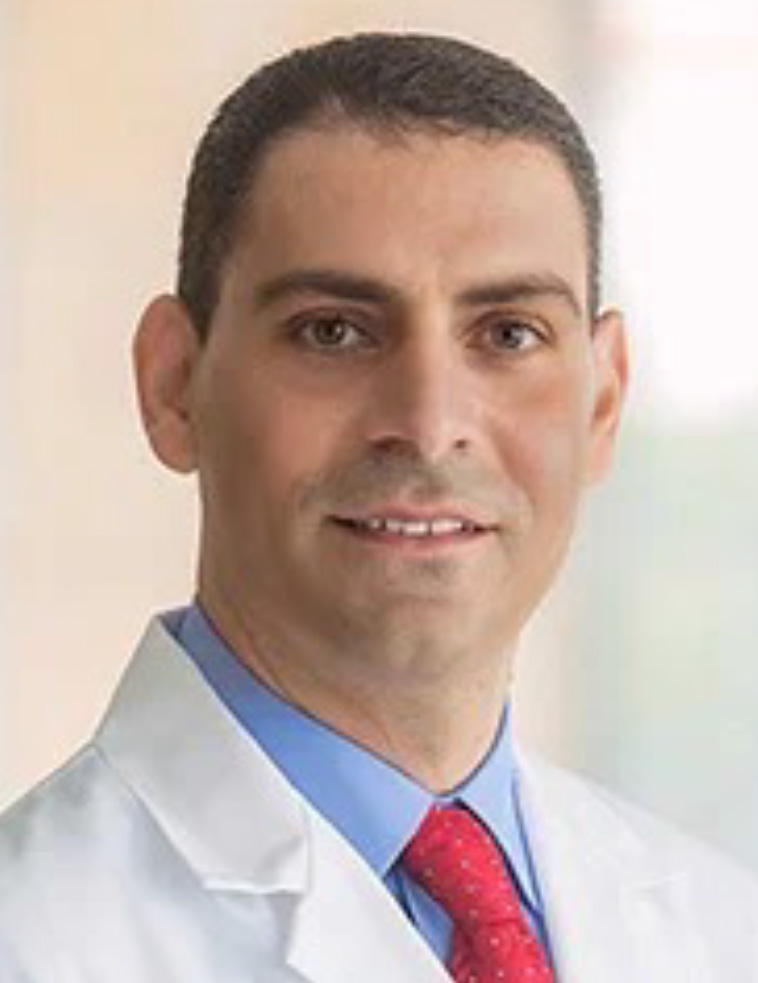
Maen Abdelrahim, MD, PhD, PharmB
Assistant Professor of Medicine, Division of Hematology and Oncology, Gastrointestinal Medical Oncology, Co-Director of the Pancreatic Cancer Program, Harold C. Simmons Comprehensive Cancer Center, UT Southwestern, Dallas, TX
Dr. Abdelrahim is a gastrointestinal medical oncologist, and transplant oncologist where he is taking care of patients with upper and lower GI malignancies in addition to malignancies treated by liver transplantation. He is the section chief of GI medical oncology leading the GI cancer care at Houston Methodist Neal Cancer Center with focus on clinical trial Phase II/III in GI malignancies. Dr. Abdelrahim serves as the Director of Cockrell Center for Advanced Therapeutics where he is oversees Phase I program at Houston Methodist Hospital and Neal Cancer Center. He is a principal investigator on multiple clinical trials with focus on chemotherapy, targeted therapy and Immunotherapy in GI malignancies. His research is focused on developing new mechanism-based drugs for the treatment of gastrointestinal cancers. He has identified for the first time a new structural class of compounds that can target selective transcription factor that are now recognized as targets for the development of new anticancer drugs. The lead compound of this class reached Phase I Clinical Trial to treat patients with GI cancers. Dr Abdelrahim has published more than 130 original research articles, review articles and book chapters in prestigious journals and publishing groups. Dr. Abdelrahim is a member of the American Society of Clinical Oncology, American Association of Cancer Research and International Liver Transplant Society. He is the site Principal Investigator for Southwest Oncology cooperative Group at Houston Methodist Neal Cancer Center. He is on the Editorial Boards of several medical journals where he serves as Editor-in Chief of “Transplant Oncology and Cancer Nursing Care” section of Cancers and associate Editor of Frontiers in oncology. Dr. Abdelrahim completed his pharmacy degree followed by Doctor of Philosophy and graduate work in the field of pharmacology and toxicology from Texas A &M University, College Station, Texas. He obtained his Medical Degree from Texas A&M University then Residency from Baylor College of Medicine. He then Moved to North Carolina where he finished his Medical Oncology fellowship at Duke University.
Salwan Al Mutar MD, MS
Assistant Professor of Medicine, Division of Hematology and Oncology, Gastrointestinal Medical Oncology, Co-Director of the Pancreatic Cancer Program, Harold C. Simmons Comprehensive Cancer Center, UT Southwestern, Dallas, TX
Dr. Salwan Al Mutar is an Assistant Professor in the Department of Internal Medicine at UT Southwestern Medical Center. A medical oncologist, he specializes in treating gastrointestinal cancers.\ and co directs the interdisciplinary Pancreatic Cancer Program in UTSW Dr. Al Mutar earned his medical degree at the Al-Mustansiriyah University College of Medicine in Iraq. He performed his residency in internal medicine at Wayne State University School of Medicine and then received advanced training through a fellowship in medical oncology at the University of Texas Medical Branch at Galveston and a clinical research fellowship in gastrointestinal cancer at The Ohio State University where he also finished his Masters in Translational Pharmacology with clinical trial design specialization in 2021 Board-certified in both internal medicine and medical oncology, he joined the UT Southwestern faculty in 2020.
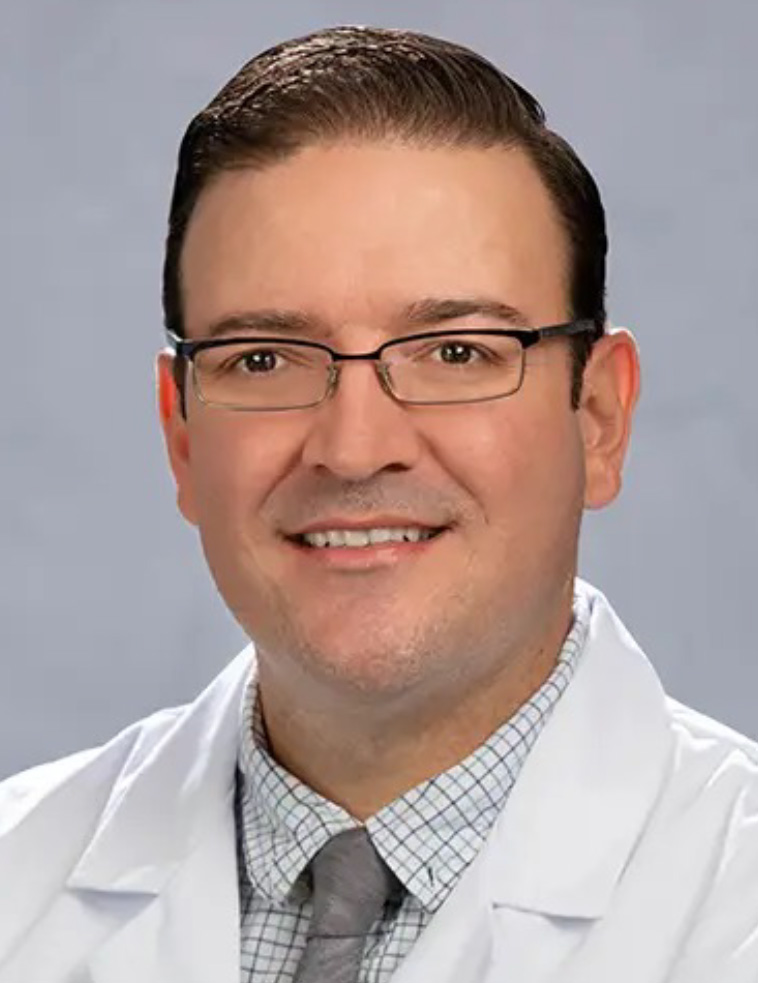
Bach Ardalan, MD
Professor, Sylvester Comprehensive Cancer Center, University of Miami Health System, Miami, FL
Bach Ardalan, M.D., is a Professor of Medicine in the Division of Hematology and Oncology at the University of Miami Sylvester Comprehensive Cancer Center. He earned his medical degree from King’s College London in 1969, completed an internal medicine residency at King Edward Memorial Hospital and a medical oncology fellowship at Georgetown University School of Medicine in 1978. He is a medical oncologist specializing in gastrointestinal cancers, with expertise in colorectal, esophageal, stomach, liver, pancreatic, and biliary cancers. His research focuses on drug modulation and the development of new antineoplastic agents for patients with advanced colon and pancreatic tumors. Dr. Ardalan leads and participates in early-phase clinical trials evaluating hyperthermic intraperitoneal chemotherapy (HIPEC) for peritoneal metastases, as well as targeted agents and immunotherapy combinations in colorectal and hepatobiliary cancers. He has authored 92 peer-reviewed research articles and serves on editorial boards for several oncology journal

Olivia Aranha, MD, PhD
Associate Professor of Medicine, Division of Medical Oncology, GI Oncology Department of Medicine, Alvin J. Siteman Cancer Center, Washington University School of Medicine St. Louis, MO
Dr. Olivia Aranha, MBBS, MS, PhD is an Associate Professor of Medicine in the Division of Medical Oncology at Washington University School of Medicine and a medical oncologist at the Siteman Cancer Center in St Louis. She received her MBBS from the University of Bombay (1995), earned an MS in Biological Sciences at the University of Detroit Mercy (1998) and a PhD in Pathology from Wayne State University (2000). Dr. Aranha completed her internal-medicine residency at Wayne State (2004) and a hematology-oncology fellowship at Northwestern University (2007). Her clinical and research program centers on gastrointestinal malignancies—particularly colorectal, pancreatic, appendiceal and peritoneal tumors—as well as health-outcomes projects aimed at lowering readmissions and financial toxicity for cancer patients. Recent accomplishments include co-authoring the phase I study of defactinib + pembrolizumab + gemcitabine in refractory pancreatic cancer and serving on the 2025 ASCO guideline panel for anal squamous-cell carcinoma. In 2021 she was honored as Washington University’s Hematology-Oncology Teacher of the Year, and in 2024 she provided national commentary for OncLive on patient selection for CRS/HIPEC in peritoneal carcinomatosis.
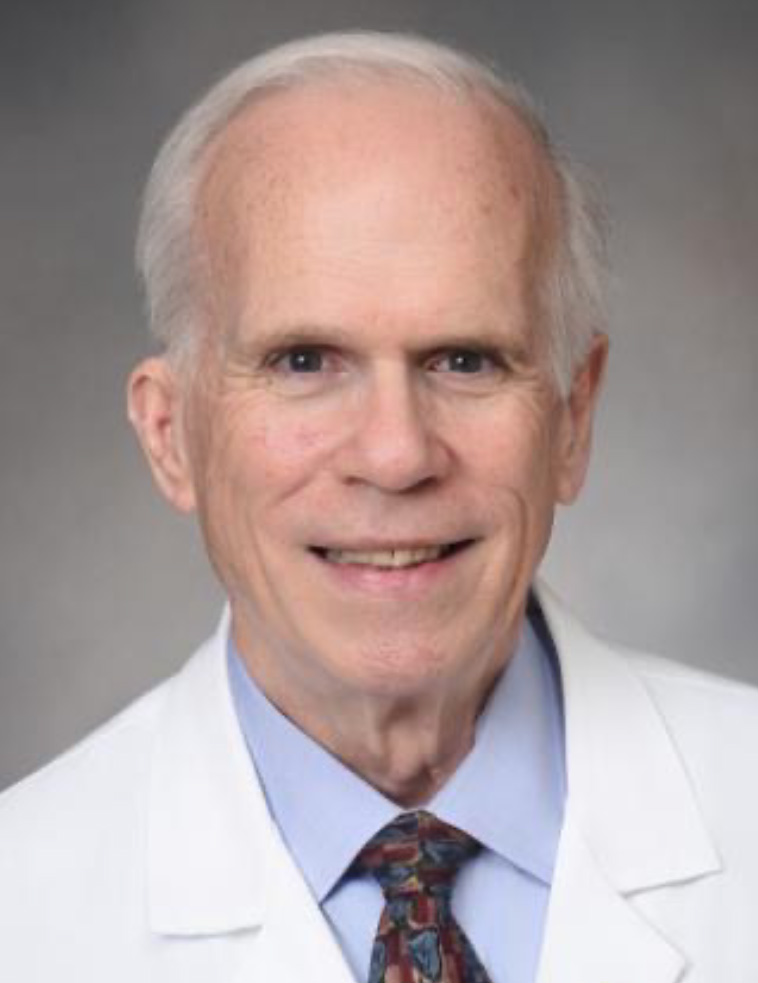
Lowell B. Anthony, MD, FACP
Professor, Chief, Division of Medical Oncology, Co-director, Radiopharmaceutical Therapy Program, University of Kentucky, Lexington, KY
Dr. Lowell Anthony joined the UK Markey Cancer Center with more than two decades of experience in oncology and a special focus in gastrointestinal and neuroendocrine oncology. His clinical interests include drug development ranging from Phase I to III clinical trials. Agents targeting specific cellular signaling pathways and injectable radiolabeled compounds make up his past and current clinical investigative interests. He brings a clinical correlative component to complement the ongoing translational activities at Markey Cancer Center. Dr. Anthony attended Vanderbilt University Medical School, where he also completed a medical residency and fellowship training in medical oncology and clinical pharmacology. He has previously been on the medical faculties at Vanderbilt University and the Louisiana State University Health Sciences Center in New Orleans.
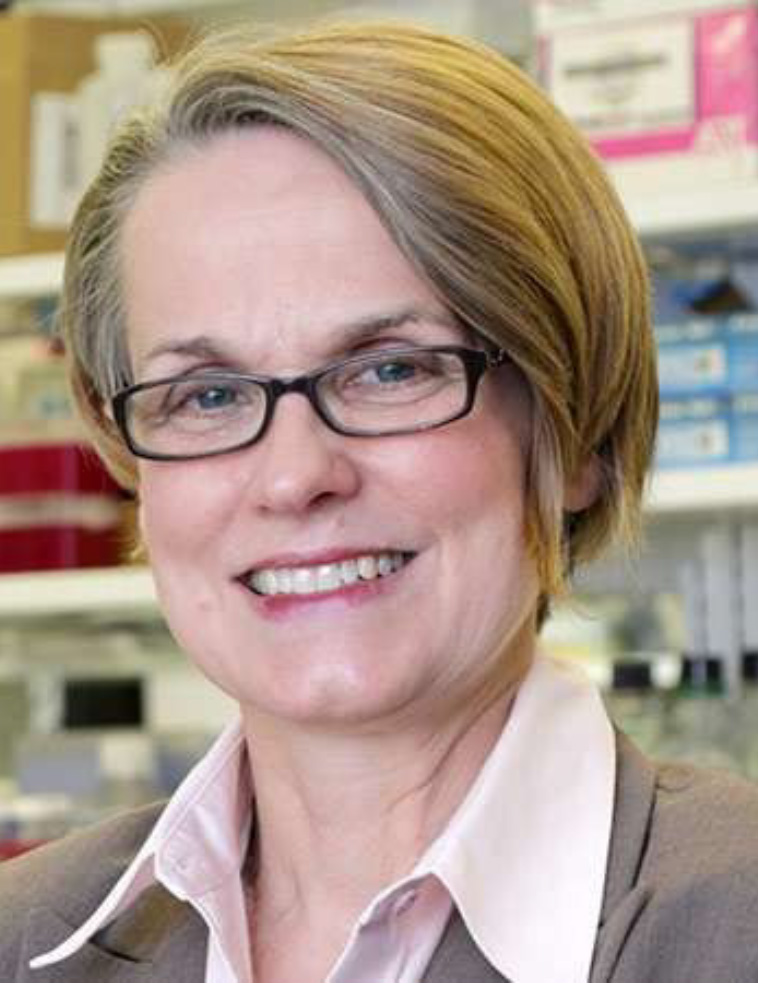
Susan Bates
Professor of Medicine, Columbia University Medical Center, New York, NY
Dr. Susan Bates received her M.D. degree from the University of Arkansas School of Medicine. She completed her clinical training in internal medicine at Georgetown University in Washington, D.C., and in medical oncology at the National Cancer Institute (NCI) in Bethesda, MD. Dr. Bates was a Lead Clinical Investigator and Head of the Molecular Therapeutics Section in the Developmental Therapeutics Branch of the Center for Cancer Research before moving to Columbia University in August 2015. During her years at the NCI, Dr. Bates led a highly successful translational research program focused on mechanisms of multidrug resistance and approaches to evaluate and improve the activity of epigenetic modifying agents. Her laboratory was among the first to clone the multidrug transporter ABCG2, eventually characterizing its function and its role in chemo-resistance and chemo-protection. Dr. Bates' current interests are both laboratory and clinical in nature. Her laboratory efforts include laboratory and translational studies on drug resistance in T-cell lymphomas and advanced solid tumors including breast, pancreatic, neuroendocrine, renal and lung cancers. Her work is dedicated to new drug development, and finding antineoplastic agents that, alone or in combination with other anticancer agents, improve the options available for difficult to treat cancers. Emanating from the clinical and translational development of romidepsin, a histone deacetylase (HDAC) inhibitor, a current focus is on epigenetic therapies, and the development of combination therapies to use with HDAC inhibitors in refractory advanced cancers, including solid tumors. She also has a special interest in drug delivery and drug distribution and the role of the blood brain barrier in creating a sanctuary site for cancers that metastasize to the brain. Clinically, her goal has always been to translate ideas from the laboratory to clinical trials, an effort that has proven very successful. Clinically she seeks to develop combination therapies with histone deacetylase inhibitors for the therapy of solid tumors; and to develop therapies to treat central nervous system metastases, a complication of cancer that is becoming a greater problem as patients live longer with cancer.
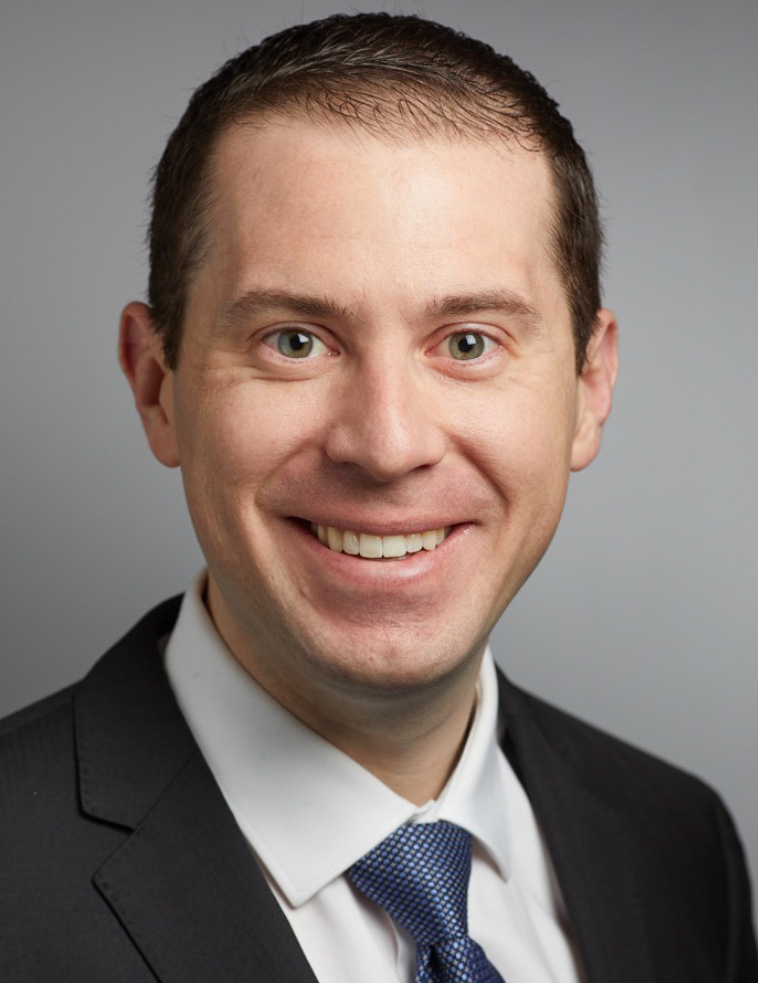
Michael Cecchini
Associate Professor of Medicine, Yale School of Medicine, New Haven, CT
Dr. Michael Cecchini is an Assistant Professor of Medicine at Yale School of Medicine and a medical oncologist at Yale Cancer Center. He earned his medical degree from New York Medical College, followed by residency training in internal medicine at NewYork-Presbyterian/Weill Cornell Medical Center. He then completed his fellowship in hematology and medical oncology at Yale School of Medicine, where he also served as Chief Fellow. Dr. Cecchini’s research focuses on the development of novel treatment strategies for gastrointestinal malignancies, particularly colorectal cancer. He is actively involved in early-phase clinical trials investigating targeted therapies and immunotherapies aimed at improving patient outcomes. His recent work includes studies on predictive biomarkers and resistance mechanisms to guide personalized treatment approaches. Dr. Cecchini has published extensively in leading oncology journals and is dedicated to translating laboratory findings into effective therapies for patients.
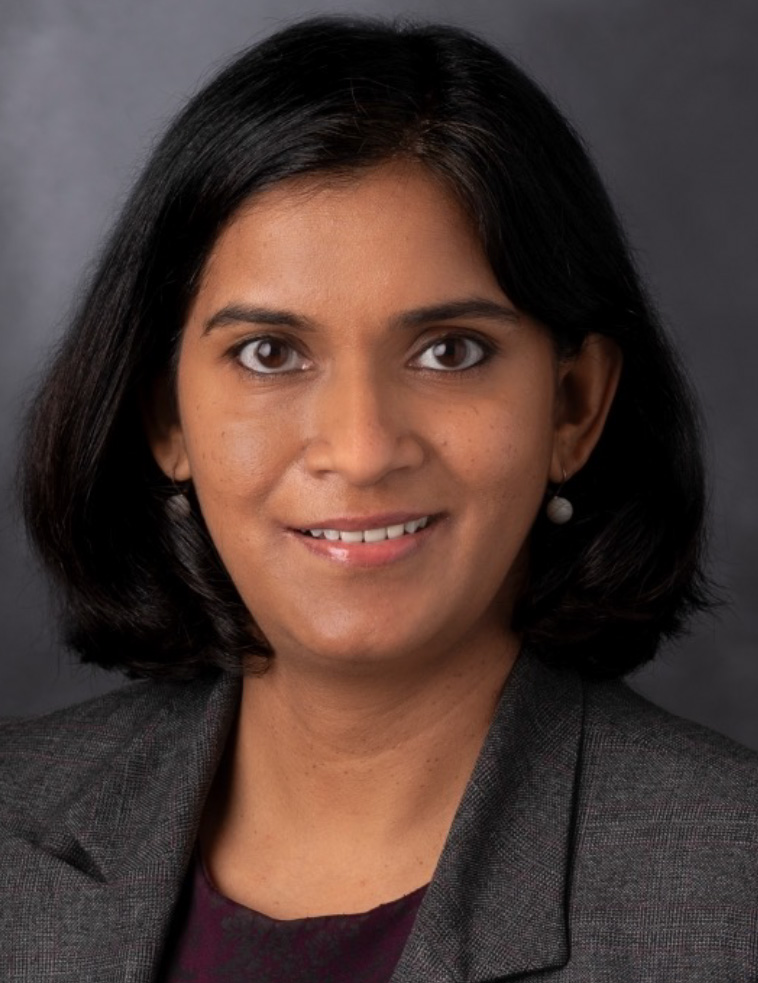
Chandrikha Chandrasekharan, MBBS
Clinical Associate Professor, Department of Cancer Medicine, Division of GI Medical Oncology, The University of Texas MD Anderson Cancer Center, Houston, TX
Dr. Chandrikha Chandrasekharan, MBBS, is a Clinical Associate Professor in the Department of Cancer Medicine, Division of Gastrointestinal Medical Oncology at The University of Texas MD Anderson Cancer Center in Houston, Texas. In this role, she leads multidisciplinary care for patients with complex GI malignancies and mentors fellows and trainees in both clinical practice and research. She earned her MBBS from Government Kilpauk Medical College, Chennai, India, in 2007 and completed an Internal Medicine residency at the University of Florida College of Medicine–Jacksonville (2009–2012). She then pursued a Hospice and Palliative Medicine fellowship (Mayo Clinic, 2012–2013), followed by a Medical Oncology fellowship at Louisiana State University (2013–2015) and advanced GI Medical Oncology training at the Mayo Clinic (2015–2016). Dr. Chandrasekharan’s clinical specialization centers on gastroenteropancreatic cancers, with expertise in neuroendocrine tumors, pancreatic adenocarcinoma, colorectal carcinoma, and integration of peptide receptor radionuclide therapy. She also incorporates comprehensive palliative care into oncology management. Her research investigates novel treatment strategies for GEP-NETs—including repeat peptide receptor radionuclide therapy—combination regimens in metastatic pancreatic cancer, and development of circulating tumor cell and nanotechnology-based biomarkers to monitor treatment response and improve early detection of carcinoid heart disease.
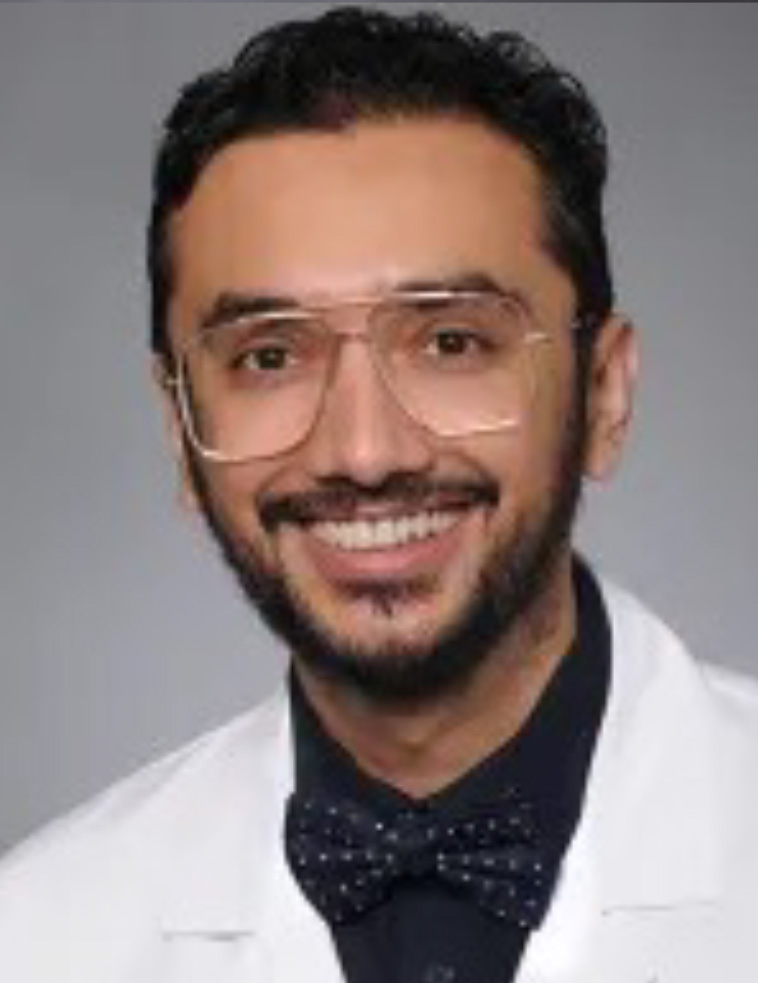
Aman Chauhan, MD
Associate Professor of Clinical Medicine, Department of Medicine, Division of Medical Oncology, University of Miami Miller School of Medicine, Program Leader, Neuroendocrine Tumors, Co-Director, Theranostics Program, Sylvester Comprehensive Cancer Center, Miami, FL
Dr. Chauhan, earned his medical degree from the Kasturba Medical College in Manipal, Karnataka, India, followed by a dual residency in internal medicine and pediatrics at Louisiana State University in New Orleans. Dr. Chauhan completed his fellowship in hematology and oncology at the University of Kentucky, especially focusing on neuroendocrine tumor (NETs). Additionally, Dr. Chauhan completed a Cancer Therapy Evaluation Program (CTEP) physician externship at the National Cancer institute (NCI) that focused on designing clinical trials and clinical research projects. His clinical interests include treating NETs, including carcinoid tumors, high-grade neuroendocrine carcinomas, and small and large cell neuroendocrine carcinoma. Dr Chauhan leads the University of Miami Neuroendocrine Cancer Program and he is national principal investigator on several investigator-initiated neuroendocrine cancer theranostics clinical trials. He has authored over 80 scientific publications and book chapters and has received career development awards from National Cancer Institute. Dr. Chauhan also serves on AJCC and ASCO NET guideline committees and is an active member of NANETS communication committee. Dr. Chauhan is board certified in internal medicine and medical oncology. He is a member of the American Society of Clinical Oncology as well as the American Association of Cancer Research and the North American Neuroendocrine Tumor Society.
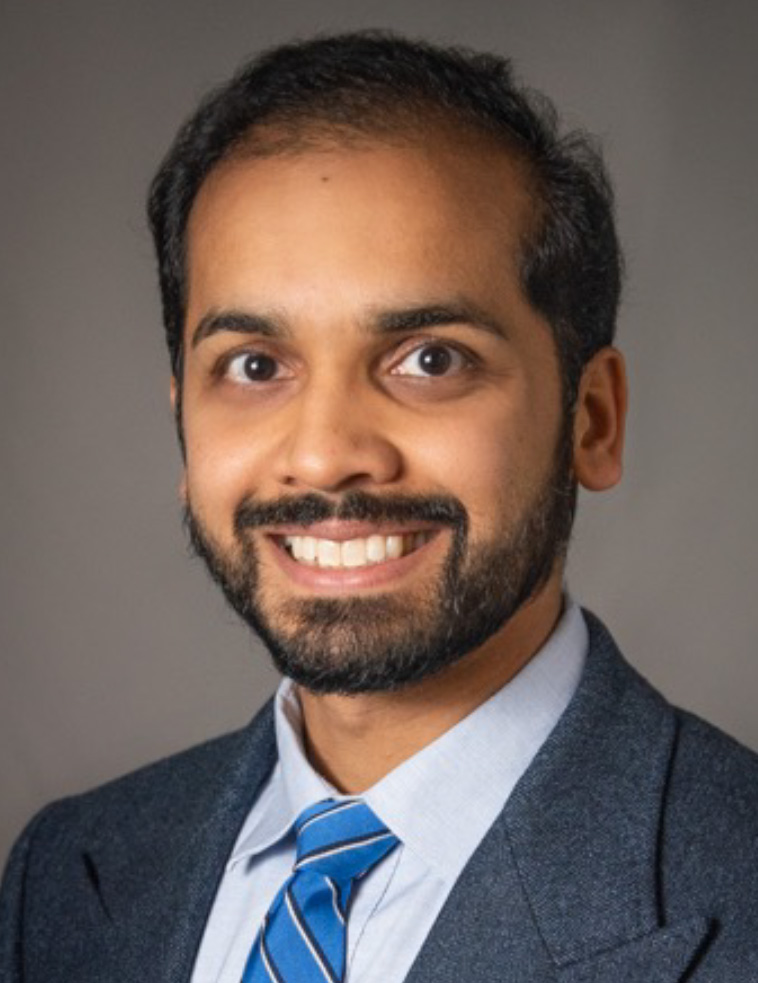
Saurin Chokshi, MD
Section Chief – Clinical Practice, Assistant Professor, The University of Tennessee Health Science Center, Division of Hematology & Oncology, Memphis, TN
Saurin Chokshi, MD is a medical oncologist with a subspecialty focus on gastrointestinal malignancies. He earned his medical degree at University of Kentucky College of Medicine and did an internship in internal medicine at University of Texas Southern Medical Center. He completed a fellowship in hematology and medical oncology at Yale-New Haven Hospital, which is part of Yale School of Medicine; and participated in a clinical research training program at the National Cancer Institute, National Institutes of Health in Bethesda, Maryland. Along with seeing patients at Regional One Health as a medical oncologist, Dr. Chokshi is an assistant professor of hematology/oncology at University of Tennessee Health Science Center. He also serves on the medical advisory board for Bayer Virtual Roundtable. In addition to seeing patients in the clinic and in the hospital, his research interests are in early and late phase cancer clinical trials. He also oversees the Cancer Center's Clinical Trials Protocol Office. His research has been published in numerous medical journals, including Oncology and Cancer Journal. During his career and education, he has been honored by the Society for Translational Oncology, American Association for the Advancement of Science, Arnold P. Gold Foundation and Joseph Collins Foundation. Dr. Chokshi is a member of the National Comprehensive Cancer Network panel for Management of Immunotherapy-Related Toxicity.
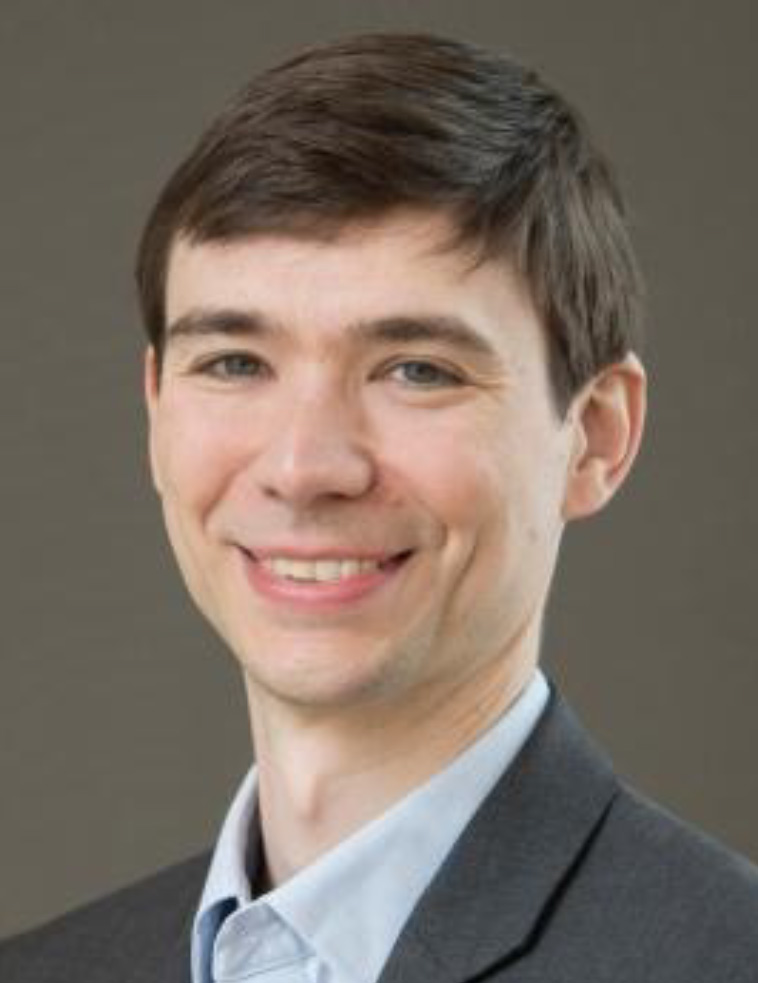
Steven Corsello, MD
Assistant Professor of Medicine and, by courtesy, of Chemical & Systems Biology, Josephine Q. Berry Faculty Scholar in Cancer Research, Faculty Fellow, Sarafan ChEM-H, Member, Stanford Cancer Institute, Stanford School of Medicine,
Stanford, CA
Dr. Steven M. Corsello is an Assistant Professor of Medicine (Oncology) at Stanford University School of Medicine, with courtesy appointments in Chemical and Systems Biology. He earned his AB in Biochemical Sciences from Harvard University in 2003 and his MD from Harvard Medical School in 2008. Following this, he completed an internal medicine residency at Massachusetts General Hospital and a hematology-oncology fellowship at Dana-Farber Cancer Institute. Dr. Corsello leads a research laboratory that integrates chemical biology and functional genomics to discover novel anti-cancer mechanisms of small molecules. His translational research focuses on developing targeted therapies for gastrointestinal cancers and creating resources for drug repurposing. Notably, he founded the Drug Repurposing Hub, a comprehensive collection of over 6,000 existing drugs to facilitate laboratory experiments for new therapeutic uses. His contributions have been recognized with several honors, including the Damon Runyon Clinical Investigator Award (2024) and the Shmunis Family Innovation Award in Cancer Therapeutics (2023).
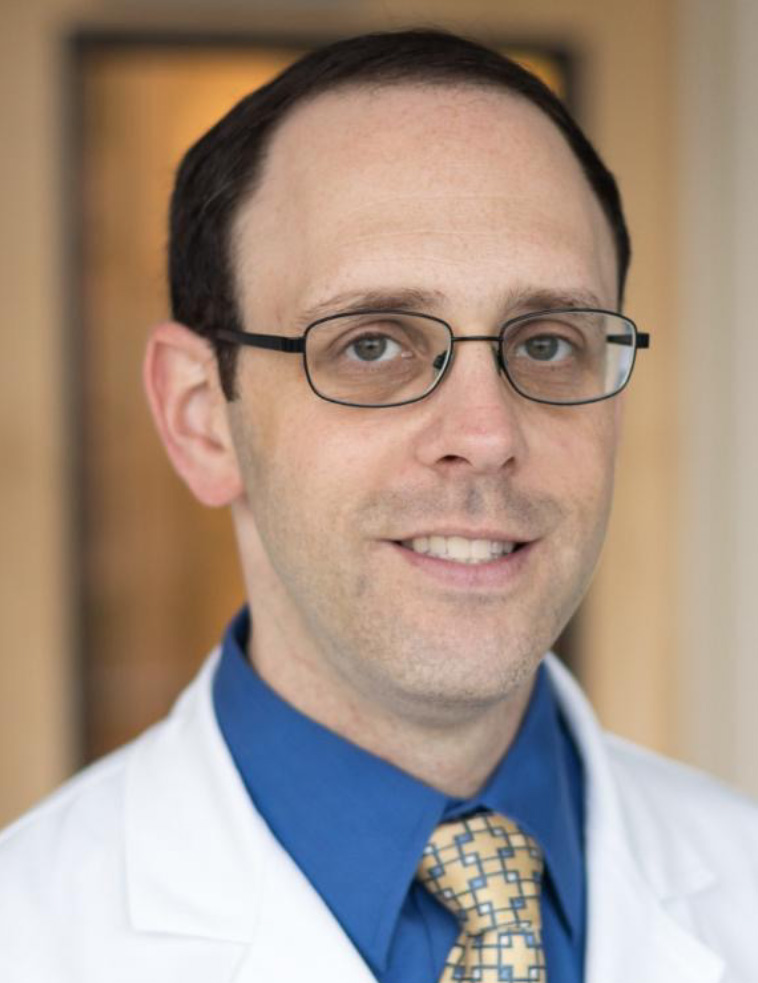
Andrew Coveler, MD
Director, Pancreatic Cancer Specialty Clinic, Associate Professor, Clinical Research Division, Fred Hutchinson Cancer Center, Associate Professor, Division of Hematology and Oncology, University of Washington School of Medicine, Seattle, WA
Andrew L. Coveler, MD, is an associate professor in the Division of Hematology and Oncology at the University of Washington School of Medicine, and in the Clinical Research Division at Fred Hutchinson Cancer Center in Seattle, Washington, USA. He is a GI oncologist with an interest in early phase clinical trials and novel agents, especially ADCs and immunotherapy. He is the Medical Director of the Pancreas Cancer Specialty Clinic at the Fred Hutch. Dr Coveler received his medical degree from Northwestern University Feinberg School of Medicine in Chicago, Illinois. He completed his internship at Baylor College of Medicine in Houston, Texas, his internal medicine residency at the University of Washington, and his hematology-oncology fellowship at the Fred Hutch.

Oxana V. Crysler, MD
Clinical Assistant Professor, Rogel Cancer Center, Ann Arbor, MI
Oxana Crysler, MD, is a Clinical Assistant Professor at the Rogel Cancer Center Ann Arbor, Michigan. She is a GI oncologist with an interest in hepatocellular carcinoma and other gastrointestinal malignancies. Dr Crysler received her medical degree from Russian State Medical University in 2000. She completed her internal medicine residency at the MedStar Harbor Hospital in 2013, and hematology-oncology fellowship at National Institutes of Health (NIH) in 2016.
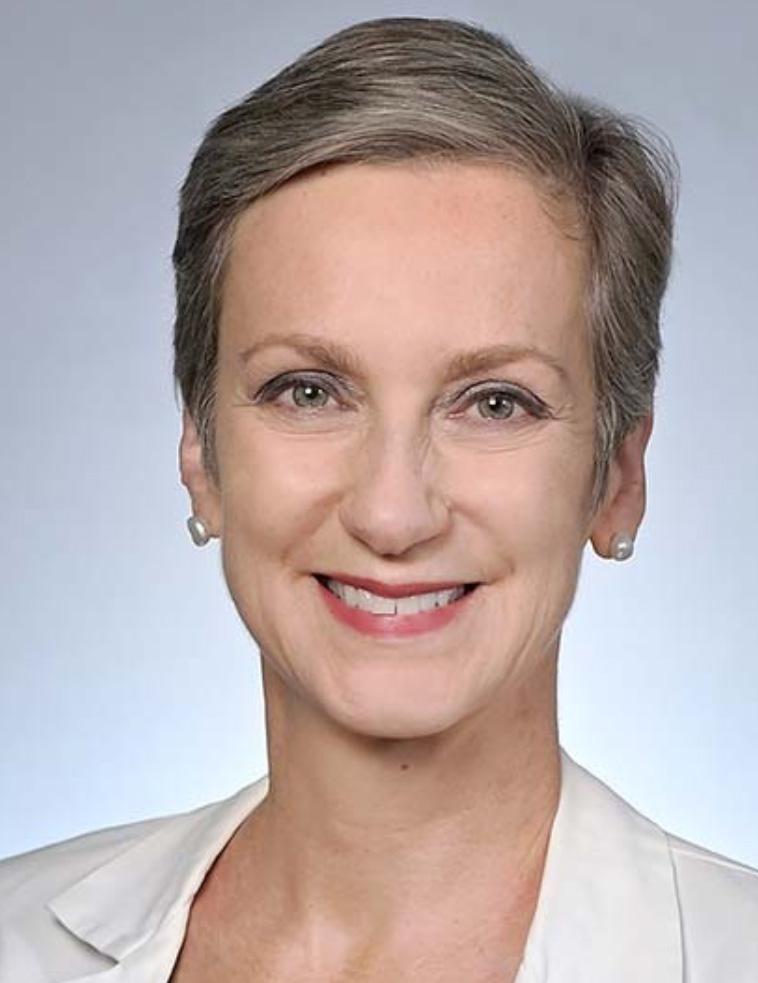
Nevena Damjanov, MD
Section Chief Hematology/Oncology, VA Medical Cente,r Director of Gastrointestinal Oncology, Abramson Cancer Center at Penn Presbyterian Medical Center, Professor of Clinical Medicine, University of Pennsylvania, Philadelphia, PA
Dr. Damjanov is Professor of Medicine at the Abramson Cancer Center at the University of Pennsylvania in Philadelphia, Pennsylvania, and the Director of Gastrointestinal Oncology at the Penn Presbyterian Medical Center. At the Corporal Michael J. Crescenz VA Medical Center (CMCVAMC) in Philadelphia, Pennsylvania, she is the Section Chief of Hematology/Oncology. She received her medical degree from Hahnemann University in Philadelphia, Pennsylvania, and completed her Internal Medicine residency training at the MS Hershey Medical Center of the Pennsylvania State University in Hershey, Pennsylvania. Her Hematology/Oncology training was completed at the University of Pennsylvania in Philadelphia, Pennsylvania, and the Case Western Reserve University in Cleveland, Ohio. Dr. Damjanov has authored numerous peer-reviewed articles in the field of gastrointestinal medical oncology, with an emphasis in hepatobiliary malignancies.
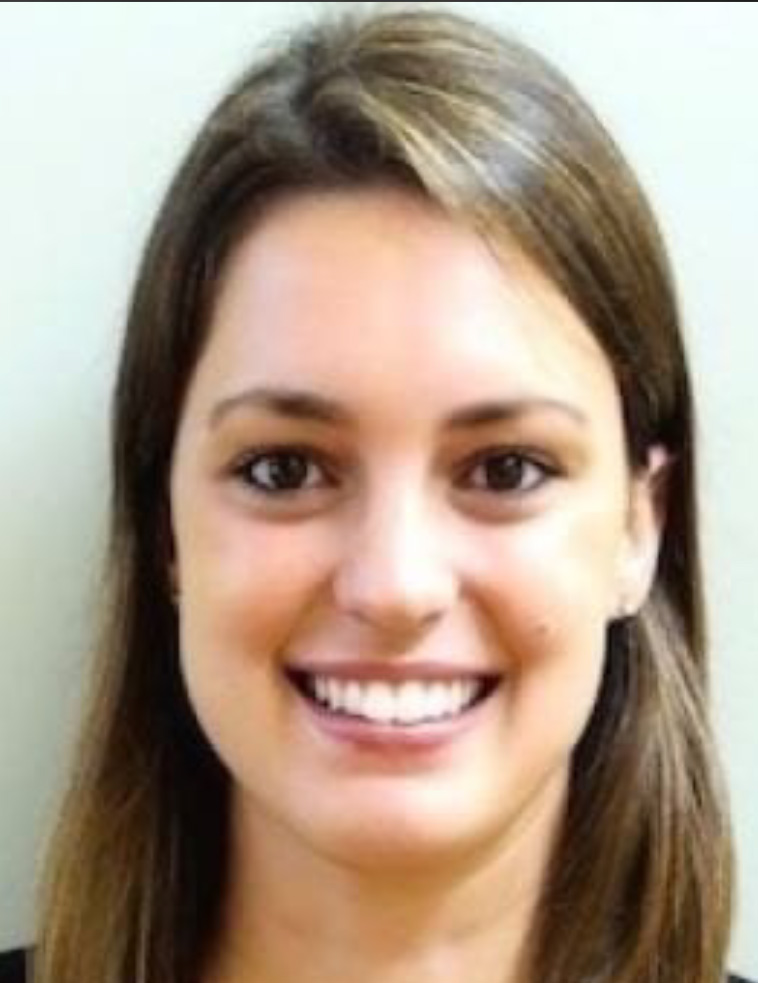
Haley Ellis, MD
Instructor in Medicine, Harvard Medical School, Boston, MA
Dr. Haley Ellis, M.D., is an Instructor in Medicine at Harvard Medical School and a Clinician Investigator in the Cancer Center at the Mass General Research Institute, Massachusetts General Hospital. She earned her medical degree from University College Dublin in 2018 and completed her internal medicine residency at Washington University’s Barnes-Jewish Hospital. Dr. Ellis pursued medical oncology fellowships at Brigham and Women’s Hospital, Dana-Farber Cancer Institute, and Massachusetts General Hospital—where she was selected as chief fellow Massachusetts General Hospital. Her research and clinical interests are focused on biliary cancers (cholangiocarcinoma and gallbladder cancer). She is dedicated to advancing the understanding and treatments of these cancers through scientific research and clinical trials. During her training at Memorial Sloan Kettering Cancer Center, University College Dublin, and Washington University in St. Louis, she garnered numerous accolades in medicine and oncology, including a prestigious clinician-scientist research scholarship. Dr. Ellis subsequently completed a medical oncology fellowship at Dana-Farber Cancer Institute, Brigham and Women's Hospital, and Massachusetts General Hospital, where she was selected as chief fellow. She is a member of the American Association for Cancer Research (AACR), American Society of Clinical Oncology (ASCO), and International Cholangiocarcinoma Research Network (ICRN). In addition to collaborating with a multidisciplinary team, she also enjoys working with patient/research advocates to provide comprehensive and compassionate care to her patients.

Antonio Tito Fojo, MD
Professor of Medicine at CUMC, Columbia University Medical Center, New York, NY
Dr Antonio Fojo received his MD and PhD from the University of Miami and completed internal medicine training at Washington University School of Medicine / Barnes Hospital. He joined the National Cancer Institute in 1982 as a Clinical Associate in the Medicine Branch and after training with Drs. Ira Pastan and Michael Gottesman, became a Principal Investigator in the Medicine Branch of the National Cancer Institute. He has expertise in the management of patients with adrenocortical cancer, malignant pheochromocytoma and other neuroendocrine malignancies, and thyroid cancer. These cancers also comprise areas of very active basic science interest given their unique properties and the possibilities to target such cancers more precisely. The ultimate goal is to develop novel therapies for these often very refractory cancers so that there will be additional options available for treatment for patients with these cancers. Ongoing laboratory efforts are focused on developing such novel therapies to treat patients with adrenal cancer, pheochromocytoma and a spectrum of neuroendocrine tumors. In the laboratory Dr. Fojo has also worked to understand the molecular basis of drug resistance, and was involved in the original work relating to several ABC transporters. Additionally, his laboratory originally identified rearrangements involving the MDR-1 gene as a novel mechanism of drug resistance in several cancers, a molecular event recently demonstrated as very important in ovarian cancer. He has also been very involved in research on microtubule-targeting agents, helping to establish as a novel paradigm the interference with microtubule trafficking, rather than mitosis, for the mechanism of action for these important drugs. Dr. Fojo served as Program Director for the Medical Oncology Fellowship Program at the National Cancer Institute, the largest fellowship program in the NIH and one of the largest medical oncology programs in the United States. Over the years Dr. Fojo has helped to train more than 350 medical oncologists.
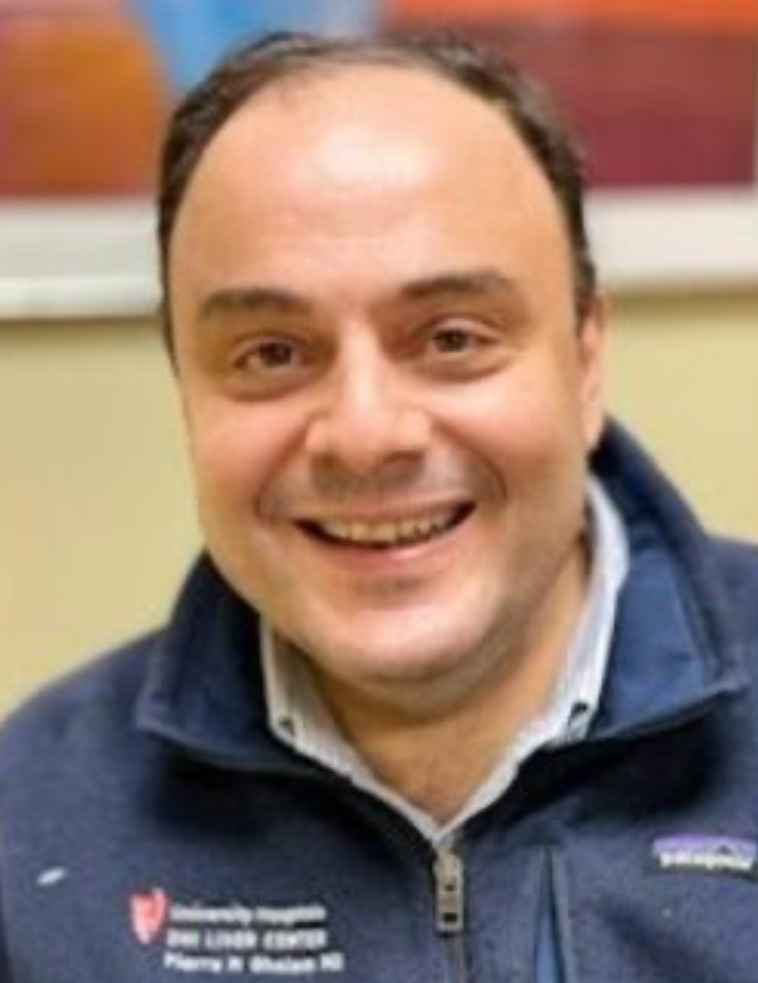
Pierre M. Gholam, MD, AGAF, FAASLD
Professor of Medicine, Case Western Reserve University School of Medicine, Medical Director, Liver Center of Excellence, University Hospitals of Cleveland, Distinguished Attending Physician, UH Cleveland Medical Center, Director, Hepatobiliary Multidisciplinary Disease Team, UH Seidman Cancer Center, Cleveland, OH
Dr. Pierre Gholam directs the NCI-designated Case Comprehensive Cancer Center Multidisciplinary Hepatobiliary Tumor Board where cases of benign and malignant liver lesions including HCC and cholangiocarcinoma are discussed in a collaborative manner and consensus recommendations for a plan of care or referral to appropriate clinical trials are made. Dr. Gholam also directs the UH Liver Disease Center. The center’s research portfolio is diverse and ranges from NIH/NIAAA-funded research on the natural history of alcoholic liver disease and alcoholic hepatitis to investigation of first line, second line and adjuvant therapies for HCC to novel treatments for HBV infection and complications of portal hypertension. The current research focus is on investigating novel treatments for NAFLD. The team is conducting phase 1/3 clinical trials with extensive first-in-human and early phase expertise at the NIH-funded Dahms Clinical Research Unit. In clinical practice, Dr. Gholam dedicates a significant part of his effort to caring for persons who need or receive a liver transplant. He treats complications of portal hypertension and advanced liver disease. He also have a special interest in rare liver diseases with significant unmet need such as the Porphyrias, inherited cholestatic disorders and glycogen storage diseases.
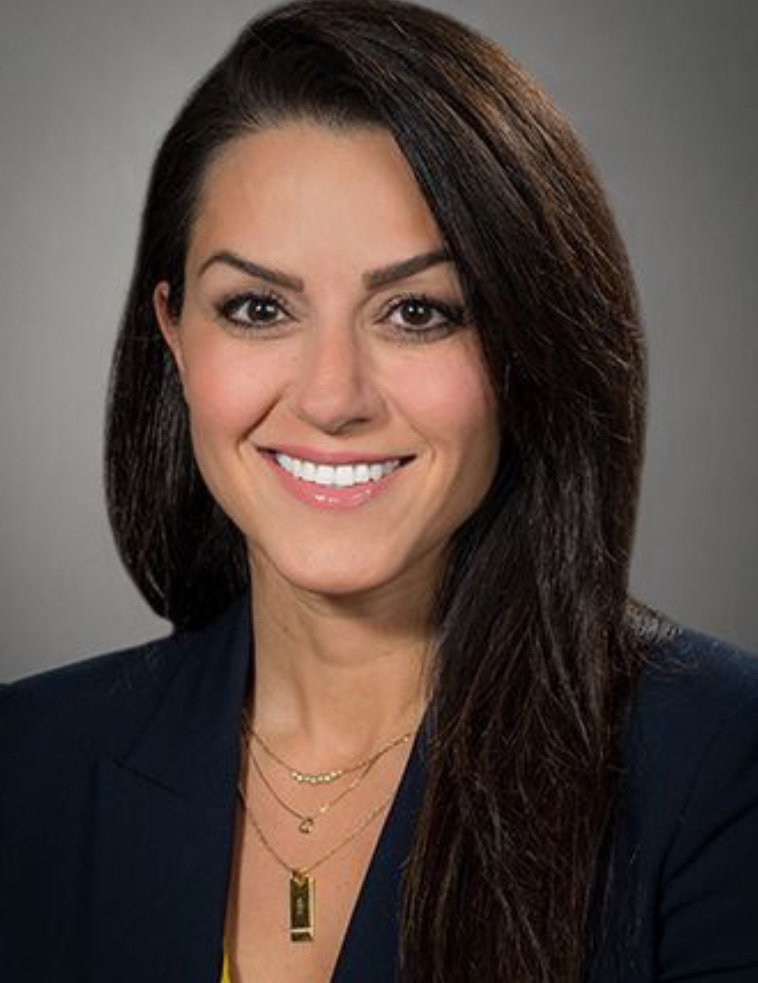
Sepideh Gholami, MD, MAS
Associate Professor, Institute of Cancer Research, Feinstein Institutes for Medical Research, Surgical Director, Northwell Cancer Institute Liver Multidisciplinary Clinic, Director, Translational Research in Surgical Oncology, Northwell Health/Cold Spring Harbor Laboratory, New Hyde Park, NY
Sepideh Gholami, MD, MAS, is a board-certified surgeon scientist with dual fellowship training in complex general surgical oncology and hepatopancreatobiliary surgery. She completed her master’s degree in clinical research at the University of California, Davis’ Mentored Clinical Research Training Program. Dr. Gholami’s research focuses on exploring mechanisms of immune resistance in liver metastases to develop novel immune augmenting therapies and practice-changing clinical trials to improve patient outcomes with colorectal cancer liver metastases. She also has a vested interest in developing novel diagnostic and prognostic biomarkers through designing high-impact clinical trials to improve patient outcomes in colorectal liver metastases. Dr. Gholami’s laboratory has a vested interest in developing novel therapeutic and prognostic biomarkers through designing high-impact clinical trials to improve patient outcomes in those with primary and secondary liver cancers. She studies the tumor microenvironment, spatiotemporal dynamics of tumor-immune crosstalk, and response pathways that play a critical role in anti-cancer therapeutics.
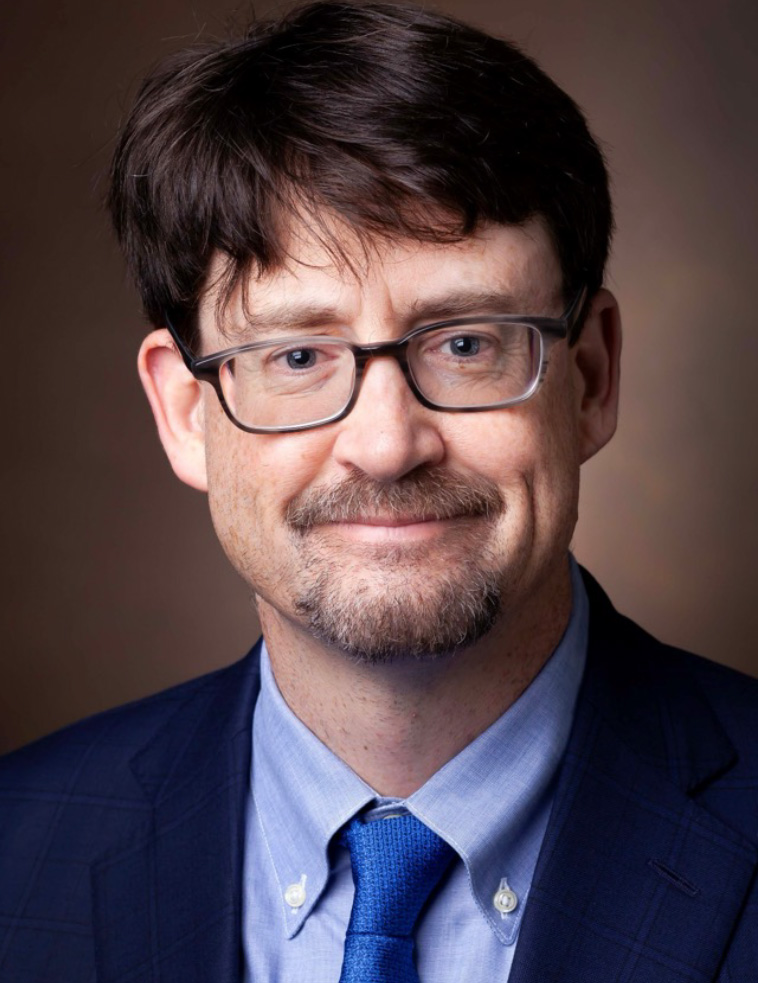
Michael K. Gibson, MD, PhD, FACP
Associate Professor Medicine, Adjunct Associate Professor, Juntendo University Medical Center, Director of Translational Research for Esophagogastric Cancer, Associate to the Research Director for Head and Neck Oncology, Co-Chair, VICC Scientific Review Committee, Chair, Heme/Onc Subcommittee, Pharmacy, Therapeutics and Diagnostics Committee, VUMC, Vanderbilt-Ingram Cancer Center/Vanderbilt University Medical Center, Nashville, TN
Michael K. Gibson, MD, PhD FACP, is Director of Translational Research for Esophago-Gastric Cancer (EGC) at the Vanderbilt-Ingram Cancer Center (VICC)/Vanderbilt University Medical Center, where he also holds a faculty position as Associate Professor of Medicine. After receiving his medical degree from the Johns Hopkins University School of Medicine, Dr. Gibson completed an Osler Medical Residency and medical oncology fellowship at Johns Hopkins Hospital while concurrently earning a doctorate of philosophy in clinical investigation at the Johns Hopkins University Bloomberg School of Public Health. Dr. Gibson’s goal is to integrate the multidisciplinary pre-clinical research and clinical trials programs in esophago-gastric cancers at the Vanderbilt-Ingram Cancer Center. He manages the trial portfolio for these diseases to integrate the research programs across disciplines and lines of care. Dr. Gibson is a member the NCI Esophago-Gastric Task Force and a member of the NCCN Esophageal/Gastric Cancers Panel. He is the study Co-Chair of EA2174 and EA 2183 and the Co-Leader along with Drs. Malcom Brock and Hajime Orita of the Juntendo/Johns Hopkins/Vanderbilt International Esophago-Gastric Collaboration. He also chairs the ECOG-ACRIN Microbiome Working Group. The overall goals of Dr. Gibson’s research efforts are to bring novel therapeutics to the treatment of esophago-gastric cancers based on rational pre-clinical investigation and in the setting of a focus on patient safety and outcomes.
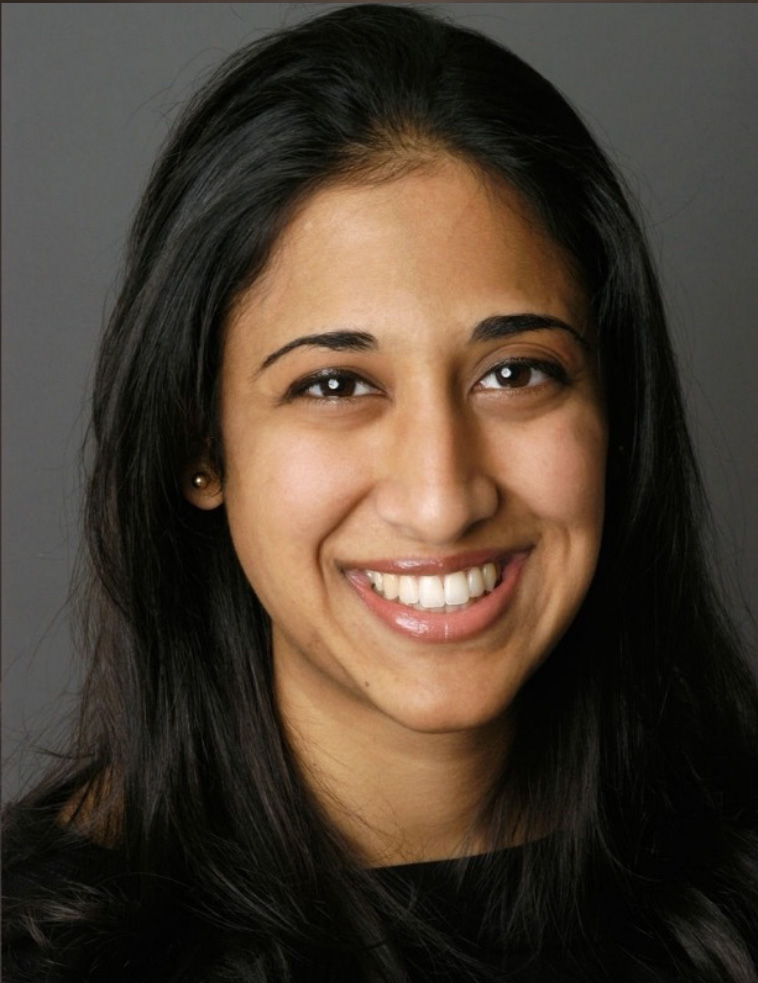
Lipika Goyal, MD
Associate Professor, Stanford University, Stanford, CA
Dr. Goyal is the Director of Gastrointestinal Oncology in the Stanford Cancer Institute and an Associate Professor in the Department of Medicine in the Stanford School of Medicine. Dr. Goyal completed her B.A. in the Biological Basis of Behavior at the University of Pennsylvania and then with the support of a Rhodes Scholarship, pursued a Master of Philosophy in Development Studies at the University of Oxford. She then pursued medical training at Harvard Medical School, the Brigham and Woman’s Hospital Internal Medicine Residency, and the Dana Farber/Harvard Cancer Center Hematology/Oncology Fellowship for her medical training. In 2013, she joined the faculty of the MGH Cancer Center as a medical oncologist in the Gastrointestinal Oncology group and later joined the Termeer Center for Target Therapy to pursue early phase drug development. In February 2023, she joined the faculty at Stanford. Dr. Goyal was awarded the American Cancer Society Researcher of the Year Award in 2022 for her work on FGFR resistance in cholangiocarcinoma. In collaboration with a team of researchers, she is studying mechanisms of intrinsic and acquired resistance to FGFR inhibitors and novel approaches to delaying and overcoming resistance. Her clinical and translational research efforts broadly focus on the development of effective biomarkers and therapies for cholangiocarcinoma and hepatocellular carcinoma, and she serves as the principle investigator for numerous clinical trials to provide access to novel therapeutics for her patients. She has served on the Hepatobiliary Cancers Panel of the National Comprehensive Cancer Network, the American Society of Clinical Oncology Education Committee, and the Steering Committee for National Cancer Institute Liver Cancer Moonshot Program. Her research is funded by grants from the National Institutes of Health, American Cancer Society, US Department of Defense, and the Cholangiocarcinoma Foundation.
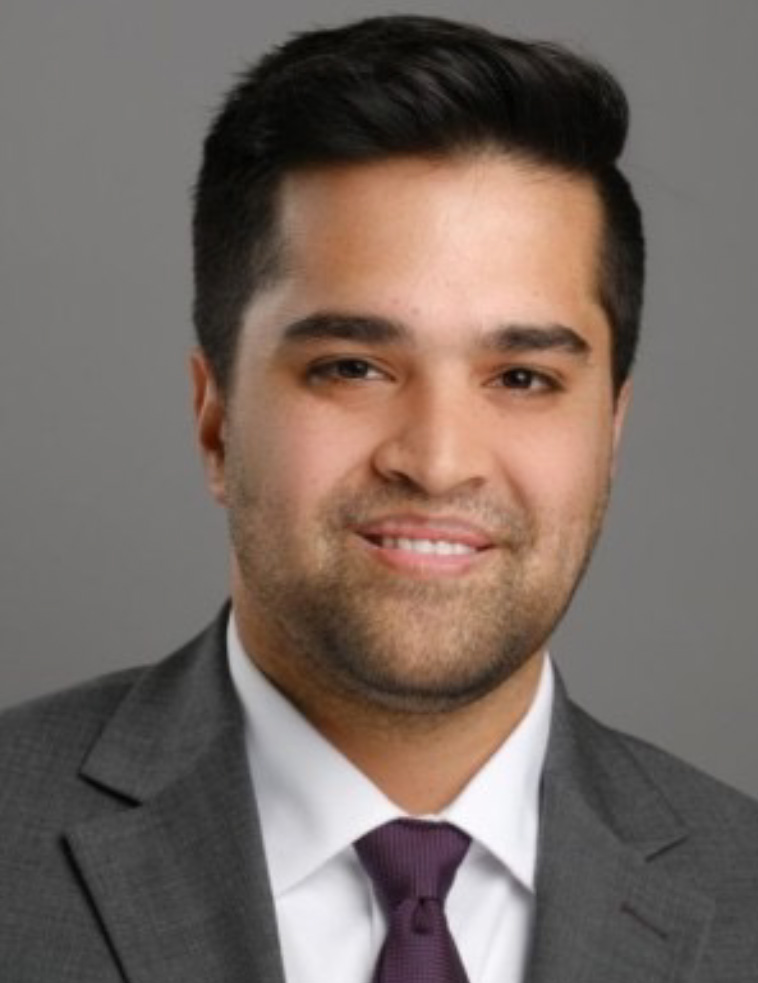
S. Daniel Haldar, MD
Assistant Professor, Department of Gastrointestinal (GI) Medical Oncology, The University of Texas MD Anderson Cancer Center, Houston, TX
Dr. Haldar is an Assistant Professor in the Department of Gastrointestinal Medical Oncology at the University of Texas MD Anderson Cancer Center with a clinical practice focused on pancreatic and colorectal cancer. Dr. Haldar graduated magna cum laude from Harvard College with a joint A.B./A.M. degree in Chemistry and Chemical Biology in 2013 and received his M.D. degree with honors from the Harvard-MIT Health Sciences and Technology Program at Harvard Medical School in 2018. His graduate research focused on the biology of immunomodulatory drugs (iMiDs) in the laboratory of Dr. Benjamin L. Ebert at the Dana-Farber Cancer Institute. He received his internal medicine training at the Osler Medical Residency Program and completed his fellowship in Medical Oncology at Johns Hopkins in 2024. Dr. Haldar is the recipient of several research awards for his work, including the ASCO-Conquer Cancer Foundation Young Investigator Award, Hopper-Belmont Foundation Inspiration Award, and an NIH/NCI Loan Repayment Award. In addition, he was selected to participate in the 2023 ASCO-AACR Methods in Clinical Cancer Research Workshop and the 2023-24 FDA-AACR Oncology Education Fellowship. During his fellowship, Dr. Haldar led multiple investigator-initiated clinical trials and translational studies of an off-the-shelf mutant KRAS vaccine in patients with pancreatic and colorectal cancer under the mentorship of Drs. Nilofer S. Azad and Elizabeth M. Jaffee at Johns Hopkins. As a clinical/translational investigator, Dr. Haldar’s active research interests include the development of neoantigen vaccines, combinatorial immunotherapies, and KRAS-directed therapies for the treatment and early interception of gastrointestinal malignancies.

Thomas Holden, MD
Clinical Assistant Professor, Medicine – Oncology, Stanford Health Care,
Palo Alto, CA
Dr. Holden is a board-certified, fellowship-trained medical oncologist. He is a Clinical Assistant Professor at Stanford University School of Medicine.He specializes in care for people with gastrointestinal cancer including those of the colon, rectum, esophagus, liver, pancreas, and stomach. Dr. Holden works closely with patients to prepare personalized, comprehensive, and compassionate care plans that optimize healing and quality of life. Dr. Holden has conducted research into a wide range of subjects. He co-developed and established a multi-center trial investigating a new treatment regimen for gastric cancer. He has studied use of a fitness tracker to assess activity levels and toxicities in patients with colorectal cancer. He also has written invited commentary on the rapidly advancing field of genetic testing as well as a review on recent updates on the treatment of early-stage rectal cancer. He has published his research findings in articles in peer-reviewed journals including JAMA, the Journal of Clinical Oncology, Cortex, and elsewhere. He has made poster presentations to his peers at meetings including the ASCO Gastrointestinal Cancers symposium and House Staff Quality Improvement and Patient Safety Conference, a meeting held annually at Thomas Jefferson University.
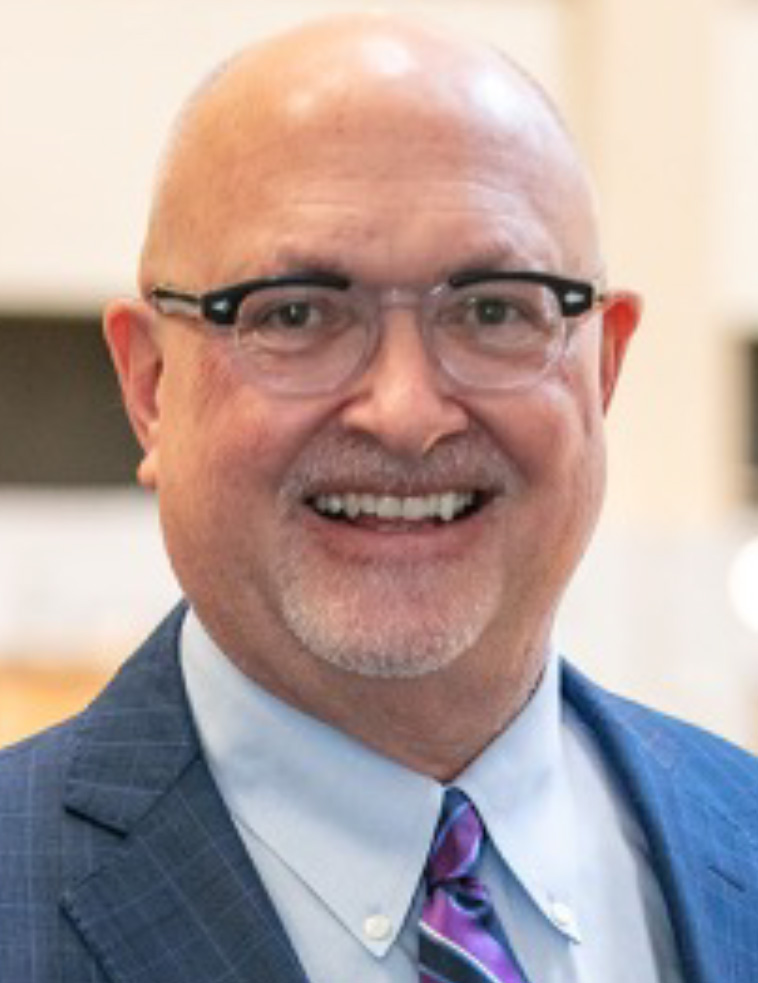
David H. Ilson, MD, PhD
Professor, Department of Medicine, Cornell University Medical College, New York, New York, Attending Physician, Department of Medicine, Gastrointestinal Oncology Service Memorial Hospital, Memorial Sloan Kettering Cancer Center, New York, NY
Dr. Ilson is a Professor in the Department of Medicine at Cornell University Medical College in New York, New York. He is also Attending Physician in the Department of Medicine, Gastrointestinal Oncology Service at Memorial Hospital of the Memorial Sloan Kettering Cancer Center in New York, New York. Dr. Ilson received his MD and PhD from New York University (NYU) School of Medicine in New York, New York. He completed an internship and a residency in the Department of Medicine at NYU/Bellevue Hospital Center, and he served a fellowship in Medical Oncology and Hematology at Memorial Sloan-Kettering Cancer Center. A Fellow in the American College of Physicians and the American Society of Clinical Oncology, Dr. Ilson is an active researcher, focusing on topics including combined modality therapy in esophageal and gastric cancer. He is board-certified in Internal Medicine and Medical Oncology, and belongs to a number of medical societies, including the American College of Physicians, the American Association for Cancer Research, and the American Society for Clinical Oncology. He is a recognized international expert in the management of gastrointestinal malignances and a frequent speaker and lecturer at national and international cancer conferences. He sits on a number of editorial review boards including Annals of Oncology and he is Associate Editor for Gastrointestinal Cancers for the New England Journal of Medicine Journal Watch. He sits on the GI Cancer Committee of the Alliance for Cancer/Legacy CALGB, and he is co-chair of the Upper GI Cancers committee for NRG/Legacy RTOG. He continues to sit on the U.S. NCI Esophagogastric Cancers Task Force, and he is the former task force chair.

Aparna Kalyan, MD
Associate Professor of Medicine, Division of Hematology and Oncology, Northwestern University Feinberg School of Medicine, Chicago, IL
Dr. Aparna Kalyan is an Associate Professor of Medicine in the Division of Hematology and Oncology at Northwestern University Feinberg School of Medicine and a member of the Robert H. Lurie Comprehensive Cancer Center. She earned her MBBS from Flinders University in South Australia, followed by internal medicine residencies in Melbourne and Cleveland. She completed dual fellowships in Hematology/Oncology at the University of Pittsburgh Medical Center and in Developmental Therapeutics at Northwestern University.Dr. Kalyan specializes in the treatment of gastrointestinal cancers, including liver, pancreatic, colorectal, and esophageal malignancies. She is actively engaged in translational research, with a focus on immunotherapy, molecular profiling, and novel therapeutic combinations in GI cancers. Her work also explores radiomics and interventional oncology to enhance treatment responses. She is a recognized leader in clinical trials and serves on national committees including the NCI Diversity Task Force and the NCCN Occult Malignancy Guidelines panel.
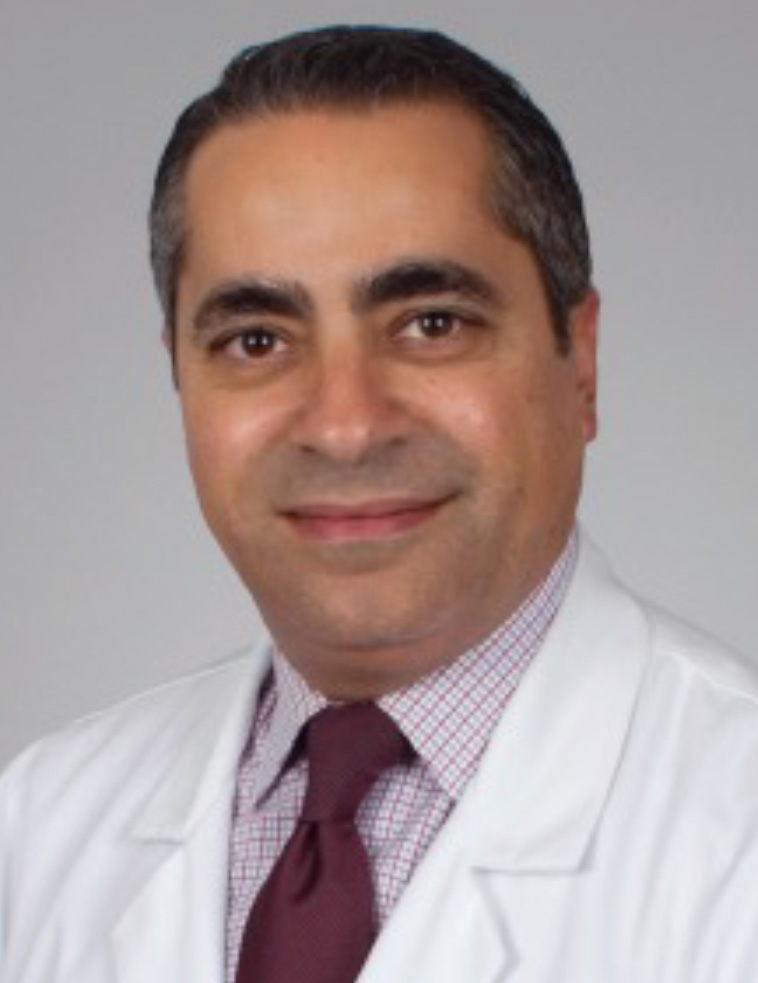
Anthony El-Khoueiry, MD
Associate Professor of Clinical Medicine, Keck School of Medicine of the University of Southern California, Los Angeles, CA
Dr. El-Khoueiry completed his medical degree, residency in internal medicine and fellowship in hematology and oncology at the Keck School of Medicine of the University of Southern California. He is currently associate professor of clinical medicine in the Division of Medical Oncology, a member of the Gastrointestinal Cancers Program and director of the phase I drug development clinical program. He has been the medical director of the Clinical Investigations Support Office at the USC Norris Comprehensive Cancer Center since 2007. His primary research interests include the development of novel drugs for the treatment of solid tumors, especially gastrointestinal malignancies, the design and conduct of phase I and II clinical trials to test these drugs, and translational research focused on developing prognostic and predictive markers in patients with GI malignancies. Dr. El-Khoueiry has established a national reputation in the area of hepatobiliary cancers clinical research; he is the co-chair of the hepatobiliary cancers committee of the Southwest Oncology Group (SWOG) and a member of the National Cancer Institute (NCI) hepatobiliary cancers task force. He is the principal investigator on several clinical trials that are evaluating the role of novel drugs for the treatment of biliary and hepatocellular cancers. As the phase I program director, Dr. El-Khoueiry has formed an experienced and highly skilled phase I clinical research team and established an efficient infrastructure for the conduct of high quality and innovative phase I studies. He has also worked with basic scientists at the USC Norris Comprehensive Cancer Center to design phase I studies to test novel compounds or novel combinations that had undergone pre-clinical testing at USC. Dr. El-Khoueiry is frequently invited to give lectures nationally about gastrointestinal malignancies, particularly hepatobiliary cancers, and has a large number of peer-reviewed publications in his areas of research.

Scott Kopetz, MD, PhD, FACP
Professor, Department of Gastrointestinal (GI) Medical Oncology, Division of Cancer Medicine, The University of Texas MD Anderson Cancer Center, Houston, TX
Dr. Kopetz joined MD Anderson Cancer Center and is Professor and Deputy Chair in the Department of Gastrointestinal Medical Oncology . In the Cancer Medicine division, he is Co-Director of Cancer Biology. Within the institution, he is contact PI of our Gastrointestinal SPORE, leader of our CCSG GI Program, a leader of our Colorectal Cancer Moon Shot, serving as the Medical Director of our TRACTION platform, and the Associate Vice President for Translational Integration. Dr. Kopetz is board-certified in internal medicine and in medical oncology. He has authored over 400 peer-reviewed articles in respected scientific journals such as New England Journal of Medicine, Journal of Clinical Oncology, Lancet, Lancet Oncology, JAMA, Cancer Discovery, and Nature Medicine. He is the principal investigator of several practice changing clinical trials, including trials for patients with BRAF mutated colorectal cancer that led to new standards of care. Dr. Kopetz leads the MD Anderson Gastrointestinal Cancer Center Program and is chair of the NCI Colon Cancer Task Force.
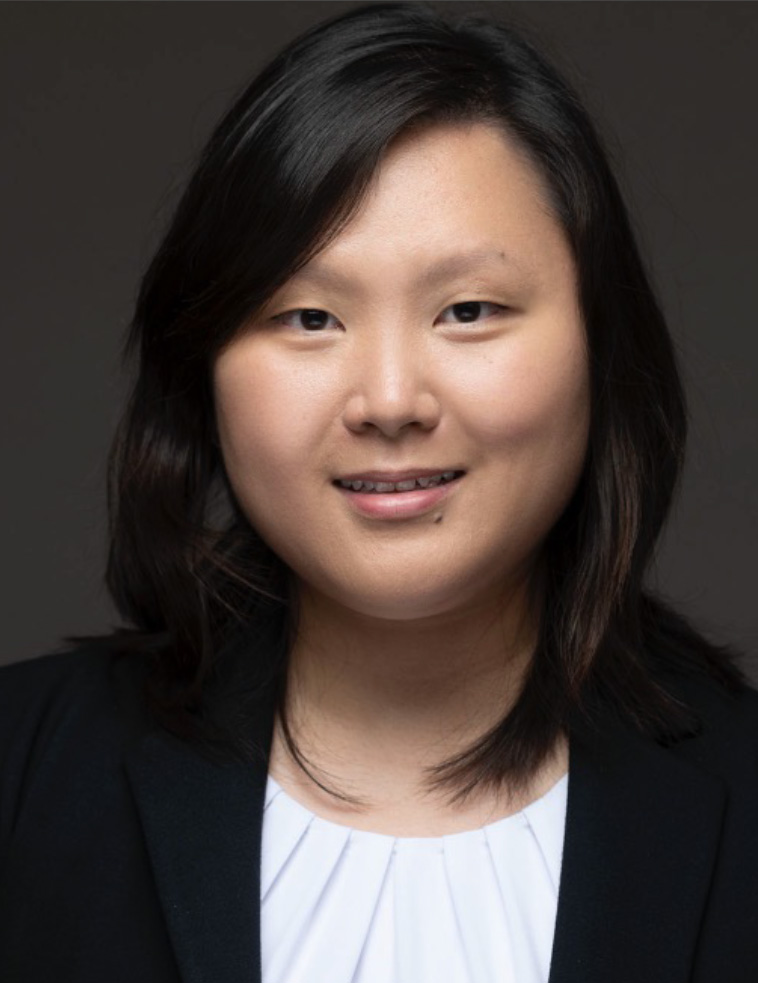
Jenny J. Li, MD
Assistant Professor, Department of GI Medical Oncology, The University of Texas MD Anderson Cancer Center, Houston, TX
Dr. Jenny Li is an Assistant Professor in the Department of GI Medical Oncology at the University of Texas MD Anderson Cancer Center. She received her medical degree from Duke University and completed her internal medicine residency at the University of Texas Southwestern Medical Center, followed by a fellowship in hematology/oncology at Mayo Clinic in Rochester. Dr. Li’s clinical expertise is in the management of upper GI malignancies including esophageal, GE junction, and gastric cancers. Her research focuses on the development of novel targeted therapies for upper GI cancers and the discovery of prognostic and predictive biomarkers based on molecular alterations. She is the PI of multiple clinical trials evaluating multimodality therapy of gastroesophageal cancers.
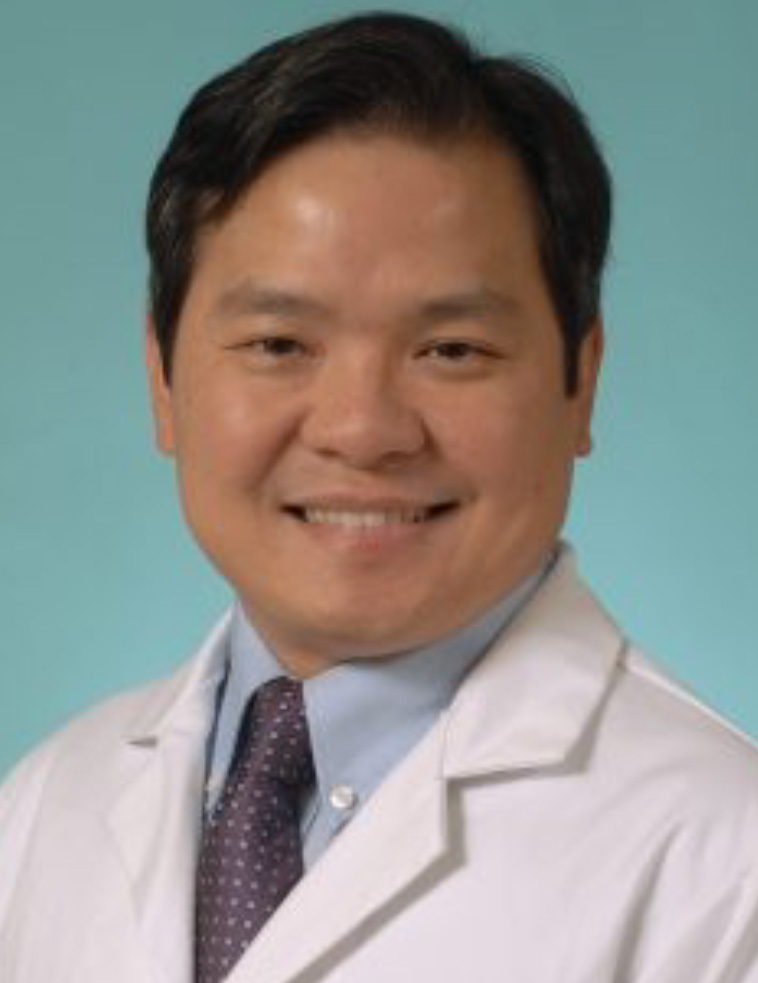
Kian H. Lim, MD, PhD
Professor of Medicine, Director, Gastrointestinal Oncology, Division of Oncology, Department of Internal Medicine, Washington University School of Medicine in St. Louis, St. Louis, MO
Dr. Kian-Huat Lin received his MD degree from the National Taiwan College of Medicine and his PhD from Duke University. Following an internal medicine residency and clinical hematology oncology fellowship at Washington University (WU), he pursued postdoctoral research under the mentorship of Louis Staudt at the NIH, where he studied MyD88 and NFkB signaling in lymphoid malignancies. This work led to a co-first author paper in Nature describing activating mutations of MYD88 in lymphoma. He returned to WU in as Assistant Professor on the tenure track in 2020. He was granted tenure and promoted to Associate Professor in Medicine and named director of the GI oncology program in the Siteman Cancer Center in 2020. Dr. Lin has established a national reputation as a leader in the field of basic/translational research in pancreatic cancer. He is principal investigator of the recently funded Pancreatic Cancer SPORE at WU. Indeed, he has an outstanding record of continuous extramural funding. In addition to the SPORE, he currently is principal investigator of two RO1s, and an R37. Dr. Lin’s independent research is focused on charactering mechanisms of therapeutic resistance in pancreatic cancer. His group was the first to identify the importance of the MK2/Hsp27 axis as a survival factor in pancreatic cancer cells under genotoxic stress (Science Translational Medicine, 2021). This observation has led to an investigator-initiated NIH RO1-funded clinical trial of a MK2 inhibitor in pancreatic cancer. In summary, Dr. Lin is a physician-scientist with an outstanding record of productivity in pancreatic cancer translational research. He is an exceptional candidate for ASCI membership.
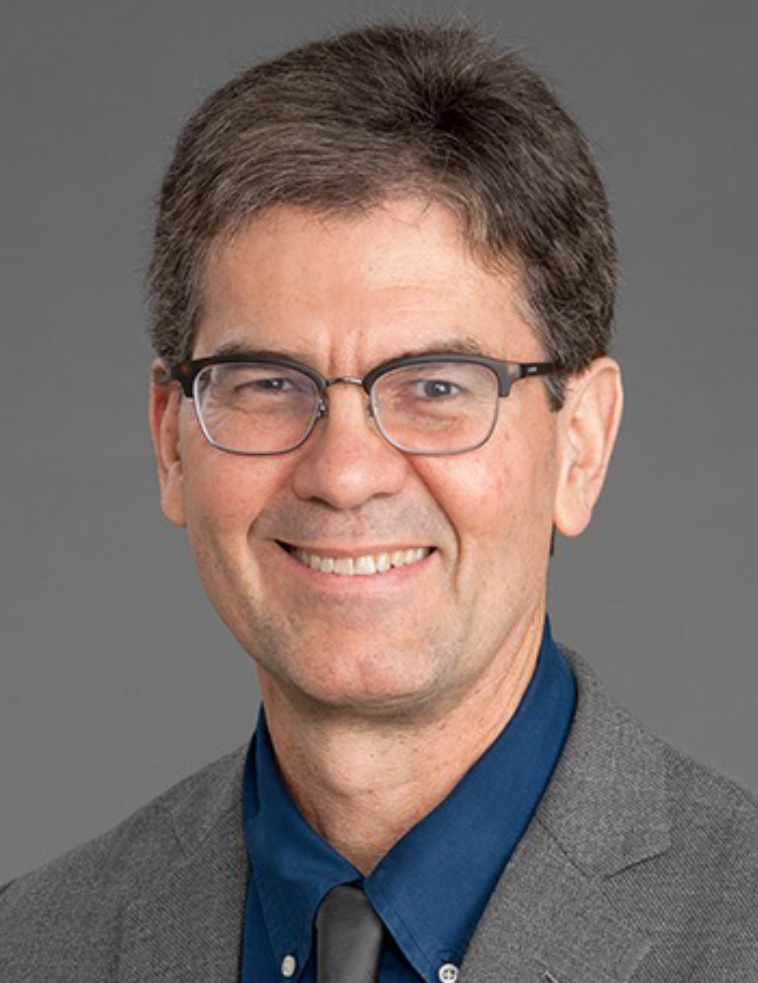
Caio Max Sao Pedro Rocha Lima, MD, MS
M. Robert Cooper Professor in Medical Oncology, Co-Leader G.I.Oncology and Co-Leader Phase I Program, Wake Forest School of Medicine, Medical Center Boulevard, Winston-Salem, NC
Dr. Rocha Lima is currently the Program Co-Leader for GI Oncology and the Phase I program at the Wake Forest School of Medicine in Winston-Salem, NC. He earned his MD (1990) and MS from the Federal University of Bahia in Brazil, where he completed internship, Internal Medicine residency (1992), and Hematology training (1994). He subsequently pursued a Hematology/Oncology fellowship at the Medical University of South Carolina College of Medicine, finishing in 1998, and is board-certified in Internal Medicine and Medical Oncology Dr. Rocha Lima has engaged in a considerable number of studies that investigate the use of novel agents to treat solid tumors, including pancreatic cancer, lung cancer, and colorectal cancers. He is currently involved as a principal or co-investigator in multiple clinical trials. Dr. Rocha Lima’s research has been widely published in journals such as Journal of Clinical Oncology, Chest, Oncology, Seminars in Oncology, Cancer, and The Annals of Oncology.
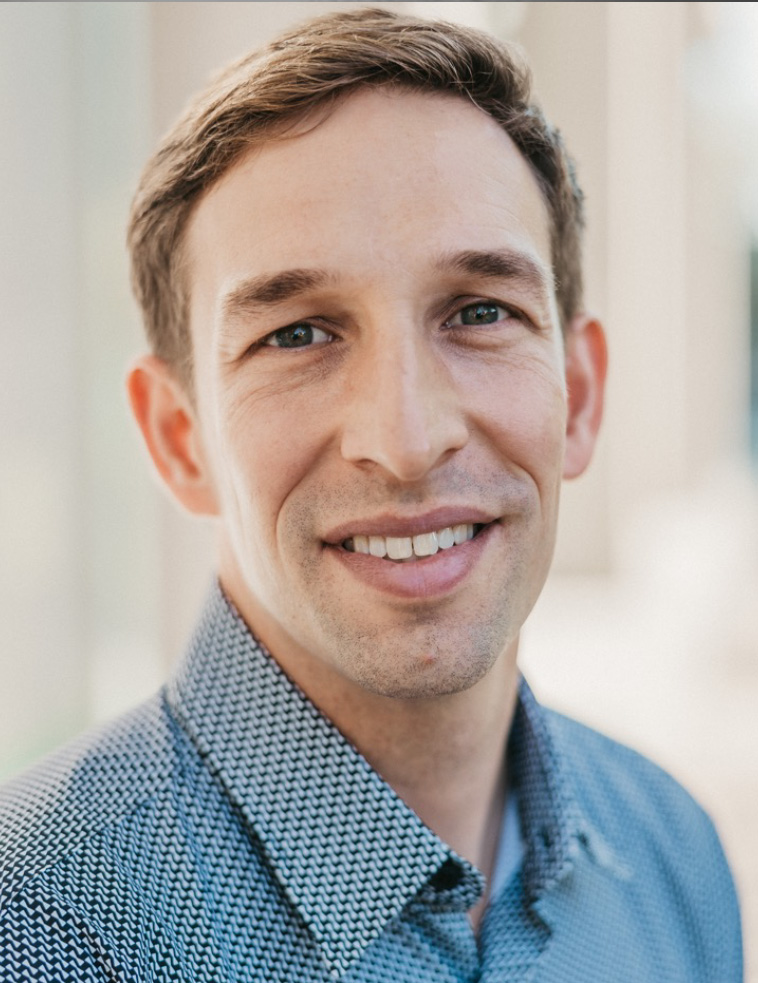
Jonathan Loree, BMSc, MD, MS, FRCPC
Associate Professor of Medicine, Division of Medical Oncology, University of British Columbia, Vancouver, BC, Canada
Dr. Jon Loree is a GI Medical Oncologist at BC Cancer, Associate Professor at the University of British Columbia and a Senior Investigator at the Canadian Cancer Trials Group (CCTG). His clinical interests are in colorectal cancer and neuroendocrine tumors, and he has a translational research lab focussed on circulating tumor DNA and cancer genomics. He serves as the National Cancer Institute Colon Cancer Task Force Co-chair and the CCTG Colon Cancer Disease Oriented Group Co-Chair.

Devalingam Mahalingam, MB, BCH, BAO, PHD
Director, Clinical Trials Office - Lurie Cancer Center, Director, Developmental Therapeutics (DT) and DT Fellowship Program, Professor of Medicine, Division of Hematology/Oncology, Dept. of Medicine, Northwestern University Feinberg School of Medicine, Robert H. Lurie Comprehensive Cancer Center of Northwestern University, Northwestern Medicine, Chicago, IL
Dr. Mahalingam is a clinical researcher and faculty member at Robert H. Lurie Comprehensive Cancer Canter, Northwestern University. He currently serves as the Director of the Clinical Trials Office (CTO), Director fo the Developmental Therapeutics (DT) Clinical Research Unit and the DT Fellowship program director. Since starting my academic career, he has been dedicating 75% of his time to clinical research in early drug development with a focus in gastrointestinal (GI) malignancies and precision oncology. He previously led the GI program at the University of Texas (UT) Health Science Center at San Antonio. He is passionate about drug development and his prior PhD in the field of apoptosis/autophagy have helped me to translate pre-clinical experiences into early clinical trials. His clinical research interests and expertise are designing and executing early phase clinical studies utilizing novel therapeutic agents, incorporating precision oncology next generation sequencing data and developing these targets within early phase clinical studies and GI cancers.He has designed and executed multiple investigator initiated early phase clinical studies based on basic and translational research, through successfully obtained federal and state. To date, he has served as Principal Investigator on approximately 40 early phase clinical trials, and authored or co-authored over 90 manuscripts and hold patents based on his pre-clinical endeavors. He has been successful in obtaining NIH/NCI funding in various interventional therapeutic trials.
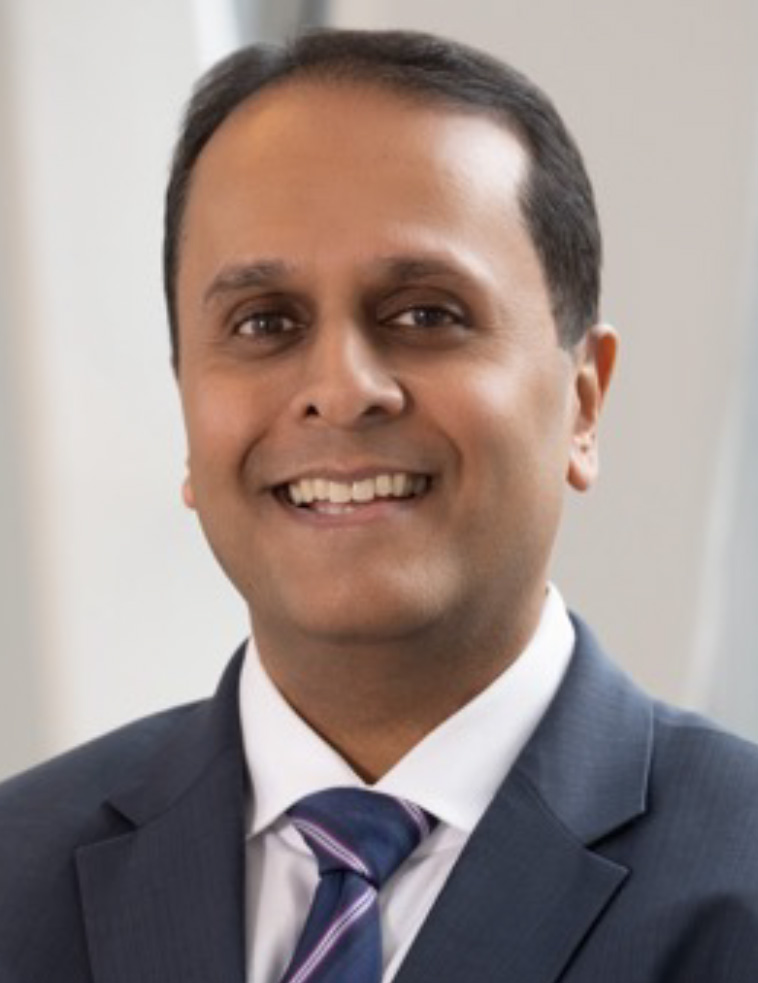
Shishir K. Maithel, MD, FACS, FSSO
William T. Bovie Professor of Surgery, Editor-in-Chief, Surgical Oncology Insight, Chief, Division of Surgical Oncology, Chief Surgical Oncology Officer, Lurie Comprehensive Cancer Center, Northwestern University, Feinberg School of Medicine, Atlanta, GA
Dr. Shishir Maithel is the Chief of the Division of Surgical Oncology and the Chief Surgical Oncology Officer of the Robert H. Lurie Comprehensive Cancer Center at Northwestern University. He has initiated and led 10 multi-institutional research collaborations that have focused on many different types of cancers including bile duct cancers, liver cancer (primary and metastases), pancreas cancer, stomach cancer, neuroendocrine tumors, and sarcoma. He is leading multi-institutional and national clinical trials that focus on bile duct cancers (gallbladder cancer and cholangiocarcinoma), stomach cancer, and colorectal cancer liver metastases. He has also mentored other surgical oncologists around the country to help them build their academic portfolios. His clinical practice is focused on pre-malignant and malignant tumors of the liver, bile ducts, gallbladder, and pancreas. It includes focus on stomach cancer, small bowel cancers, sarcomas that arise in the abdomen, and colorectal cancer when it has spread to the liver.

Midhun Malla, MD
Associate Professor, Medicine - Hematology & Oncology, The University of Alabama at Birmingham, Birmingham, AL
Dr. Midhun Malla is an associate professor who joined us from West Virginia University (WVU), Morgantown. He completed his residency training in Phoenix followed by fellowship in the University of Oklahoma Health Sciences Center. He simultaneously completed masters in clinical and translational sciences. He sub-specializes in the medical treatment of gastrointestinal (GI) malignancies and was actively involved in performing clinical and translational research, building a robust GI clinical trial program, teaching and publishing papers in peer reviewed journals at WVU. He is an active member of Alliance co-operative group committee and is currently working on 2 national clinical trial proposals one each in colorectal and hepatocellular carcinomas. He represents Alliance co-operative group as one of the investigators at the National Cancer Institute- hepatobiliary task force. He was the recipient of a research scholar award through NIH at WVCTSI and his translational research focuses on predictive biomarkers in colorectal cancer metastases. He is elated to join the section of hematology-oncology and the elite team of GI-oncology at UAB, Birmingham.
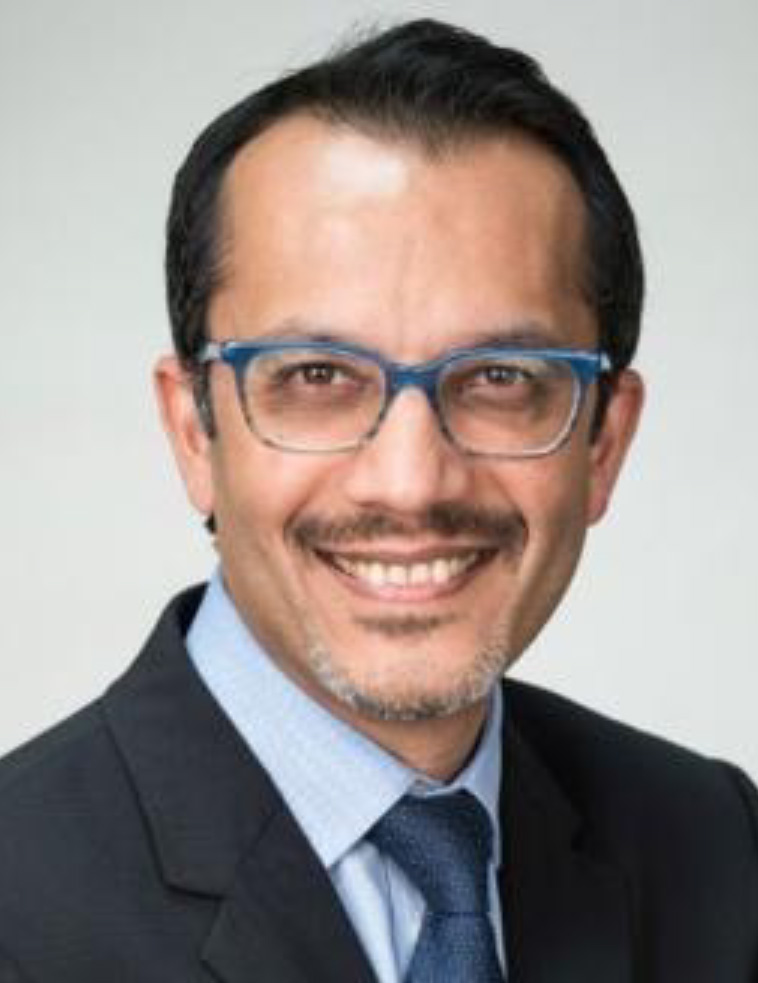
Gulam A. Manji, MD
Associate Professor of Medicine, Columbia University Medical Center, New York, NY
Dr. Gulam Manji, M.D., Ph.D. is an Associate Professor of Medicine at Columbia University Medical Center. Dr. Manji received his M.D. degree from Ross University School of Medicine in 2009 and completed his residency in internal medicine at Albany Medical College. He then completed his fellowship in Hematology/Oncology at NewYork-Presbyterian/Columbia, where his clinical focus was on the treatment of gastrointestinal malignancies, melanoma, and sarcoma under the mentorship of Dr. Gary Schwartz, Chief of Hematology and Oncology. Dr. Manji conducts translational research with the overall goal to developing new treatments for cancer. His focus is in gastrointestinal malignancies, particularly pancreas adenocarcinoma, on which he is conducting preclinical combination immunotherapy studies on genetically engineered mice with pancreas cancer in the Olive laboratory at the Herbert Irving Comprehensive Cancer Center. The combination immunotherapy preclinical proposal received the Young Investigator Award from the American Society of Clinical Oncology-2015. The goal of these preclinical studies is to bring promising new therapies to the clinic in an early phase clinical trials Dr. Manji's research career in identifying new genes and their implication in disease has led to numerous key publications and an issued patent. Dr. Manji cares for patients with gastrointestinal malignancies, with a particular focus on pancreatic and liver cancers, and sarcomas. He is the principal investigator of an investigator-initiated multicenter clinical trial that he wrote with Dr. Gary Schwartz in sarcoma and malignant peripheral nerve sheath tumors and is responsible for clinical trials conducted in liver, bile duct, gallbladder, and pancreas cancers at Columbia University Medical Center.
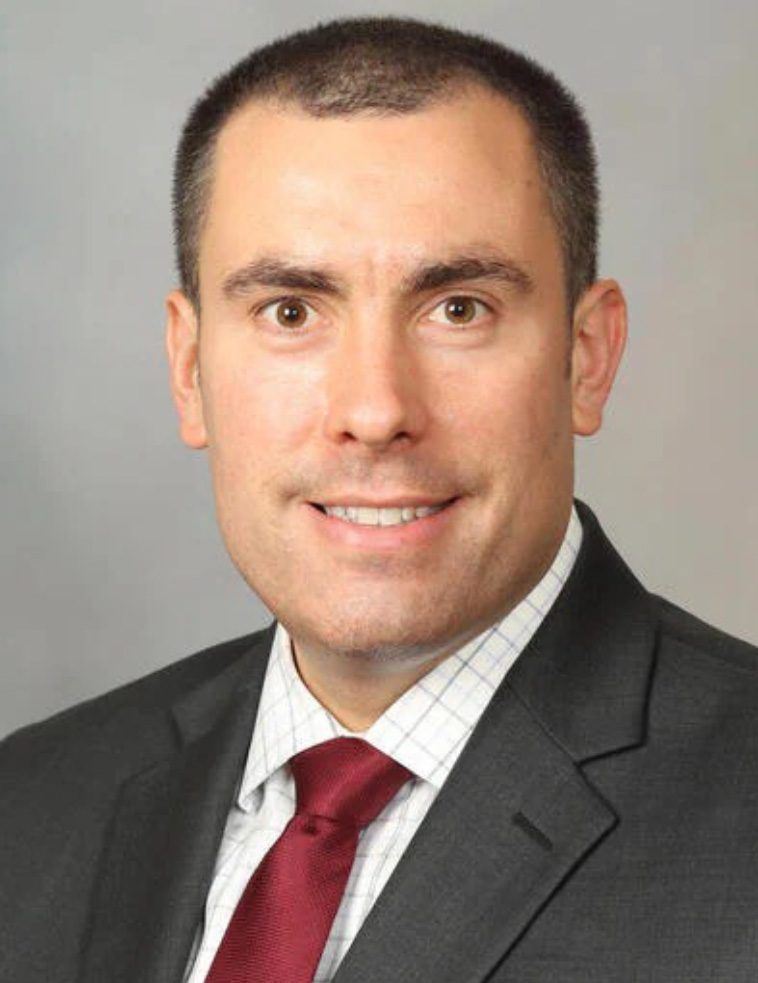
Patrick W. McGarrah, MD
Medical Oncologist, Associate Professor of Oncology, Mayo Clinic, Rochester, MN
Dr. McGarrah is a medical oncologist and clinical trialist specializing in neuroendocrine neoplasms. He has a particular interest in high-grade and poorly differentiated neuroendocrine cancers. His research focuses on understanding and enhancing responses to immunotherapy in neuroendocrine carcinoma. He has conceived and executed several trials using an oncolytic virus platform – vesicular stomatitis virus (Voyager V1) – in patients with neuroendocrine carcinoma as well as in head and neck cancers. In his clinical practice he treats patients with gastrointestinal as well head and neck cancers.
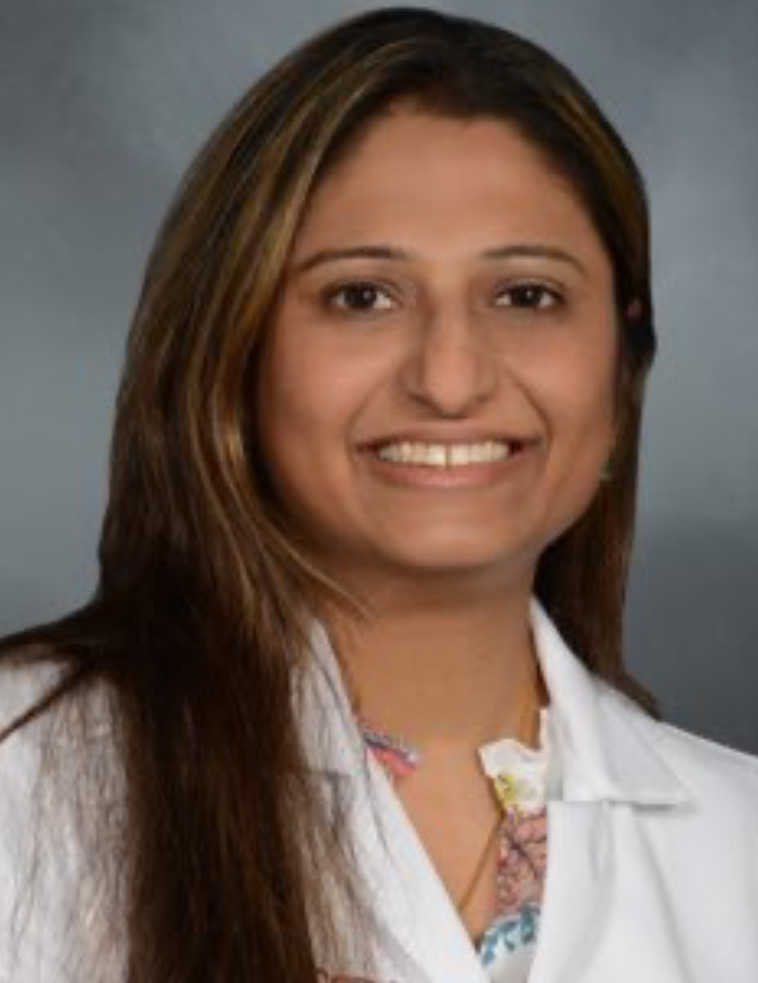
Rutika J. Mehta, MB, BS, MD, MPH
Associate Professor in Medicine, Attending Physician, Weill Cornell Medicine, NewYork-Presbyterian Hospital, NewYork, NY
Dr. Rutika Mehta MD, MPH is an Associate Professor in Medicine and Attending Physician at Weill Cornell Medicine and NewYork-Presbyterian Hospital. Dr. Mehta received her medical degree at Topiwala National Medical College in Mumbai, India. She subsequently completed a Masters in Public Health with a focus on Epidemiology at Indiana University, Indianapolis. She spent three years as a Research Fellow in the Department of Pathology at Indiana University School of Medicine. She then completed her training in Internal Medicine at Johns Hopkins University/Sinai Hospital of Baltimore followed by a fellowship in Hematology/Oncology at Roswell Park Comprehensive Cancer Institute in Buffalo, New York. After completing her hematology and oncology training, Dr. Mehta joined the gastrointestinal (GI) oncology department at the H. Lee Moffitt Cancer Center in Tampa, Florida. At Moffit Cancer Center, Dr. Mehta worked with many renowned leaders in the field and was instrumental in building the clinical and research program for upper GI malignancies. She was selected as a Castle Connolly “Top Doctor” for three straight years in the Tampa Bay area (2022-2024). Additionally, Dr. Mehta has had experience leading several clinical trials for GI cancer patients and has developed some novel trials herself. She is an active member of the American Society of Clinical Oncology (ASCO) and serves as a member of the National Cancer Institute (NCI) Taskforce for Esophagogastric Cancers. Dr. Mehta was recruited to Weill Cornell Medicine (WCM) in 2024. Her clinical and research efforts will focus on all GI cancers with a particular emphasis on developing clinical trials utilizing novel treatment options and advancing the field through precision medicine.

Maria Pia Morelli, MD, PhD
Assistant Professor, Department of Gastrointestinal (GI) Medical Oncology, Division of Cancer Medicine, The University of Texas MD Anderson Cancer Center, Houston, TX
Dr. Dr. Morelli works as an Assistant Professor at Department of Gastrointestinal (GI) Medical Oncology, Division of Cancer Medicine at MD Anderson Cancer Center. She completed her medical degree and physician training from Universita’ della Campania Luigi Vanvitelli, Napoli, Italy. She has also received a PhD degree in medical oncology from Universita’ della Campania Luigi Vanvitelli, Napoli, Italy. Her research interests lies in developing new therapies for treating colorectal neoplasms and targeting Erbb receptors. As a Board-Certified Oncologist, she is a member of the American Board of Internal Medicine and European Community Board of Medicine. She has received numerous awards throughout her career and served in various academic and medical teaching capacities and has authored publications on cancer research topics.
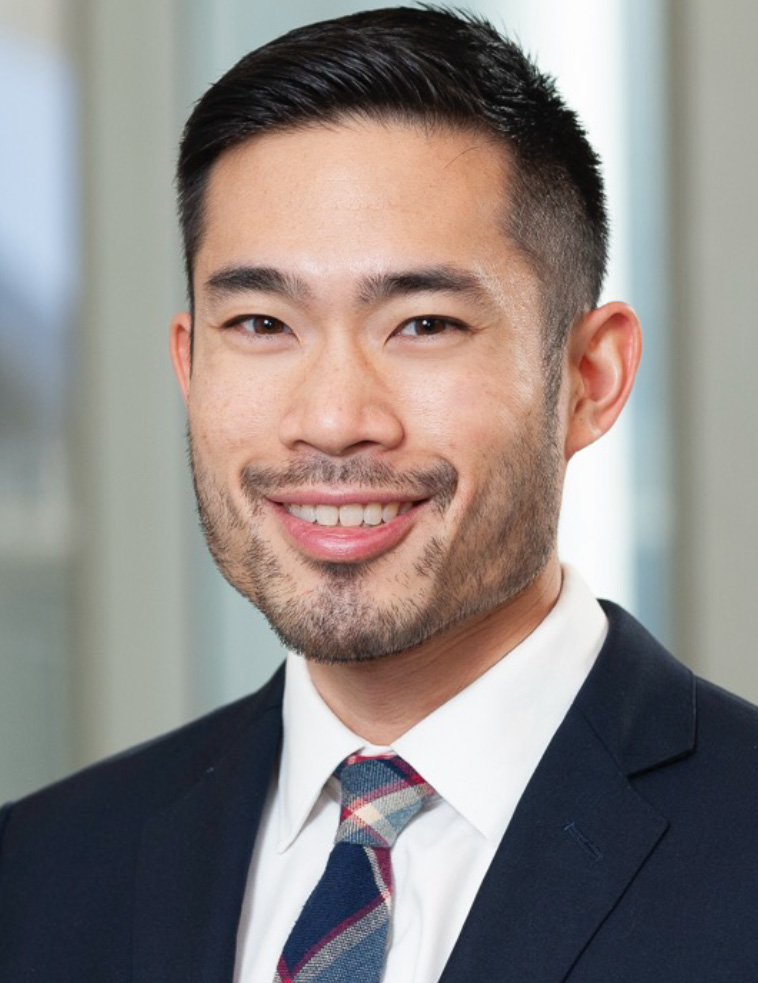
Ryan H. Moy, MD, PhD
Assistant Professor of Medicine, Columbia University College of Physicians & Surgeons, Assistant Attending, New York-Presbyterian/Columbia University Medical Center, New York, NY
Dr. Ryan Moy is an Assistant Professor of Medicine and medical oncologist at Columbia University Irving Medical Center where he specializes in the treatment of GI malignancies, with a focus on esophageal and stomach cancers. He received his MD/PhD from the University of Pennsylvania and completed internship and residency training in Internal Medicine at NewYork-Presbyterian Hospital/Weill Cornell Medical Center. He then completed fellowship training in Medical Oncology at Memorial Sloan Kettering Cancer Center and postdoctoral research at The Rockefeller University. Dr. Moy leads the gastric cancer clinical trial program at Columbia and is conducting research to discover key vulnerabilities in esophagogastric cancers, with the goal of translating these findings from the lab to develop more effective treatments for patients. His work has been supported by a NCI K08 Award and grants from the Department of Defense, Gastric Cancer Foundation, and AACR.

Reetu Mukherji, MD
Assistant Professor, MedStar Georgetown University Hospital, Gastrointestinal Medical Oncologist, Lombardi Comprehensive Cancer Center, Georgetown University Medical Center, Washington, DC
Dr Reetu Mukherji is an assistant professor of medicine within the Division of Hematology and Oncology, Department of Medicine at MedStar Georgetown Lombardi Comprehensive Cancer Center in Washington, DC. She attended medical school at Temple University School of Medicine in Philadelphia, PA, completed her internal medicine residency at Thomas Jefferson University Hospital, and completed her hematology/oncology fellowship at MedStar Georgetown University Hospital. Dr Mukherji is a medical oncologist specializing in the treatment of gastrointestinal (GI) cancers. Her research interests involve GI cancers, novel drug development, predictive and prognostic genomic biomarkers, circulating tumor DNA, and circulating tumor cells. She has published in several peer-reviewed journals on the role of immunotherapies, applications of prognostic genomic biomarkers, and applications of liquid biopsies in the management of patients with GI malignancies. She also has a special interest in upper GI cancers and spearheads Medstar Georgetown’s clinical and research endeavors for this sub-specialty.
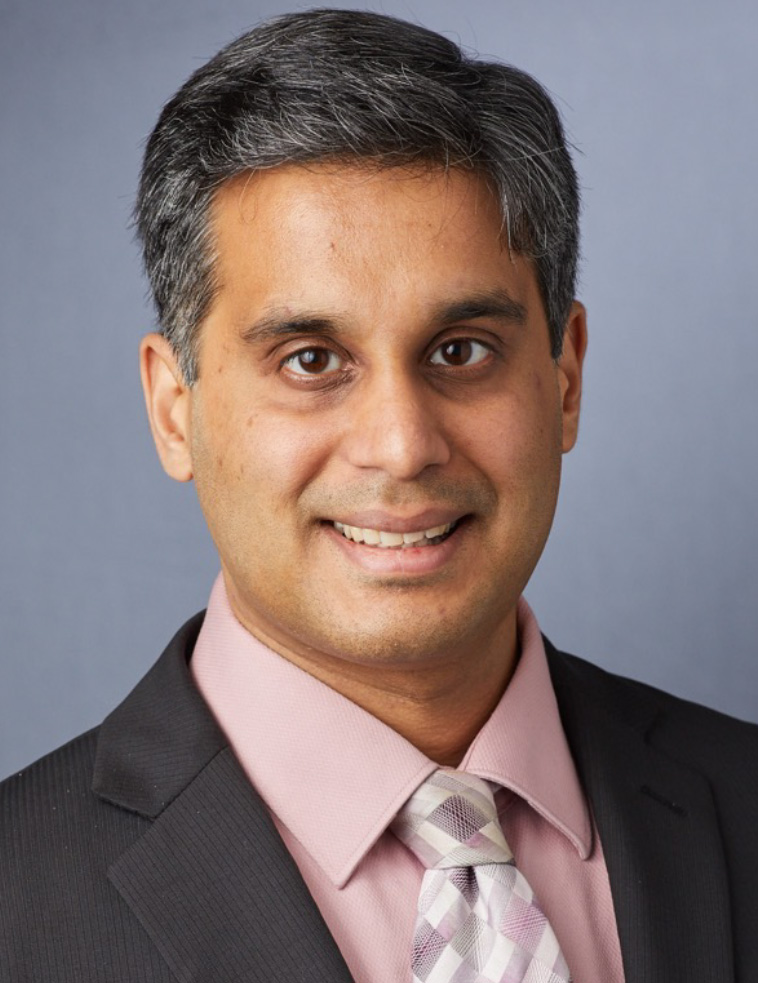
Mandar Deepak Muzumdar, MD
Associate Professor of Genetics and of Internal Medicine, Yale School of Medicine, New Haven, CT
Dr. Mandar Deepak Muzumdar is an Associate Professor of Genetics and of Internal Medicine (Section of Medical Oncology) at the Yale University School of Medicine, a core member of the Yale Cancer Biology Institute, and Scientific Director of the Center for Gastrointestinal Cancers at Smilow Cancer Hospital and Yale Cancer Center. He received his A.B. in Biochemical Sciences from Harvard College followed by an M.D. from the Stanford University School of Medicine, where he worked with Dr. Liqun Luo developing novel mouse models (MADM, mT/mG) for high-resolution genetic analysis. He pursued clinical training in Internal Medicine and Medical Oncology at the Brigham and Women’s Hospital, Dana-Farber Cancer Institute, and Massachusetts General Hospital and completed a postdoctoral research fellowship in cancer biology with Dr. Tyler Jacks at the Koch Institute at MIT before joining the Yale faculty. As a physician-scientist, Dr. Muzumdar’s research centers on the mechanisms by which genetic (KRAS, TP53), environmental (diet), and host factors (obesity) contribute to cancer initiation, progression, and maintenance. Leveraging sophisticated genetically engineered cell lines and mouse models that closely recapitulate human cancers, his laboratory studies tumor cell and host adaptations that cooperate with gene mutations to drive the progression of pancreatic and lung cancers in hopes of developing new strategies for prevention, interception, and therapy of these highly recalcitrant diseases. Specific scientific contributions include: 1) elucidating modes of resistance to oncogenic KRAS inhibition, 2) identifying stage-specific tumor suppressive functions of the tumor suppressor p53 and epigenetic drivers of cancer evolution in lung and pancreatic cancers; and 3) uncovering novel mechanisms of obesity-driven cancer, including previously unappreciated roles for pancreatic endocrine-exocrine signaling and dietary fatty acid composition in cancer development. His work has been funded by innovation awards from the American Association for Cancer Research (AACR), Damon Runyon Cancer Research Foundation, Lustgarten Foundation, Department of Defense, and the National Cancer Institute.
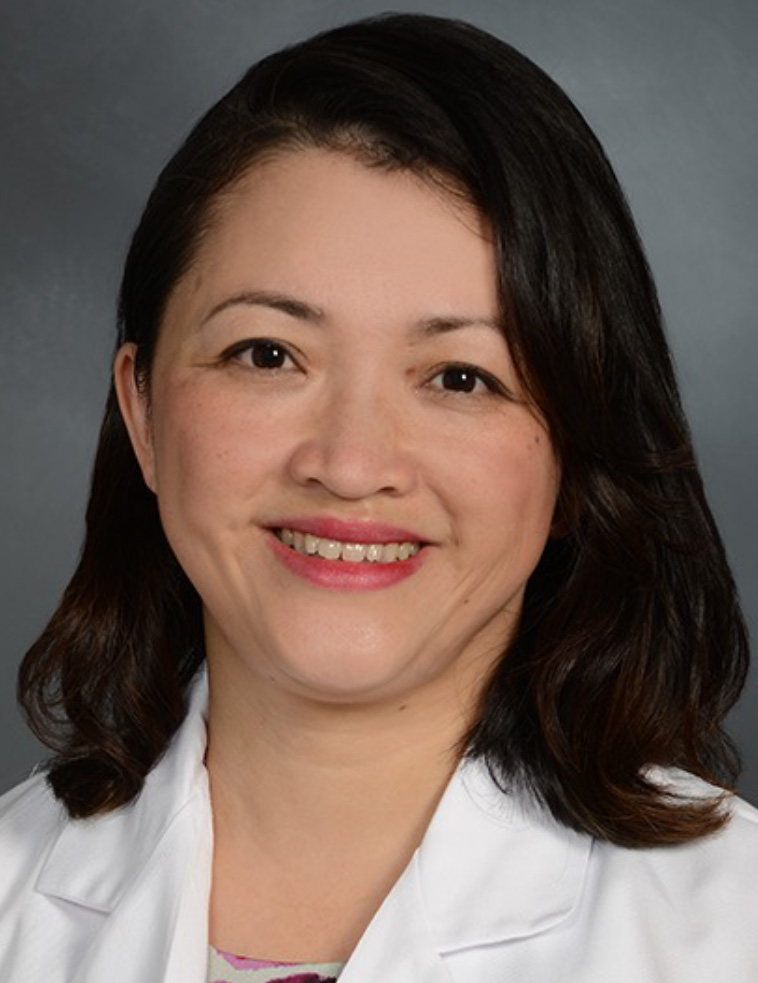
Alana Nguyen, MD PhD
Assistant Professor, Division of Hematology and Oncology, Weill Cornell Medicine/NewYork-Presbyterian Hospital, NewYork, NY
Alana Nguyen, MD PhD, is an Assistant Professor in the Division of Hematology and Oncology at Weill Cornell Medicine/NewYork-Presbyterian Hospital. Dr. Nguyen received her MD from Boston University in Boston, Massachusetts and her PhD from McGill University in Montreal, Canada. She went on to complete her postgraduate medical training in Internal Medicine at the Mount Sinai Hospital in New York City. After her residency, she entered fellowship training in Medical Oncology at Columbia University/New York-Presbyterian Hospital in the Physician-Scientist Pathway. Dr. Nguyen sees patients with malignancies of the digestive tract in her clinical practice. In addition, her research focuses on drug development based on biological understanding of therapy resistance. She received a Women Who Conquer Cancer Award from the American Society for Clinical Oncology and its Conquer Cancer Foundation for her work on a 3-dimensional culture model of patient tumors to predict for patients’ response to chemotherapy and immunotherapy. Using this innovative model, her current research will focus on understanding the tumor microenvironment of pancreatic cancer, and how this tumor microenvironment participates in drug evasion.

Anne M. Noonan, MBBCh
Associate Professor, Department of Internal Medicine, The Ohio State University, Columbus, OH
Dr. Noonan is a medical oncologist who specializes in the treatment of breast cancer and gastrointestinal malignancies like esophageal, pancreatic and colorectal cancers, as well as hepatocellular carcinoma. Her medical degree, residency and initial fellowship in medical oncology were completed in Ireland followed by a second fellowship in medical oncology at the National Cancer Institute in Bethesda, Maryland, where she focused on laboratory research and biomarker-driven phase I and II clinical trials. She currently serve as an assistant professor in the Department of Internal Medicine at The Ohio State University and as section chief of the Gastrointestinal Medical Oncology Section. As a member of the Translational Therapeutics Program at the OSUCCC – James, her research interests include the development of biomarker-driven targeted therapies through clinical trials and translational research. In 2012, she received the Marsha Rivkin Scientific Scholar Award for my work on proteomic biomarker development to treat relapsed ovarian cancer. She has published in the Journal of the National Cancer Institute, Cancer Research, Clinical Cancer Research and the British Medical Journal. She is committed to providing individualized, multidisciplinary care for my patients by incorporating supportive treatments as well as the most up-to-date cancer therapies, including clinical trials.
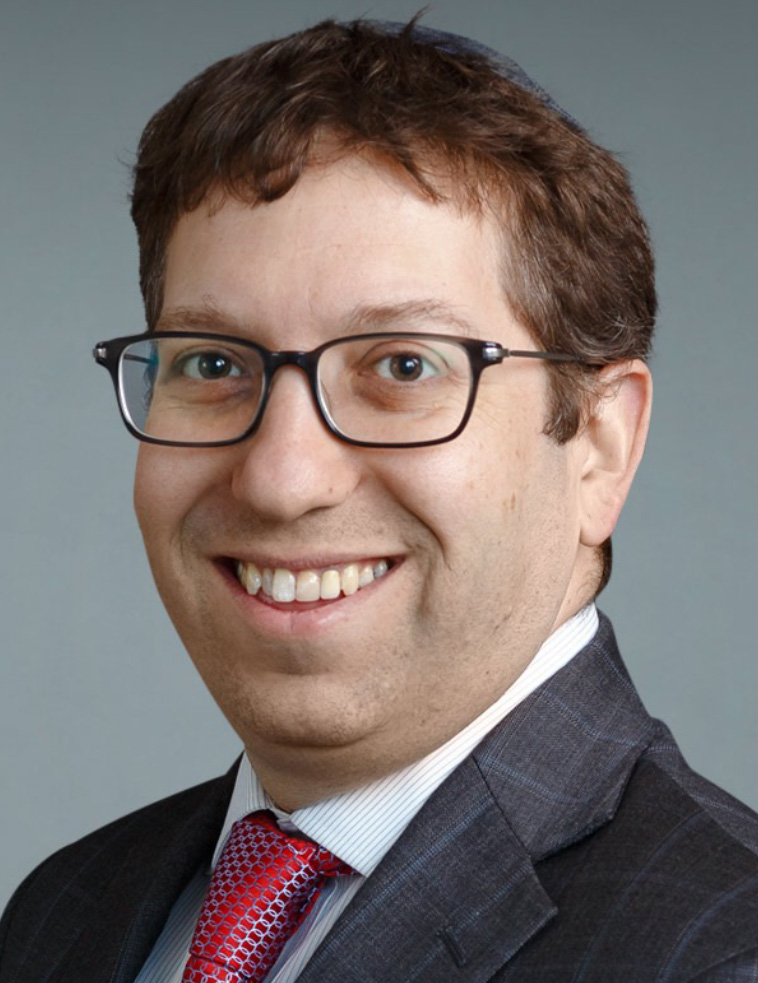
Paul E. Oberstein, MD
Director, Gastrointestinal Medical Oncology Program, NYU Langone Health, New York, NY
Dr. Oberstein focuses on cancers of the gastrointestinal tract, he treats people with various types of cancer, including stomach, pancreatic, colorectal, bile duct, and liver cancers. He works as the assistant director of the Pancreatic Cancer Center, part of NYU Langone’s Perlmutter Cancer Center, where they focus exclusively on research and treatment for people who have pancreatic cancer. His treatments are research-driven and he has participated in many clinical trials with the hope of providing our patients with newer and better treatment options, such as immunotherapy and novel chemotherapy combinations, along with better supportive and nutritional care. His research focus is on translational research, which means we collaborate with scientists who have made novel discoveries and help translate these discoveries into new treatments. He is also a member of the American Society of Clinical Oncology (ASCO) and the American Association for Cancer Research and recipient of an ASCO Young Investigator Award for my work in clinical trials and a KL2 Career Development Award from the National Cancer Institute.
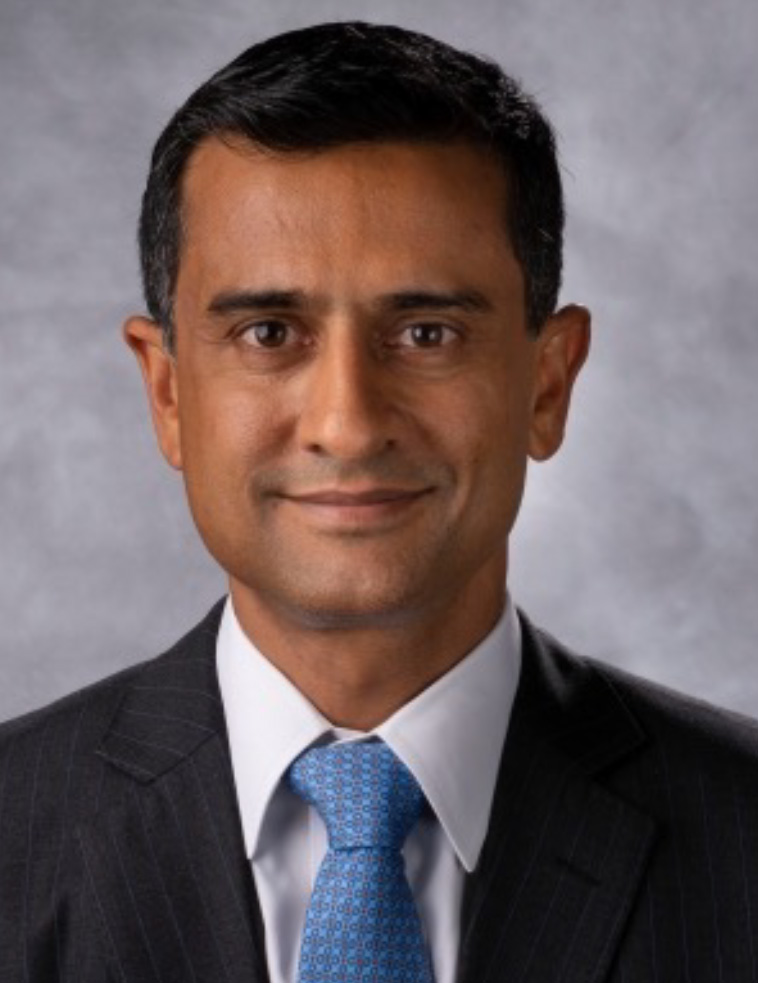
Shubham Pant, MD, MBBS
Professor, Department of Gastrointestinal (GI) Medical Oncology, Division of Cancer Medicine, The University of Texas MD Anderson Cancer Center, Houston, TX
Dr. Shubham Pant is a Professor in the Department of Gastrointestinal (GI) Medical Oncology at The University of Texas MD Anderson Cancer Center. Dr. Pant earned an MD from Maulana Azad Medical College. Dr. Pant completed his fellowship from the James Cancer Hospital/Solove Research Institute at the Ohio State University where he was elected Chief Fellow. He has previously served as the Director of Clinical Trials, Section of Hematology- and as Associate Director of the TSET Phase I Program at the University of Oklahoma. He was recipient of the Mai Eager Anderson Endowed Chair in Cancer Clinical Trials, was featured in "40 under 40" in Oklahoma magazine and has been voted by his peers as "America's Top Doctors" (Castle Connolly) five years in a row. Dr. Pant is a member of GI-ICT Liaison Group at The University of Texas MD Anderson Cancer Center. He has an expertise in Targeted therapy and Immunotherapy and has co-authored numerous peer-review articles and is a Section Editor for the Handbook of Targeted Therapy and Immunotherapy. Dr. Pant is a key opinion leader in the fields of Phase 1 (Early drug development) and GI Cancers including pancreatic, biliary, gall bladder and colorectal cancer. Nationally, he is a member of the Arm Selection Committee of Precision Promise, a Pancreatic Cancer Action Network (PanCan) initiative.
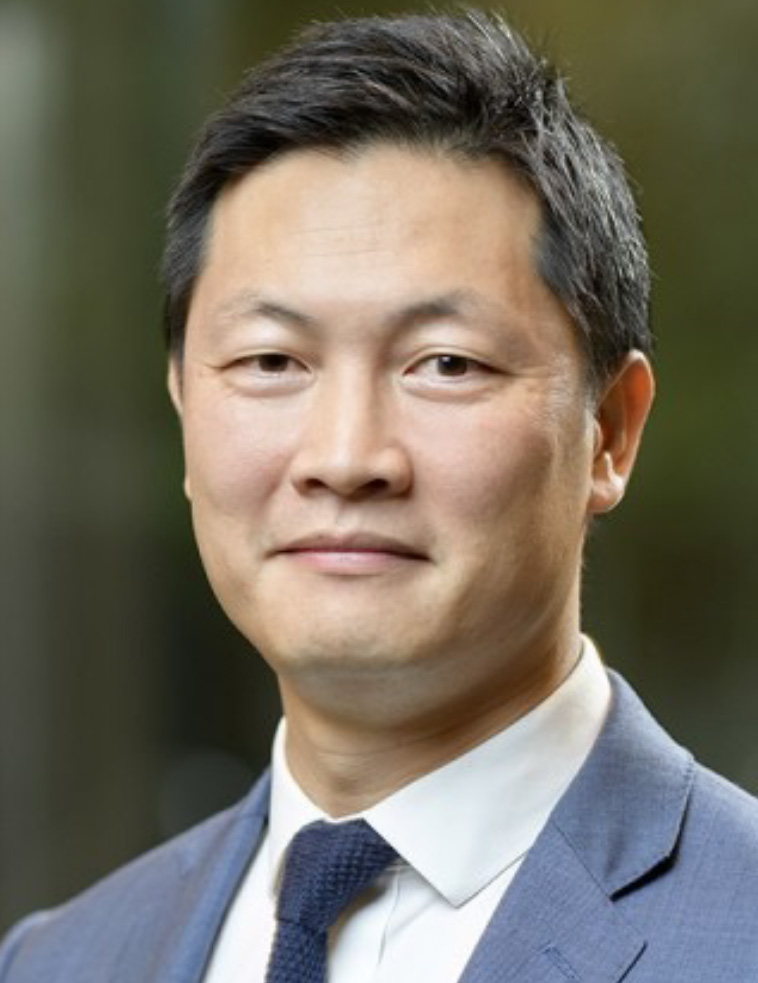
Wungki Park, MD, MS
Assistant Profession of Medicine, Weill Cornell Medical College, Assistant Attending Physician, Memorial Sloan Kettering Cancer Center, New York, NY
Dr. Wungki park is a medical oncologist who specializes in caring for people with cancers of the pancreas, and bile system. He serves as Assistant Attending Physician at Memorial Sloan Kettering Cancer Center. He graduated from Yonsei University, Wonju College of Medicine and completed her residency in Internal Medicine from Mount Sinai West-St. Luke’s and fellowship in Medical Oncology from University of Miami, Jackson Memorial Hospital. Dr. Park works to develop new drugs for pancreatic cancer and other GI cancers. He designs and conducts clinical trials at institutional, national, and international levels. In the lab, he does mostly translational research to understand the resistance mechanism and to discover new putative therapeutic targets. His recent work is focused on immunogenomics of pancreatic cancer especially associated with DNA damage repair deficiency (MSI-H, BRCA2, 1, PALB2, ATM), novel therapies against KRAS, cell surface targets such as CLDN18.2 and TF.
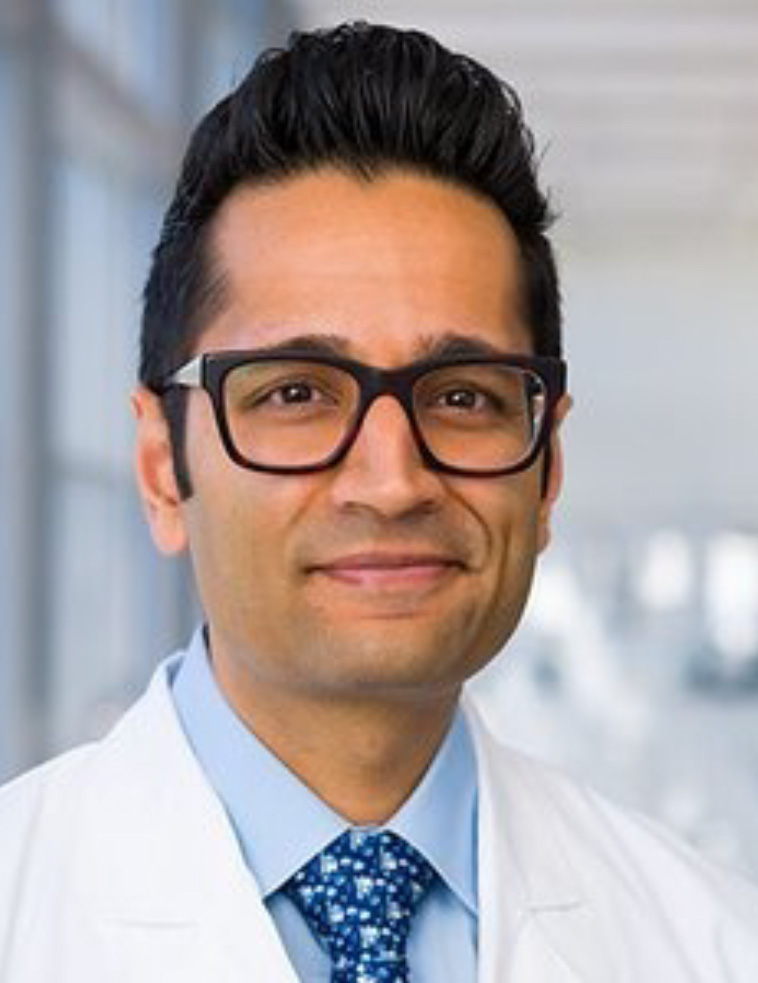
Madhukar S. Patel, MD, MBA, ScM
Dedman Family Scholar in Clinical Care, Surgical Director, Liver Transplantation, Division of Surgical Transplantation, UT Southwestern Medical Center, Dallas, TX
Dr. Madhukar S. Patel, M.D., M.B.A, Sc.M. is an abdominal transplant and hepatobiliary surgeon at the University of Texas, Southwestern Medical Center (Dallas, TX, USA), where he is the Surgical Director of the Liver Transplant Program. His clinical focus is on addressing the needs of patients with benign and malignant hepatobiliary disease, especially those who are unresectable and are candidates for living and/or deceased donor liver transplantation. Dr. Patel is actively involved in research as a Dedman Family Scholar and director of the Advancing Surgical Transplantation Research Outcomes (ASTRO) group. He is focused on developing strategies to increase the number and improve the quality of organs available for transplant, as well as to develop pathways to optimize clinical outcomes after liver transplantation.
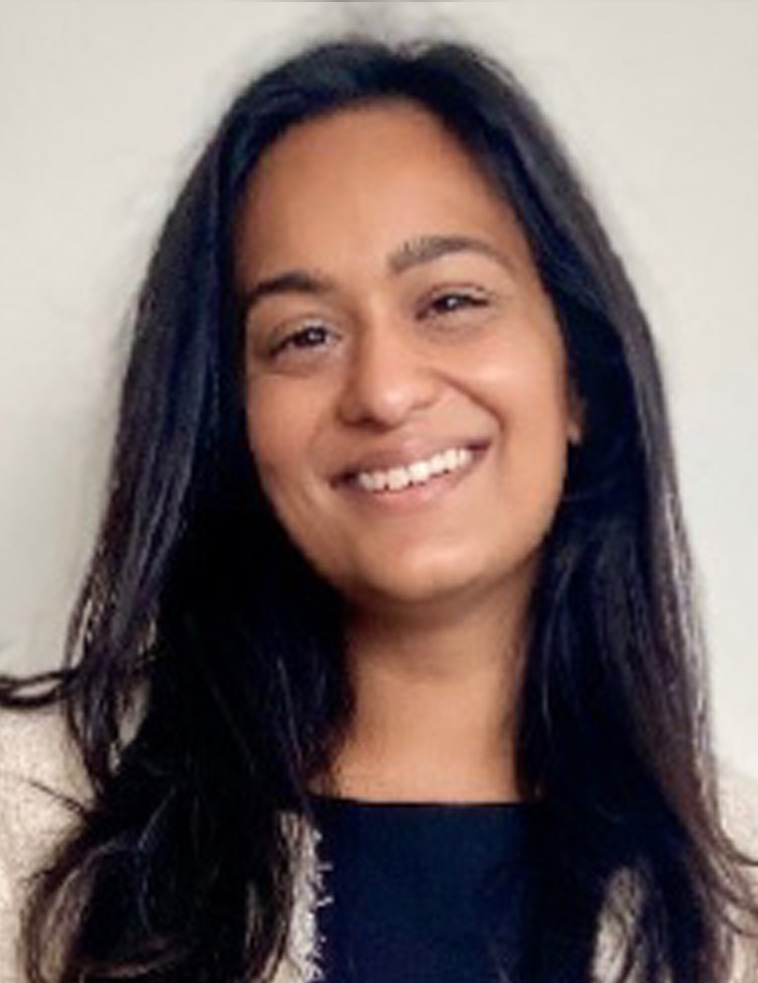
Shruti Patel, MD
Clinical Assistant Professor, Department: Medicine - Med/Oncology, Stanford Health Care, Palo Alto, CA
Dr. Shruti Patel is a Clinical Assistant Professor of Medicine in the Division of Oncology at Stanford University, where she provides specialized care in hematology and medical oncology and contributes to both adult and pediatric oncology services Stanford Medicine. She earned her M.D. from the Keck School of Medicine of the University of Southern California, completed her Internal Medicine residency at the Mayo Clinic in Rochester, MN, and recently finished her Hematology and Oncology fellowship at Stanford in 2024 Stanford Medicine. Board-certified in both Internal Medicine (2021) and Medical Oncology (2024), Dr. Patel combines rigorous clinical expertise with cutting-edge research. Her research interests center on precision oncology and biomarker development, with a particular focus on utilizing liquid biopsy techniques for early tumor detection, monitoring treatment response, and predicting outcomes.
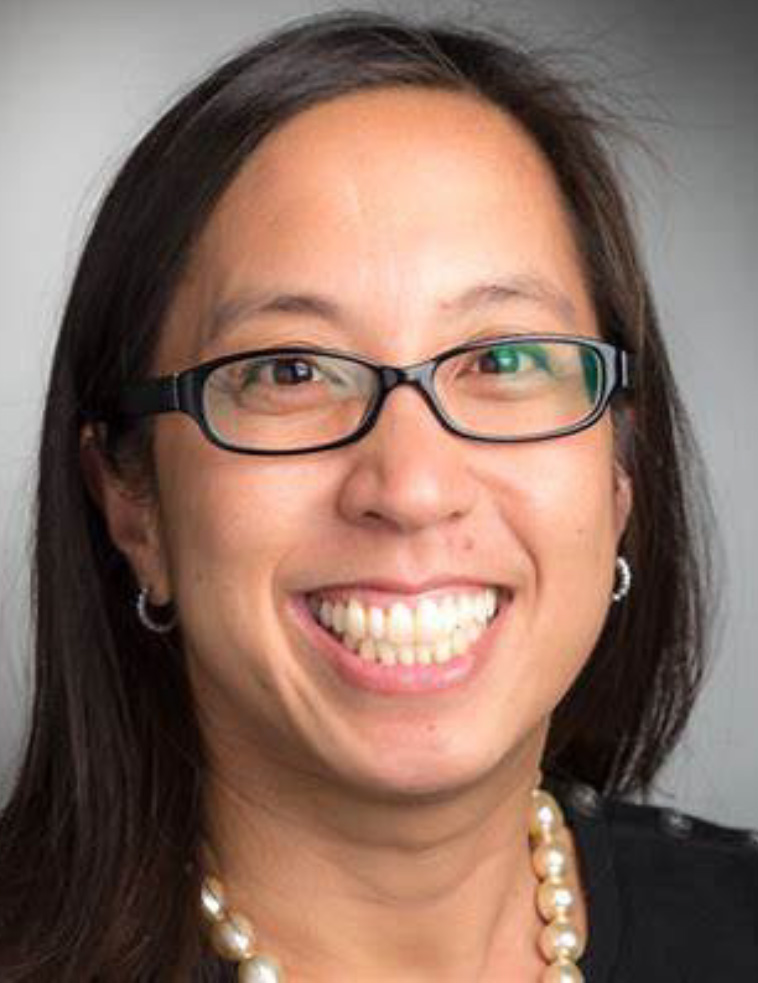
Kimberly Perez, MD
Co-Director, Clinical Research, Division of Gastrointestinal Oncology, Senior Physician, Assistant Professor of Medicine, Harvard Medical School, Boston, MA
Dr. Kimberly Perez is a Senior Physician in Medical Oncology at Dana-Farber Cancer Institute and an Assistant Professor of Medicine at Harvard Medical School. She also serves as Co-Director of Clinical Research in the Division of Gastrointestinal Oncology. Dr. Perez earned her medical degree from George Washington University School of Medicine in 2004. She completed her residency and fellowship in Hematology/Oncology at the Warren Alpert Medical School of Brown University, finishing in 2010. With over 20 years of experience, Dr. Perez specializes in gastrointestinal cancers, including pancreatic, colorectal, and neuroendocrine tumors. Her translational research focuses on developing and leading investigator-initiated clinical trials for patients with pancreatic adenocarcinoma and neuroendocrine tumors. She is actively involved in clinical protocol development and has been designated a Hale Family Center for Pancreatic Cancer Research Clinical Investigator.

Anjana Pillai, MD
Professor of Medicine, Professor of Surgery, University of Chicago Medicine, Chicago, IL
Dr. Anjana Pillai is a Professor of Medicine and Surgery at the University of Chicago Medicine and is the Director of University of Chicago's multidisciplinary liver tumor program, Co-Director of the Adult Living Donor Liver Transplant Program and the Program Director for the ACGME accredited Transplant Hepatology Fellowship. Dr. Pillai is also active in national and international societies serving on several committees including the Governing Board for the International Liver Cancer Association (ILCA), Past Chair of the American Society of Transplant's LICOP Executive Committee and the Co-Chair of the Liver Cancer SIG of the AASLD. She is also the Co-Founder and course director of HCC-LIVE, an annual conference highlighting the multidisciplinary approach to advancing liver cancer care.
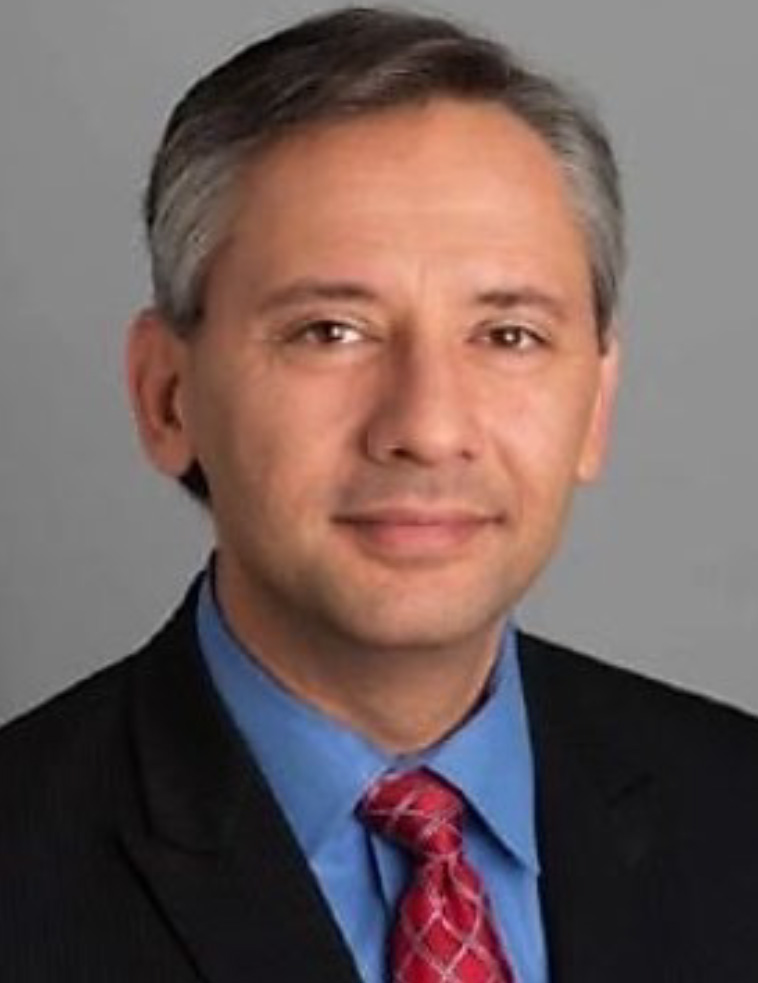
Michael Pishvaian, MD
Associate Professor of Oncology, Johns Hopkins University School of Medicine, Washington, DC
Dr. Mike Pishvaian is an Associate Professor in the Department of Oncology at Johns Hopkins University. Dr. Pishvaian is an MD and has a PhD in Tumor Biology, having earned both degrees at Georgetown in 2001. He remained at Georgetown after graduation, completing his medical residency in 2004, then his fellowship in Hematology/Oncology in 2007. He served on the faculty at Georgetown until moving to MD Anderson in 2019. At MD Anderson, he was the co-director for Clinical Research at the Zayed Center for Pancreatic Cancer Research. He then moved to Johns Hopkins, where he works in the Washington, DC National Capitol Region, leading the GI and Phase I programs there. On social media, Dr. Pishvaian is also the Founder of Tumor Board Tuesdays, a case-based weekly discussion on Twitter focusing on interesting biomarker-based therapies. Dr. Pishvaian is a translational oncologist, focused on providing novel therapies for patients, particularly in the areas of pancreatic cancer and refractory colorectal cancer. His work has been focused in the area of precision medicine, with a special focus on therapy targeted towards homologous recombination DNA repair deficient tumors, and Dr. Pishvaian is a Co-investigator on an NIH RO1 to study mechanisms of resistance to PARP inhibitor-based therapy, and a Co-PI of a U01 grant aimed at studying ex vivo patient derived models of cancer for patients with pancreatic cancer. Dr. Pishvaian also serves as the Alliance Co-Chair of the Pancreatic Cancer subcommittee, and is the Alliance member of the NIH Pancreatic Cancer Task Force. He is also chair of TARGET-Panc, an ACCRU-supported effort to build biomarker-based clinical trials in Pancreatic Cancer.
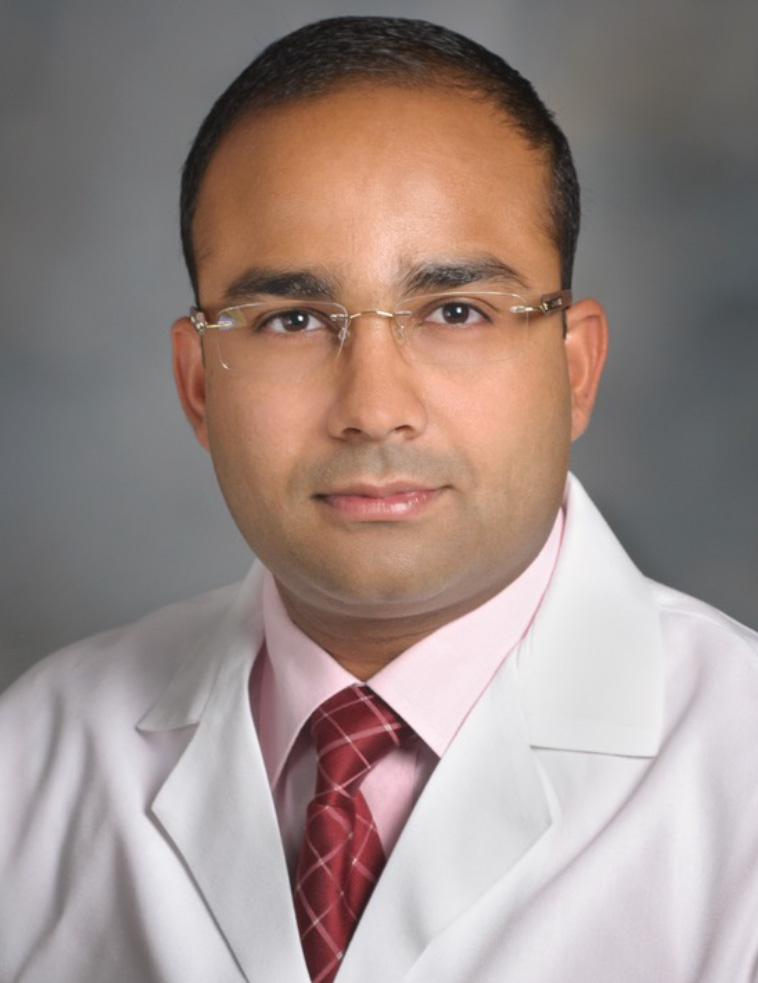
Kanwal Raghav, MD, MBBS
Associate Professor, Gastrointestinal Medical Oncology, Center Medical Director (CMD), Ambulatory Treatment Centers, The University of Texas MD Anderson Cancer Center, Houston, TX
Dr. Kanwal Raghav is an Associate Professor in the Department of Gastrointestinal Medical Oncology (GIMO) at MD Anderson Cancer Center, Houston, TX (MDACC). His clinical and research efforts center on patients with colorectal cancer (CRC) with emphasis on cancer genomics and developmental therapeutics. He joined GIMO after completion of my fellowship in Hematology/Oncology in 2013 and since have led many clinical trials (targeted therapy and combined targeted and immune therapy) as principal investigator (PI) and authored multiple publications on tumor biology, therapeutic resistance, and cancer biomarkers. His research focuses on biomarker-based cancer therapy and genomically-driven clinical trials. Complementing his clinical research efforts, is his translational work on identifying putative predictive biomarkers for EGFR antibodies (HER2 amplification) using next-generation sequencing and ctDNA assays. Using one of the largest cohorts of HER2 amplified metastatic CRC (mCRC) his group validated the HER2 amplification as a predictive biomarker in mCRC. He has been an investigator on many HER2 trials such as the MyPathway HER2 targeting (trastuzumab + pertuzumab) study in mCRC, S1613, an NCI-NCTN randomized trial of cetuximab plus irinotecan (CETIRI) vs. trastuzumab plus pertuzumab (TP) in patients with refractory HER2 amplified metastatic colorectal cancer, DESTINY-CRC01 and CRC02 studies, and MOUNTAINNER-03 trial with trastuzumab and tucatinib.
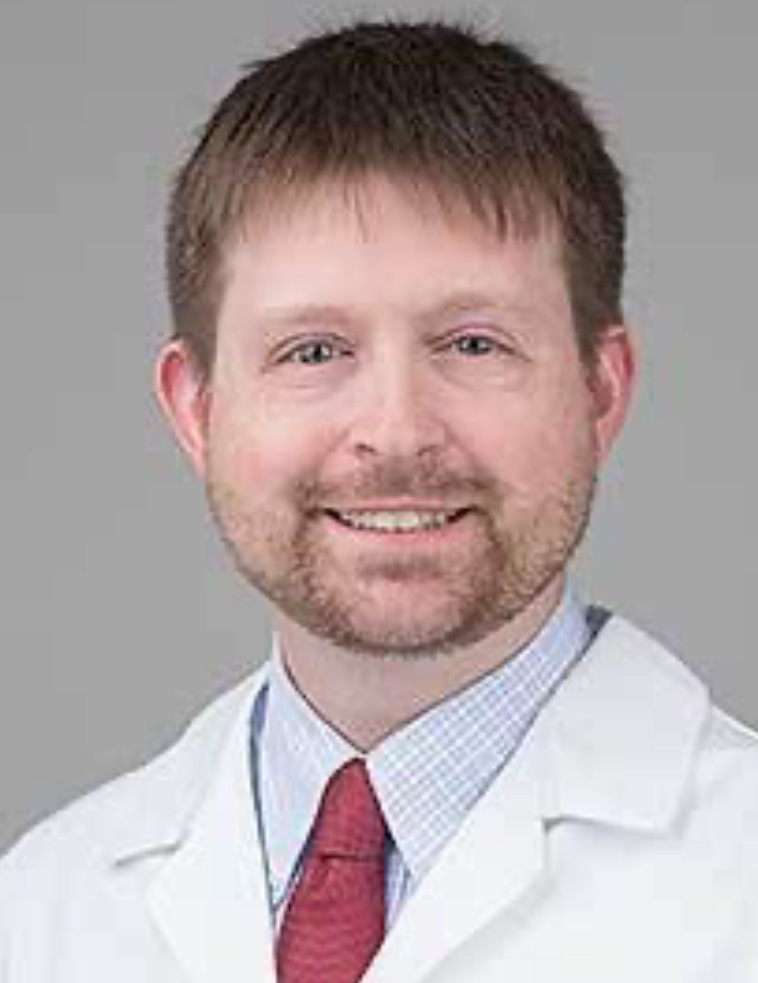
Matthew Reilley, MD
Associate Professor of Medicine, Director UVA Phase 1 Program, Director GI Medical Oncology Research, Division of Hematology/Oncology, University of Virginia School of Medicine, Virginia
Matthew Reilley, MD, is an associate professor of medicine at the University of Virginia School of Medicine. He manages patients with gastrointestinal cancers, including those in the stomach, esophagus, liver/bile ducts, pancreas, small intestines, colon, and rectum, as well as neuroendocrine tumors. Dr. Reilley’s research is focused on developing new and effective therapies for patients with advanced cancer. He has led dozens of clinical trials and directs the phase 1 clinical trial program at the UVA Comprehensive Cancer Center. Dr. Reilley earned his medical degree from Brown University. He completed his internal medicine residency at the University of Pennsylvania and a fellowship in hematology & medical oncology at The University of Texas MD Anderson Cancer Center, where he served as chief fellow. He has been recognized for his outstanding patient care and excellence in research. Dr. Reilley is board-certified in medical oncology and internal medicine.
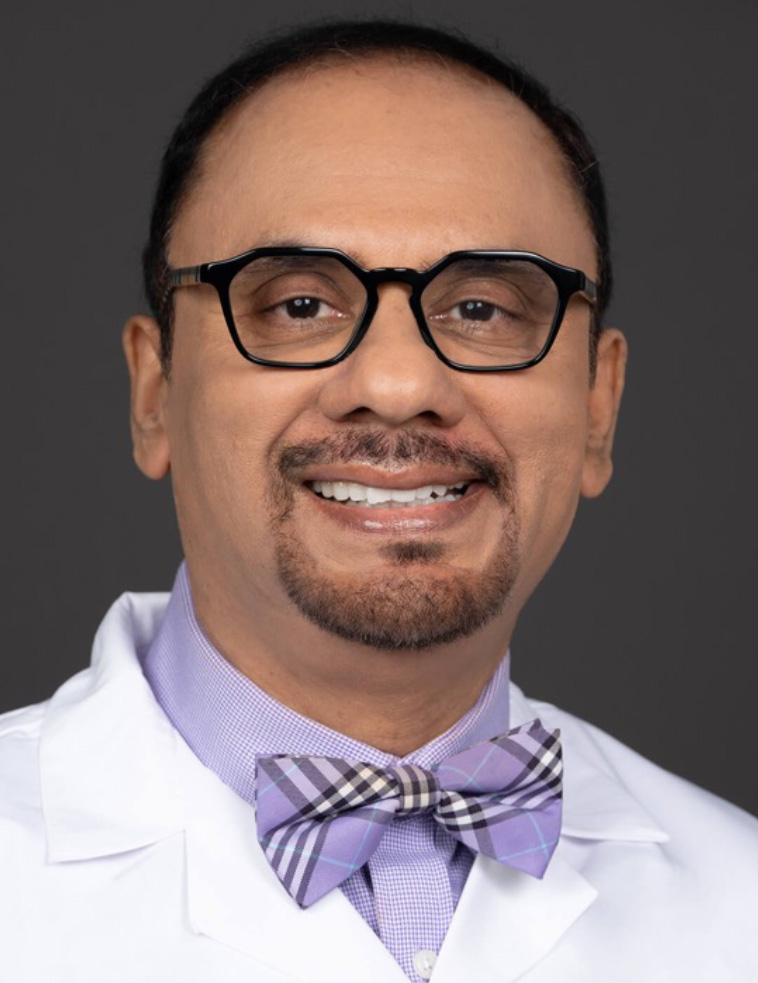
Wasif M. Saif, MD
Leader Phase I MDT & Director Eisenberg Center for Translational Therapeutics, Co-Leader and Co-Director Gastrointestinal Oncology MDT, Karmanos Cancer Institute, Professor, Department of Oncology, Wayne State University School of Medicine, Karmanos Cancer Institute, Detroit, MI
Dr. Muhammad Wasif Saif, MBBS, MD is Professor – Clinician Educator in the Department of Oncology at Wayne State University School of Medicine and leader of the Phase I Clinical Trials Multidisciplinary Team at the Barbara Ann Karmanos Cancer Institute, Detroit. He earned his medical degree from King Edward Medical University (Lahore, Pakistan), completed an Internal Medicine residency at the University of Connecticut Health Center, and pursued a Medical Oncology fellowship at the National Cancer Institute and NHLBI, National Institutes of Health. An internationally recognized authority on gastrointestinal cancers, experimental therapeutics and pharmacogenetics, Dr. Saif also directs the Eisenberg Center for Translational Therapeutics and co-leads the Gastrointestinal & Neuroendocrine Oncology MDT at Karmanos. His work centres on first-in-human drug development, precision-medicine biomarkers and supportive-care optimization; to date he has overseen more than 70 active early-phase trials, contributed to over 600 peer-reviewed publications, and guided studies that informed several FDA approvals. Recent highlights include expanding Karmanos’ Phase I portfolio, frequent national media commentary on colorectal and esophageal cancer, and continued recognition among America’s Top Doctors for Cancer.
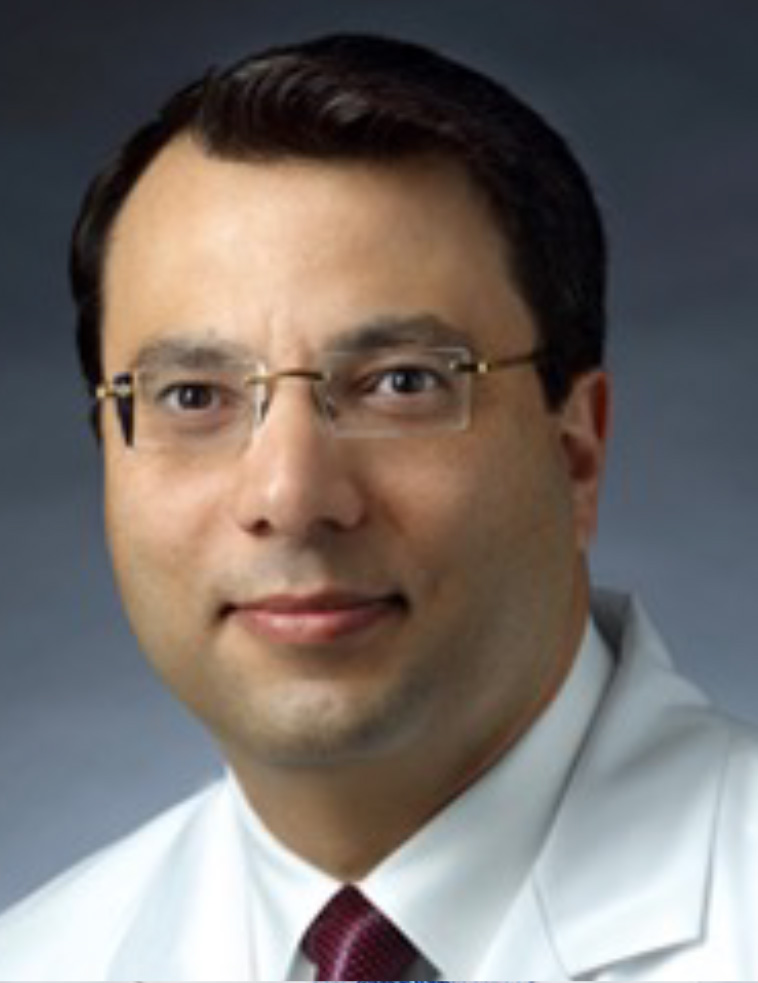
Mohamed Salem, MD
Associate Professor of Medicine, Division of Gastrointestinal Medical Oncology, Levine Cancer Institute, Atrium Health, Charlotte, NC
Dr. Mohamed Salem, is an associate professor and gastrointestinal medical oncologist at Levine Cancer Institute. Dr. Salem specializes in the treatment of GI malignancies, particularly colorectal cancer, pancreatic cancer and state-of-the art approaches for advanced malignancies. He also has a special interest in treating colon cancer in young adults. Dr. Salem graduated from University of Alexandria and completed his residency from Wright State University School of Medicine and his fellowship in experimental therapeutics at the Cleveland Clinic Foundation, Taussig Cancer Institute, and a fellowship in hematology and oncology at the Wayne State University Karmanos Cancer Institute At Levine, Dr. Salem is the principal investigator on several clinical trials and is an investigator on other GI cancer clinical trial teams. He is a member of numerous professional associations and has presented his research results at national and international meetings and has published several important papers. Dr. Salem has won several awards for his work, including a Merit Award from the American Society of Clinical Oncology and Molecular Cancer Research Michael B. Kastan Award for Research of AACR.
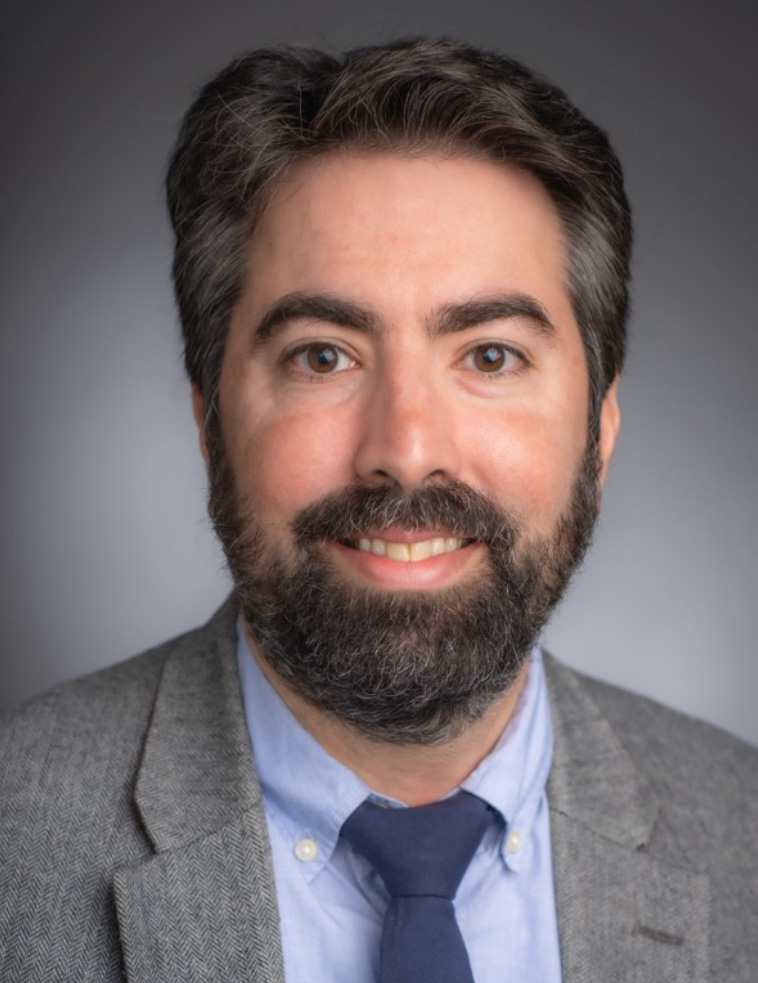
Nilay S. Sethi, MD, PhD
Assistant Professor of Medicine, Harvard Medical School, Gastrointestinal Medical Oncologist, Dana-Farber Cancer Institute, Boston, MA
Nilay S. Sethi, MD, PhD, is an Assistant Professor of Medicine at Harvard Medical School, a gastrointestinal medical oncologist at Dana-Farber Cancer Institute (DFCI), and an Associate Program Director of the DFCI medical oncology fellowship. Dr. Sethi earned his BS from The College of New Jersey, his MD from Rutgers Robert Wood Johnson Medical School, and his PhD in molecular biology from Princeton University. Following residency in Internal Medicine at the University of California, San Francisco, he completed a medical oncology fellowship at DFCI, pursuing postdoctoral research in functional genomics of gastrointestinal cancers at Dana-Farber Cancer Institute and the Broad Institute. In 2020, Dr. Sethi established his laboratory at DFCI, where he now balances his clinical care of patients with gastrointestinal cancers and a robust research program aimed at understanding these complex diseases. His lab employs an integrative and multidisciplinary approach, merging patient-derived models and data, advanced mouse models, and detailed cellular studies. The research group particularly focuses on the molecular mechanisms underlying differentiation barriers and aberrant plasticity in colorectal cancer, examining gene-environment interactions and epigenetic regulation. Dr. Sethi is deeply motivated by the hope that insights from his lab will open novel pathways toward preventive strategies and innovative therapies for gastrointestinal cancers.
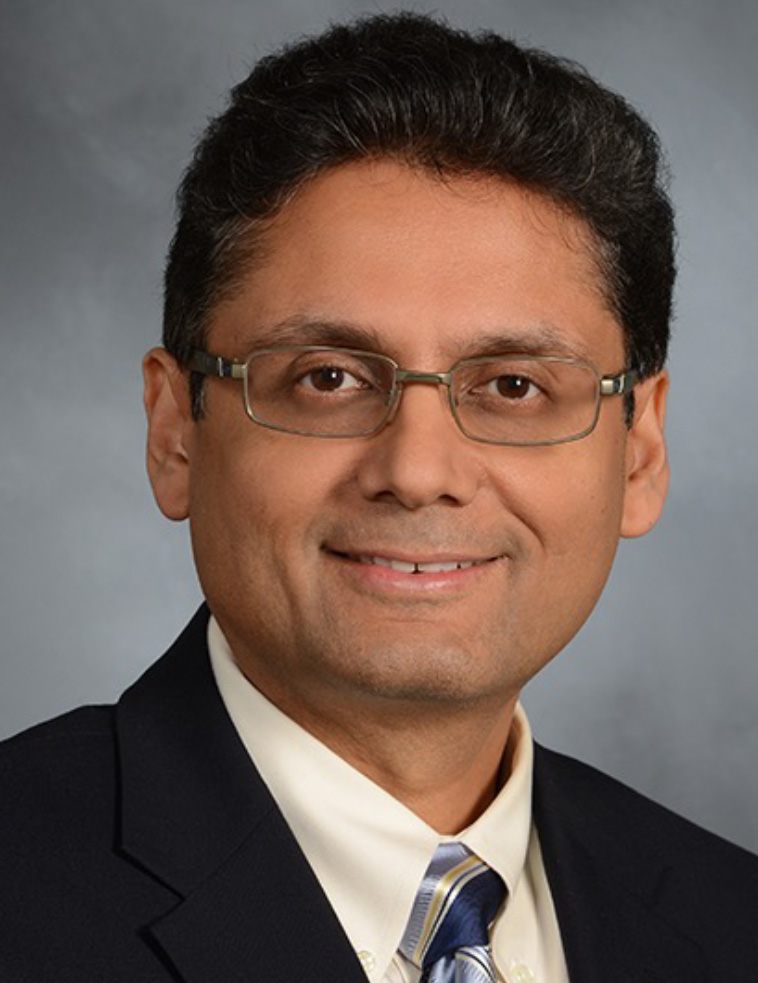
Manish A. Shah, MD
Director, Gastrointestinal Oncology Program, Weill Cornell Medicine, Chief, Solid Tumor Service, Co-Director, Center for Advanced Digestive Disease, New York-Presbyterian, New York, NY
Dr. Shah graduated from Johns Hopkins University in 1991 with a Bachelor's of Science degree in Biomedical Engineering, and from Harvard Medical School/MIT Health Sciences and Technology program in 1996, graduating magna cum laude, with a Medical Doctorate degree. He completed his Internal Medicine Residency training at Duke University Medical Center in 1999, and his Medical Oncology Fellowship at Memorial Sloan-Kettering Cancer Center in 2001, also serving as Chief Oncology Fellow. He is the recipient of several awards including the American Society of Clinical Oncology Young Investigator and Career Development Awards. He was recruited from Memorial Sloan Kettering Cancer Center to Direct the Gastrointestinal Oncology Program within the Division of Hematology and Medical Oncology and the Center for Advanced Digestive Care at Weill Cornell Medical College / New York-Presbyterian Hospital. Dr. Shah is a national and international thought leader in drug development and the treatment of gastrointestinal malignancies. He is a distinguished peer-review funded investigator and has led several Phase I, II and III clinical trials in patients with advanced gastric cancer. Dr. Shah is also the Director of the Gastrointestinal Oncology Research Laboratory at Weill Cornell Medical College. His areas of translational research interests are in improving our understanding of cancers of the upper GI tract as well as hereditary gastrointestinal malignancies. He is interested in power of genomic evaluations of malignancy and how the environment and personal risks can impact the genetic causes of malignancy. He is a peer-reviewer for NIH and NCI research funding, and a reviewer for several high impact journals including the Journal of the American Medical Association, Journal of Clinical Oncology, Annals of Surgery, Annals of Surgical Oncology, Clinical Cancer Research and Gastroenterology. Dr. Shah is also the Editor for The Management of Complex Cases in Gastrointestinal Oncology Case Series for the Journal Of Gastrointestinal Oncology and the Series Editor for the Dx/RX: Oncology Series published by Jones and Bartlett Publishers. He has authored several books including Dx/Rx: Upper Gastrointestinal Malignancies: Cancers of the Stomach and Esophagus, as well as 100 Questions and Answers about Stomach Cancer. He is a member of the American Society of Clinical Oncology (serving as a Cancer Education Committee Member), American Association of Cancer Research, and the American Gastroenterology Association. In addition, Dr. Shah is Chair of the Scientific Advisory Board for the DeGregorio Family Foundation for Stomach and Esophageal Cancer Education and Research.
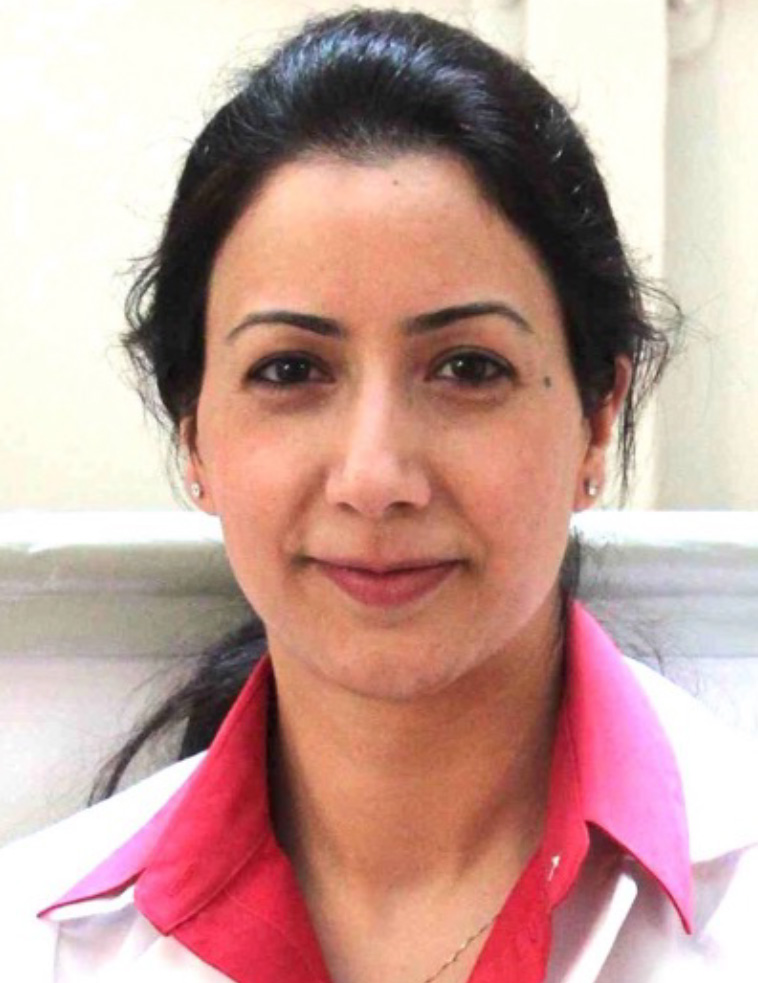
Shagufta Shaheen, MD
Clinical Assistant Professor, Associate Division Chief for Equity, Diversity, and Inclusion, Department of Medicine, Division of Oncology, Stanford University School of Medicine, Stanford, CA
Dr. Shaheen is a medical oncologist specializing in gastrointestinal malignancies, with a particular focus on neuroendocrine tumors (NETs). Following her fellowship in Hematology and Oncology, she pursued an advanced fellowship in Neuroendocrine Tumors at Stanford University. This pioneering fellowship, the first of its kind in the United States, was initiated by Dr. Pamela Kunz, the founding Director of the Stanford Neuroendocrine Tumor Program established in 2015. After completing her advanced fellowship, Dr. Shaheen joined the Stanford Oncology division as a Clinical Assistant Professor. In this role, she has continued to develop and expand the neuroendocrine oncology program, actively engaging in research and clinical trials focused on neuroendocrine tumors. In addition to her research contributions, Dr. Shaheen is deeply committed to promoting equity in both the workforce and patient care. She currently serves as the Associate Division Chief for Equity, Diversity, and Inclusion in the Division of Oncology at Stanford. Dr. Shaheen is also the Chair of the NANETS Diversity and Membership Committee, where she works to enhance diversity and inclusion within the field of neuroendocrine tumors.

Amit Singal, MD, MS
Professor, Department of Internal Medicine, Division of Digestive and Liver Diseases, University of Texas Southwestern Medical Center, Dallas, TX
Dr. Singal is a Professor of Medicine in the Division of Digestive and Liver Diseases at University of Texas Southwestern Medical Center and serves as Chief of Hepatology and Medical Director of the Liver Tumor Program. He has obtained NIH funding examining the hepatocellular carcinoma (HCC) care continuum, ranging from prevention and screening to treatment and survivorship. He has over 250 peer-reviewed original publications and has been awarded the Willis C Maddrey Distinguished Chair in Liver Disease, Dedman Family Scholar in Clinical Care, and Blue Faery Award for Excellence in Liver Cancer Research.
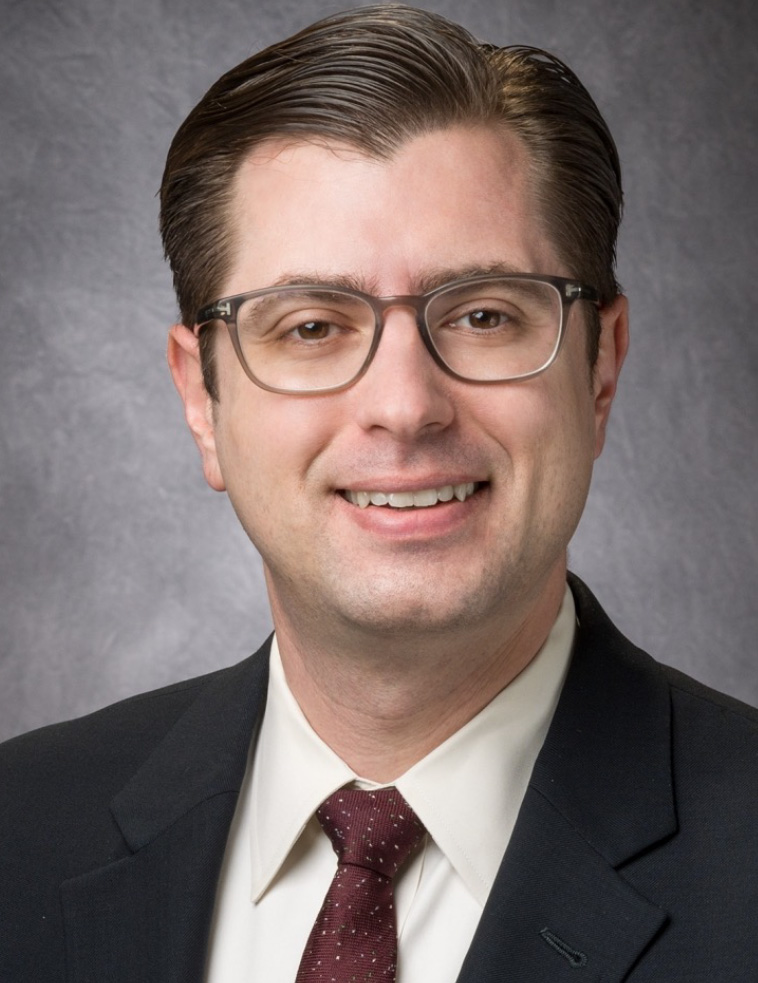
Brandon G. Smaglo, MD
Associate Professor, Department of Gastrointestinal (GI), Medical Oncology, Division of Cancer Medicine, The University of Texas MD Anderson Cancer Center,
Houston, TX
Dr. Brandon G. Smaglo is an Associate Professor in the Department of Gastrointestinal Medical Oncology at The University of Texas MD Anderson Cancer Center, specializing in gastrointestinal cancers with a focus on pancreatic cancer. He earned his M.D. from SUNY Downstate, completed residency in internal medicine, and a fellowship in hematology/oncology at Georgetown University. Dr. Smaglo has led and contributed to several significant clinical trials, including the EXTEND trial and the LOKON001 study, exploring novel therapies like metastasis-directed treatments and oncolytic virus-based immunotherapy. His research emphasizes molecular profiling, immunotherapy, and the role of KRAS mutations in pancreatic cancer. He plays key roles at MD Anderson, including advisor to the Goal Concordant Care Program and pancreatic cancer clinical trials leader. He has received multiple honors such as the Gerald P. Bodey Award for Excellence in Education and has been repeatedly recognized for top-tier patient satisfaction. A prolific author and dedicated educator, he continues to drive advancements in cancer care and treatment.
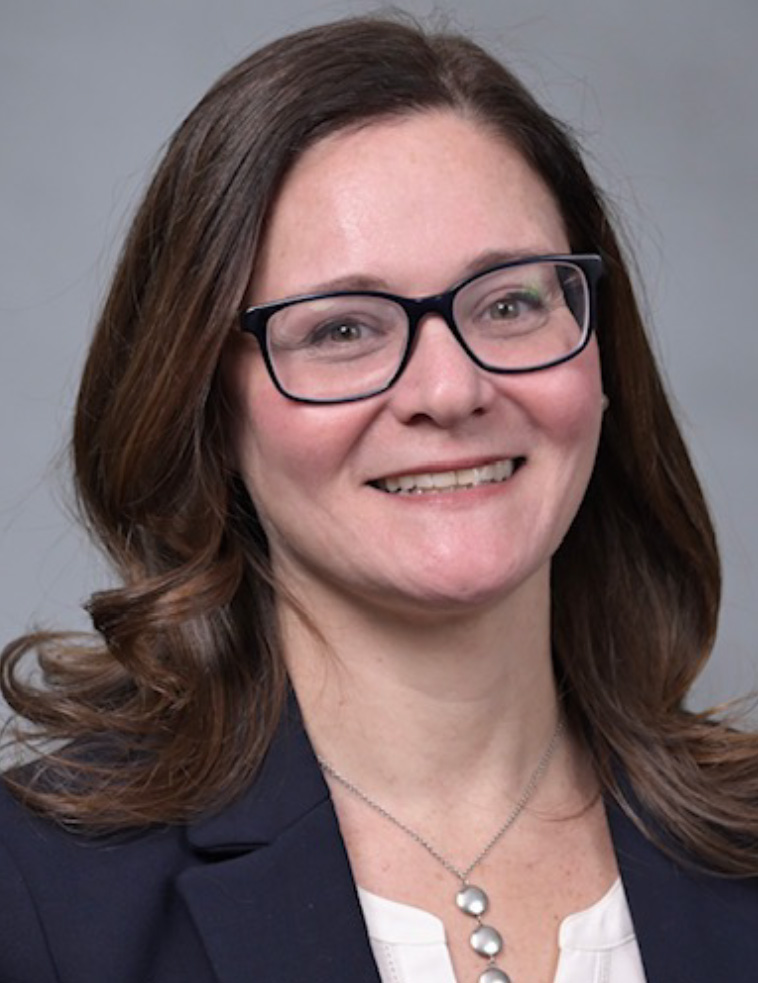
Stacey Stein, MD
Associate Professor of Medicine, CINJ Rutgers University, Systems Medical Oncology Leader for Hepatobiliary Cancers, RWJBarnabas Health, New Brunswick, NJ
Dr. Stacey Stein joined Rutgers Cancer Institute as an Associate Professor of Medicine at the Robert Wood Johnson Medical School and as the System Medical Oncology Director for Hepatobiliary Cancer for RWJ Barnabas Health. She graduated from Rutgers University and RWJ Medical School. She then completed Internal Medicine training at Montefiore Medical Center in New York and completed a Medical Oncology fellowship at NYU Medical Center. Dr. Stein has expertise in treating patients with all GI cancers and has been a clinical investigator on numerous GI cancer clinical trials with a focus in hepatobiliary cancers. She is passionate about patient care and provides excellent clinical care and opportunities for patients to participate in clinical trials at CINJ and across the entire RWJ Barnabas Health network. She collaborates with colleagues across many specialties, including surgery, GI, radiation oncology, and interventional radiology as a multidisciplinary team to coordinate the best treatment plan for every patient.
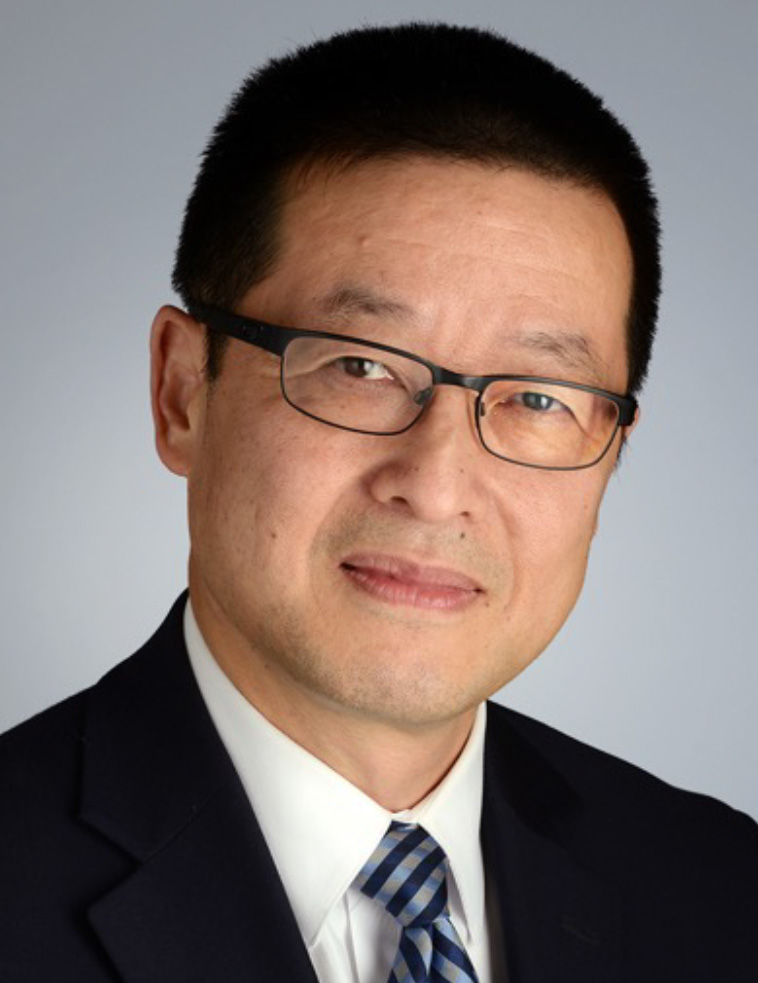
Weijing Sun, MD, FACP
The Sprint Professor of Medical Oncology, Director, Division of Medical Oncology, University of Kansas School of Medicine, Associate Director, University of Kansas Cancer Center, Westwood, KS
Weijing Sun, MD is currently the Sprint Professor of Medical Oncology; Professor of Medical Oncology and Cancer Biology; the Director of Medical Oncology Division, University of Kansas School of Medicine; and the Associate Director of University of Kansas Cancer Center. He graduated from Shanghai Medical University (now mergied with Fudan University). He had his Internal Medicine residency training at Loyola University Medical Center, and Hematology-Oncology fellowship training at University of Pennsylvania. Dr. Sun focuses on the treatment and clinical research of GI malignancies, mainly on the development of new drugs and biologic/targeted oriented agents in treatment/therapy (including translational and immune research) of GI cancers with great experiences in the early phase clinical trial (phase I, II) designing, protocol development and conduction, and many of these have been published. He has served as a member of ECOG-ACRIN GI core committee; a member of NCI GI Cancer’s Steering Committee Hepatobiliary Task Force. He has served as PI for many investigate initiated studies and pharmaceutical companies’ trials. Dr. Sun has authored many publications including original clinical research articles, reviews, and invited editorial comments in a variety of peer-reviewed journals. He has also written chapters as a GI oncology expert for several medical textbooks including WebMD, Textbook of Gastroenterology. He is the editor-in-chief of the textbook of Multidisciplinary Therapy of GI Malignancies. He has had more than 130 publications.
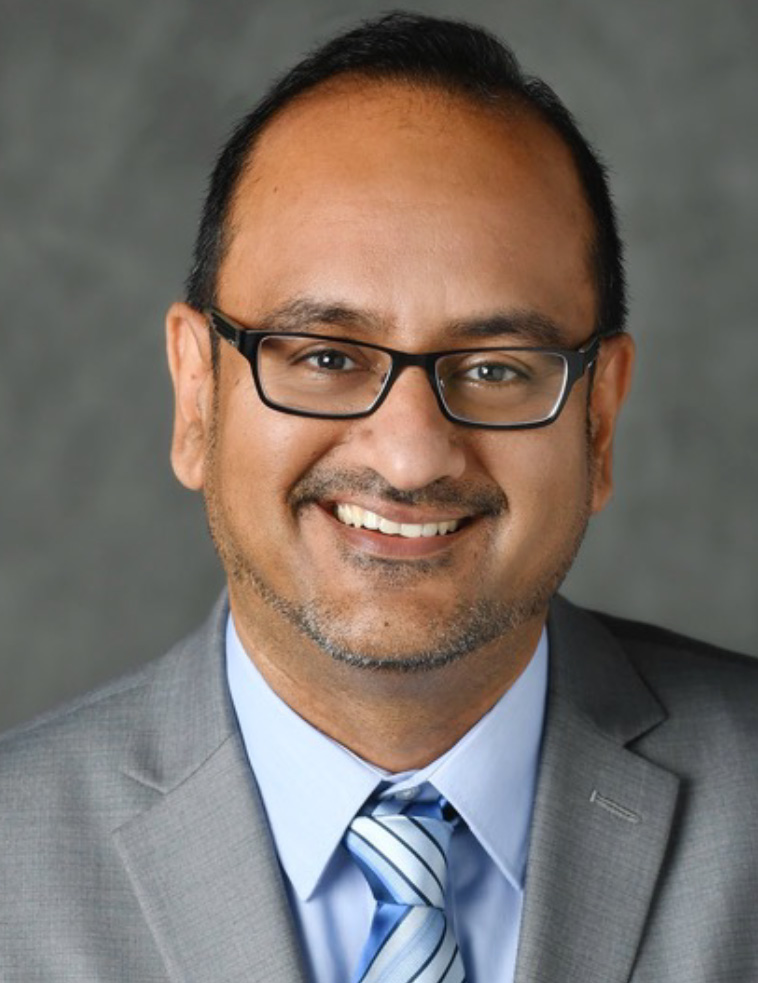
Mohamedtaki A. Tejani, MD
Medical Director - Gastrointestinal (GI) Oncology Program, AdventHealth Cancer Institute, Orlando, FL
Mohamedtaki A. Tejani, MD, received his Bachelor of Arts degree, magna cum laude from Amherst College. He later earned his medical degree from Dartmouth Medical School. Dr. Tejani went on to complete his residency at Yale-New Haven Hospital in New Haven, CT, achieving the rank of Chief Resident. Following this, he completed his fellowship training in hematology/oncology at Fox Chase Cancer Center/Temple University in Philadelphia. Dr. Tejani has authored numerous oncology-related publications. His research experience and areas of interest include gastrointestinal cancers, biomarkers and therapeutics, patient-provider communication and the culture of medicine. Dr. Tejani firmly believes that patient care is a privilege. Listening and responding to a patient's unique story is critical in helping that family on their cancer journey. Originally from Tanzania (East Africa), he is fluent in Swahili, Hindi, Urdu and Gujarati.
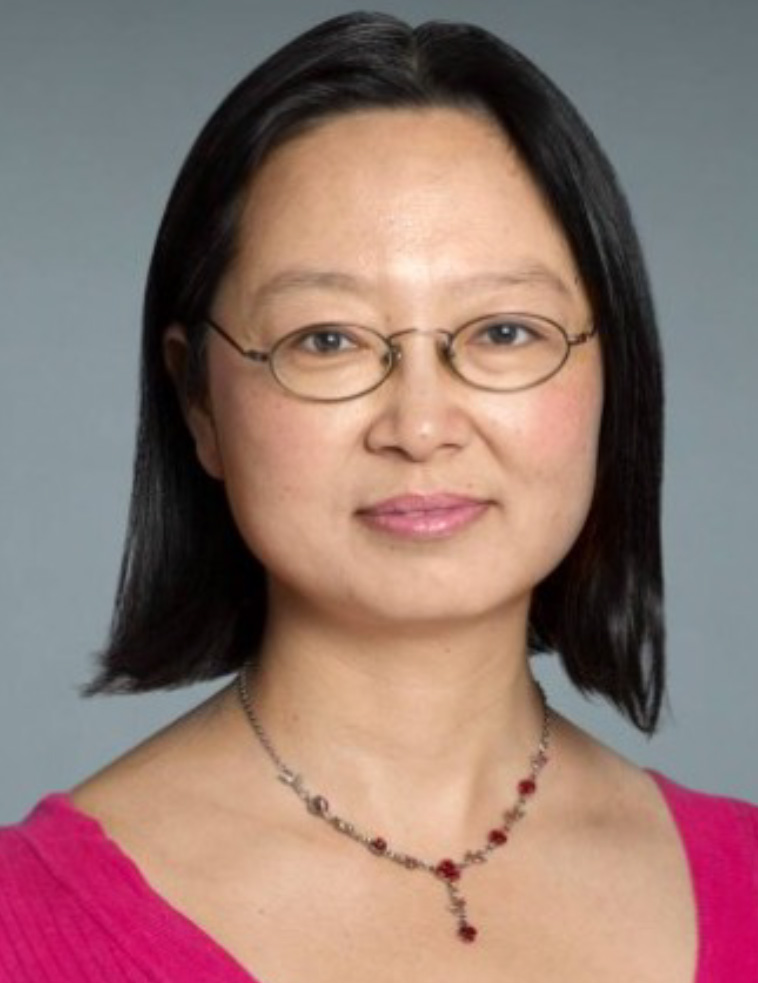
Jennifer Wu, MD
Director, Bellevue Cancer Center, Section Chief, Hematology Oncology, Bellevue Medical Center, Clinical Associate Professor of Medicine, Non-Tenured, Department of Medicine, New York University Grossman School of Medicine, New York, NY
Jennifer Wu graduated from Albert Einstein College of Medicine located at New York in 2000, trained at Montefiore Medical Center for Internal Medicine, and completed fellowship at NYU School of Medicine in Hematology and Oncology. Jennifer joined faculty of Hematology Oncology Division at NYU Perlmutter Cancer Center and specialized in GI Oncology, is an Associate Professor of Medicine. Her research interest is in upper GI Oncology, and worked on clinical trials utilizing immunotherapy. She is also an advocate for peer education and passionate about increasing access to oncology care and biomarker testings for underserved oncology patient population.

Linda Wu, MD
Assistant Professor of Medicine, Division of Hematology and Oncology, Columbia University Irving Medical Center, New York, NY
Linda Wu, MD is an Assistant Professor of Medicine at Columbia University Irving Medical Center. Dr. Wu earned her MD degree from Weill Cornell Medical College and completed residency training in Internal Medicine at NewYork-Presbyterian Hospital/Weill Cornell Medical Center. She then completed fellowship training in Hematology and Medical Oncology at the Icahn School of Medicine at Mount Sinai. As a medical oncologist, she specializes in the treatment of gastrointestinal malignancies, with particular focus on pancreatic and hepatobiliary cancers. Dr. Wu is actively involved in research to improve treatments for cancer. She is involved in developing and leading clinical trials, including multicenter investigator-initiated trials, to investigate novel therapeutic strategies for pancreatic and biliary cancers as well as other gastrointestinal malignancies. Her research interests also include discovering biomarkers predictive of response and resistance to therapy and understanding the tumor microenvironment to improve the effectiveness of immunotherapy for gastrointestinal malignancies, and she has published multiple articles in these areas. Dr. Wu works closely as part of a multidisciplinary team to deliver compassionate care at the highest levels, utilizing a personalized approach to offer cutting-edge therapies.
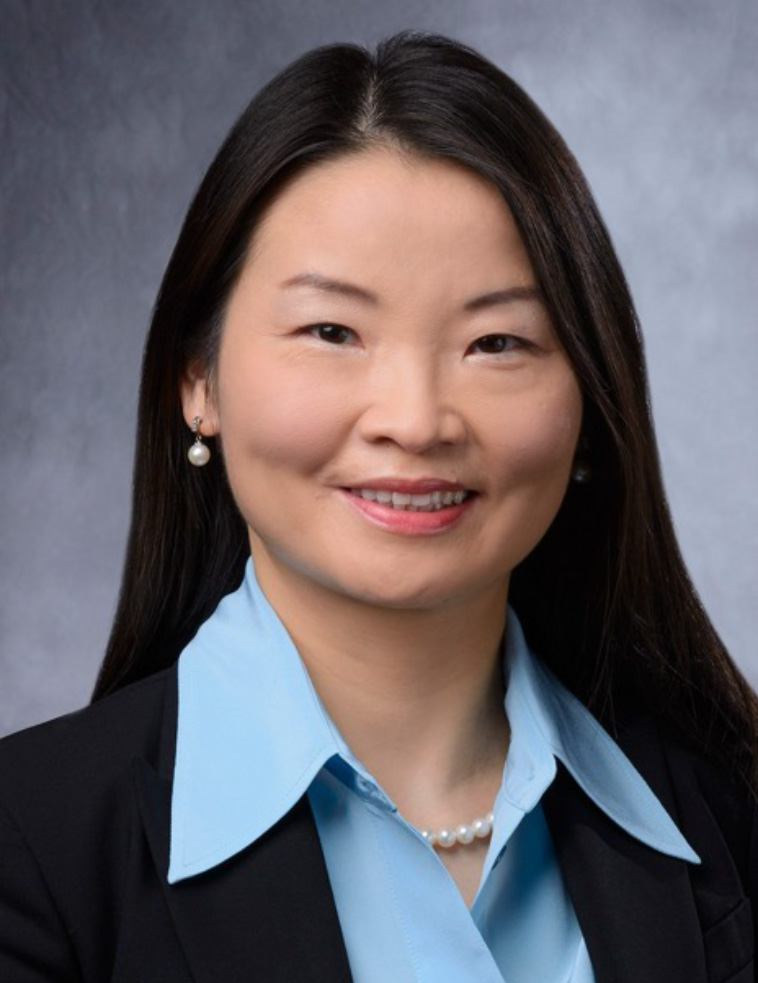
Dan Zhao, MD, PhD
Assistant Professor, Department of Gastrointestinal Medical Oncology, Division of Cancer Medicine, The University of Texas, MD Anderson Cancer Center, Houston, TX
Dr. Dan Zhao is a medical oncologist specializes in pancreatic cancer. She is an assistant professor at the department of Gastrointestinal medical oncology (GIMO) at MD Anderson Cancer Center. She graduated from Tongji Medical College, China and complete her residency in Internal Medicine from Brookdale University Hospital Medical Center and fellowship in Hematology/Oncology from City of Hope National Medical Center. Dr. Zhao is board certified in internal medicine, hematology and oncology. She is the co-leader of the cellular therapy program at GIMO. Dr. Zhao is a member of the GI committees of SWOG and Alliance for clinical trials in oncology. She conducts clinical and translational cancer research and has published more than 30 research articles.

